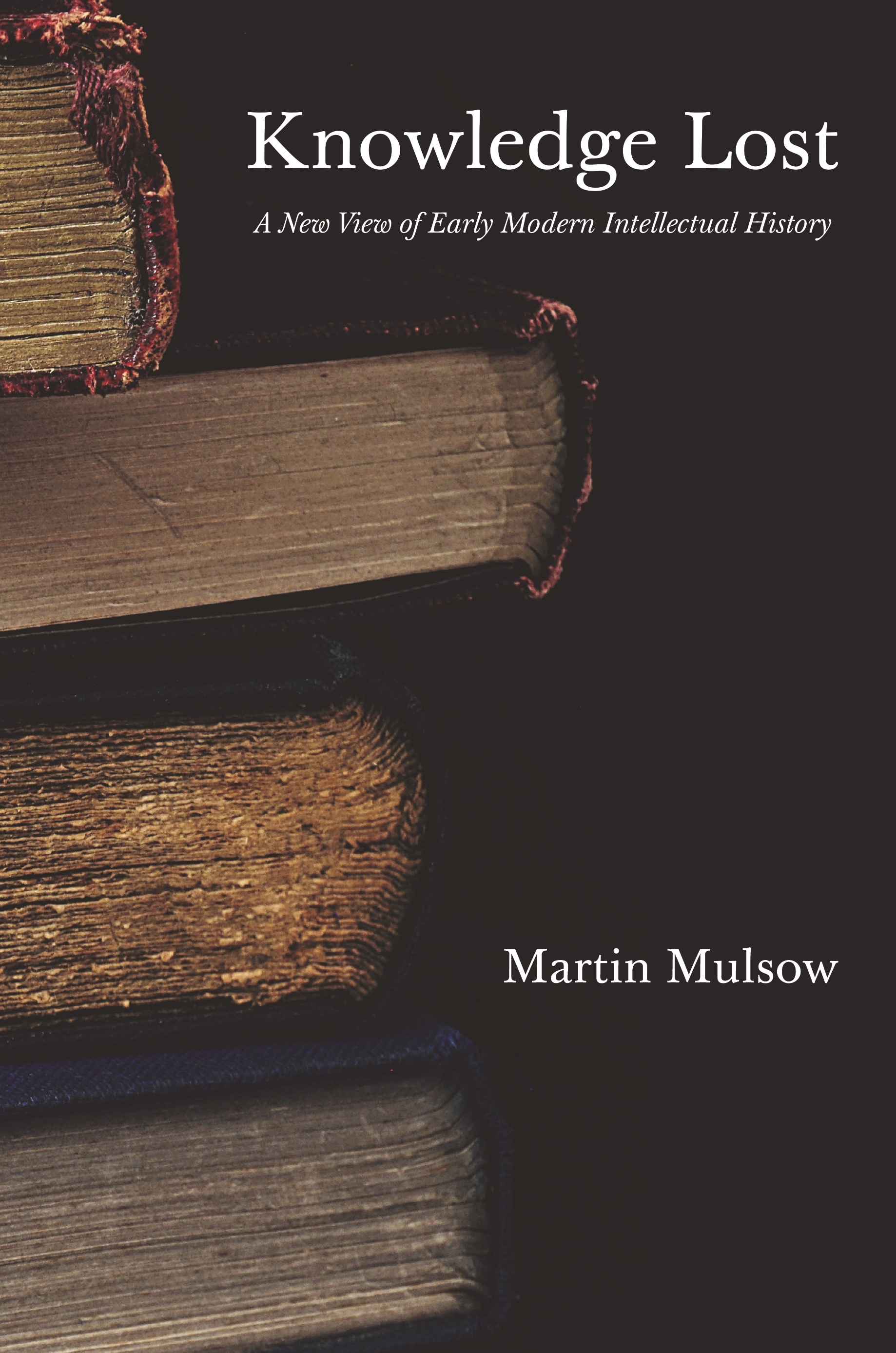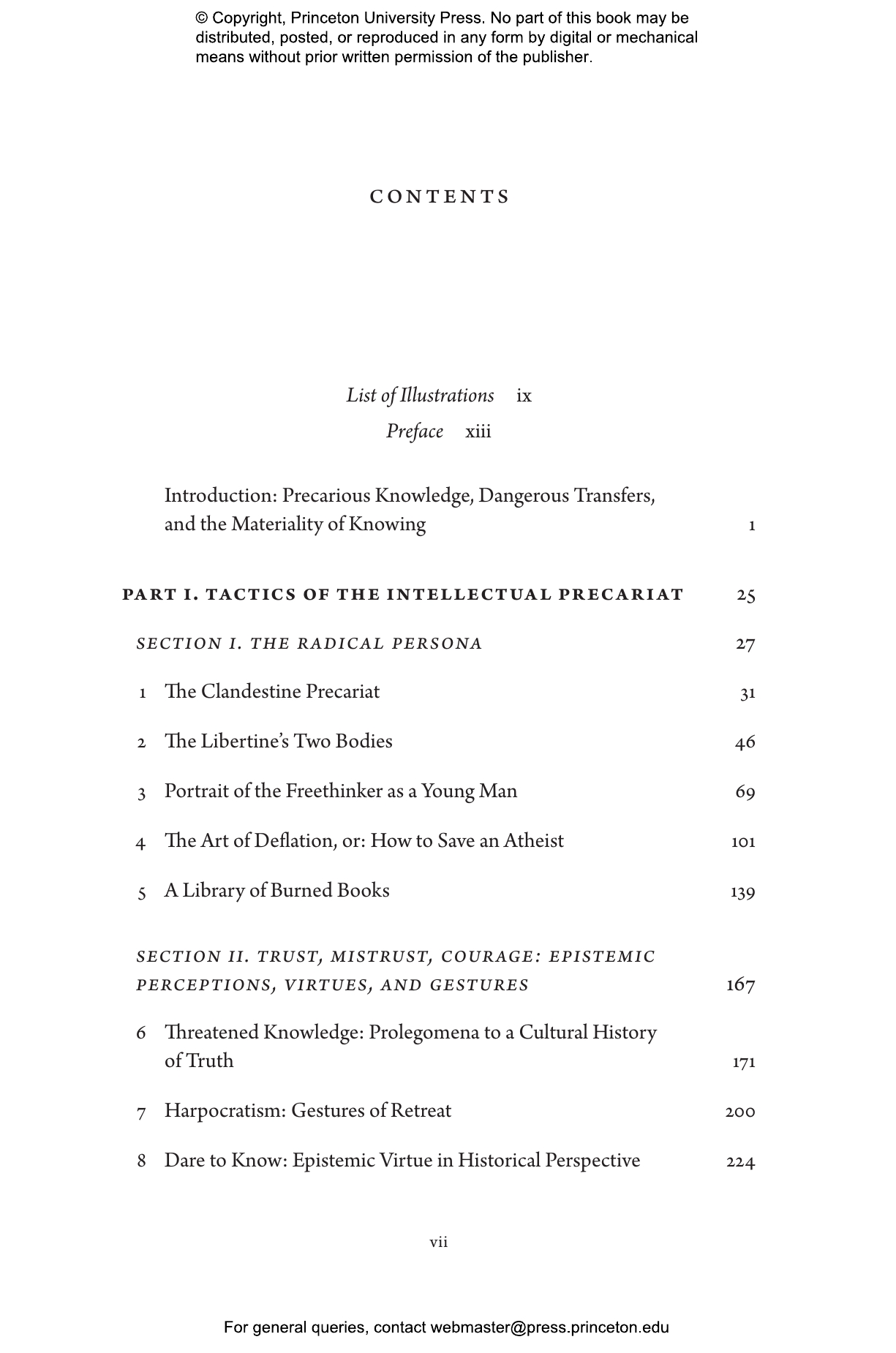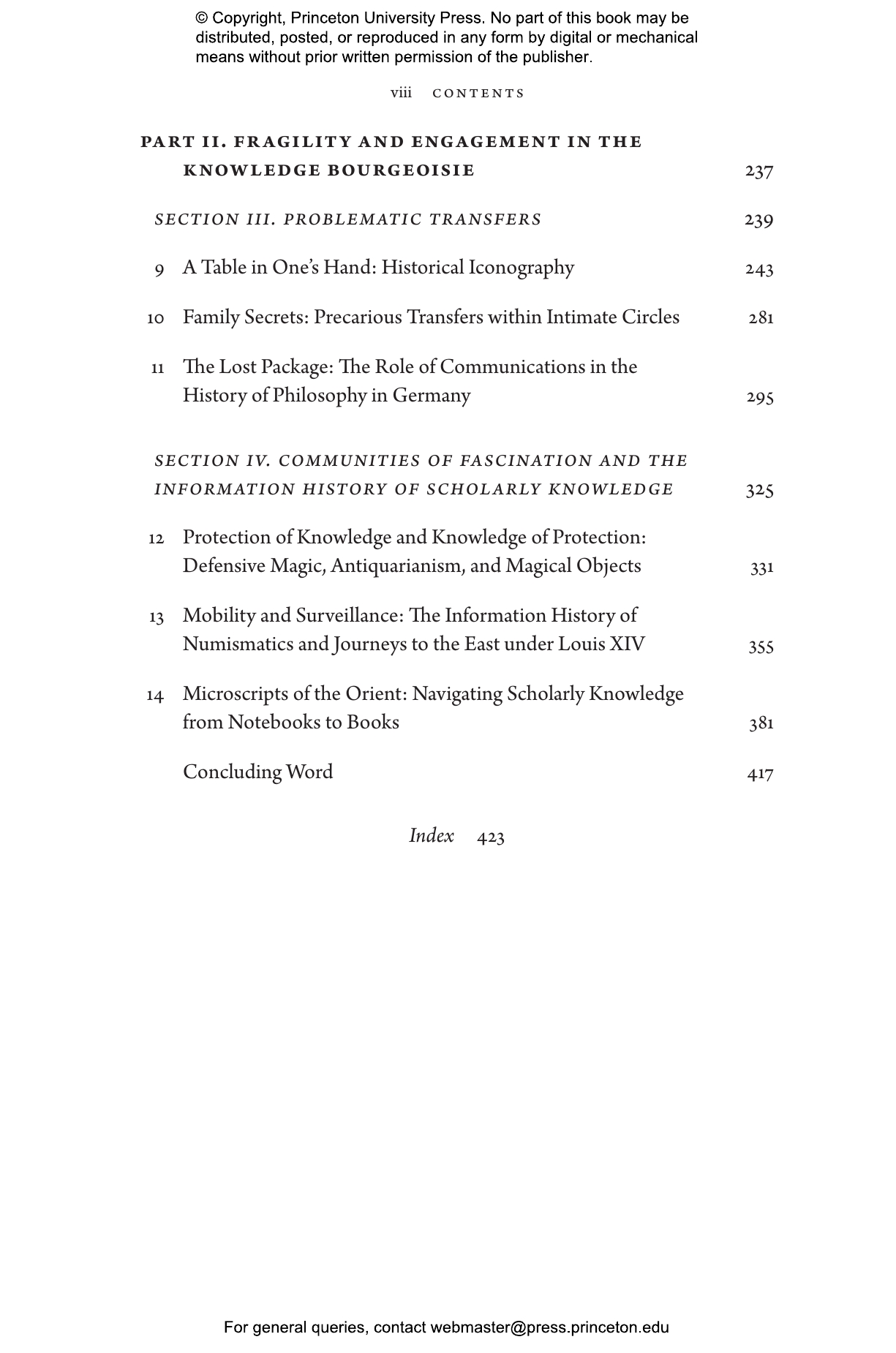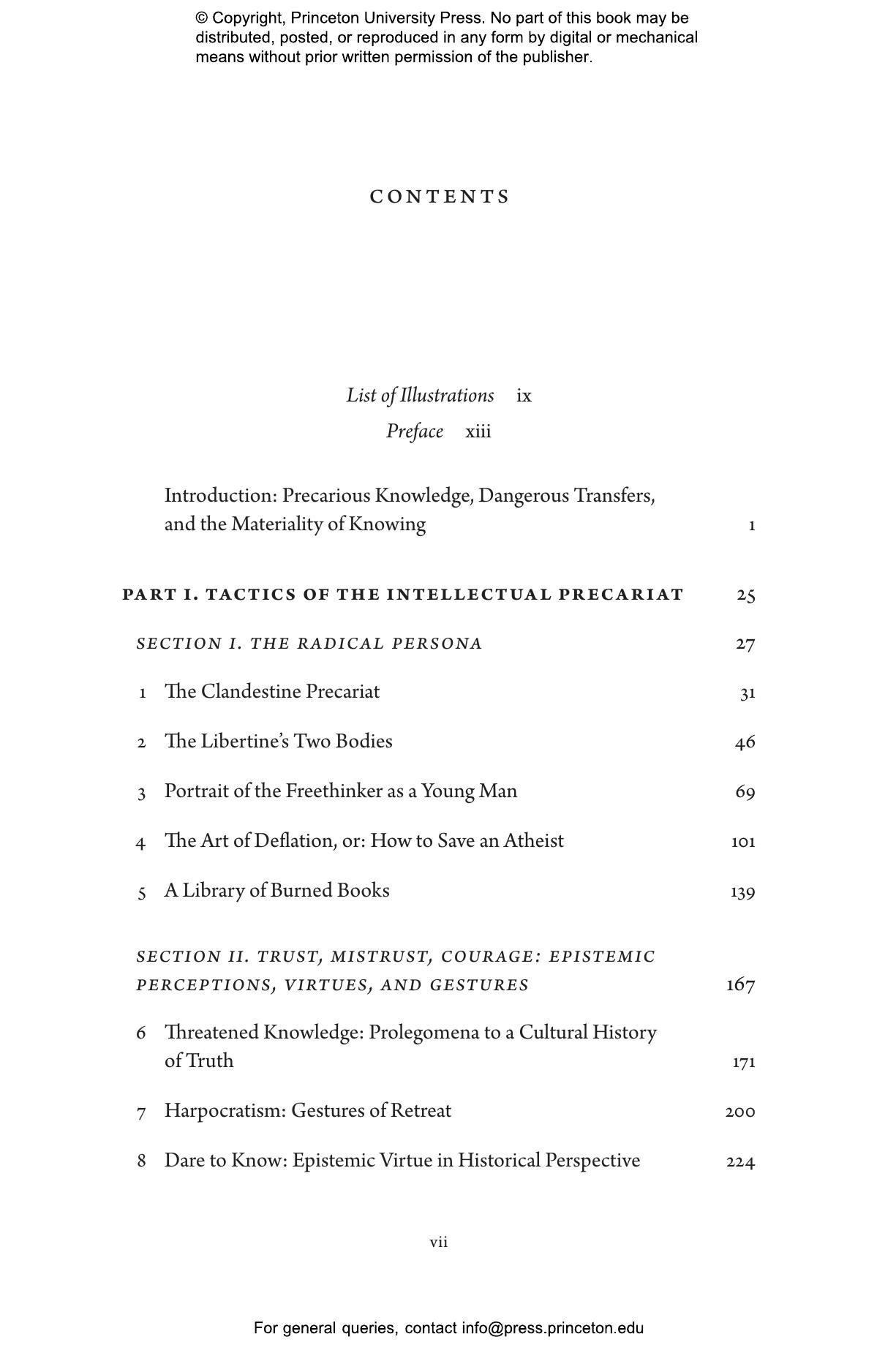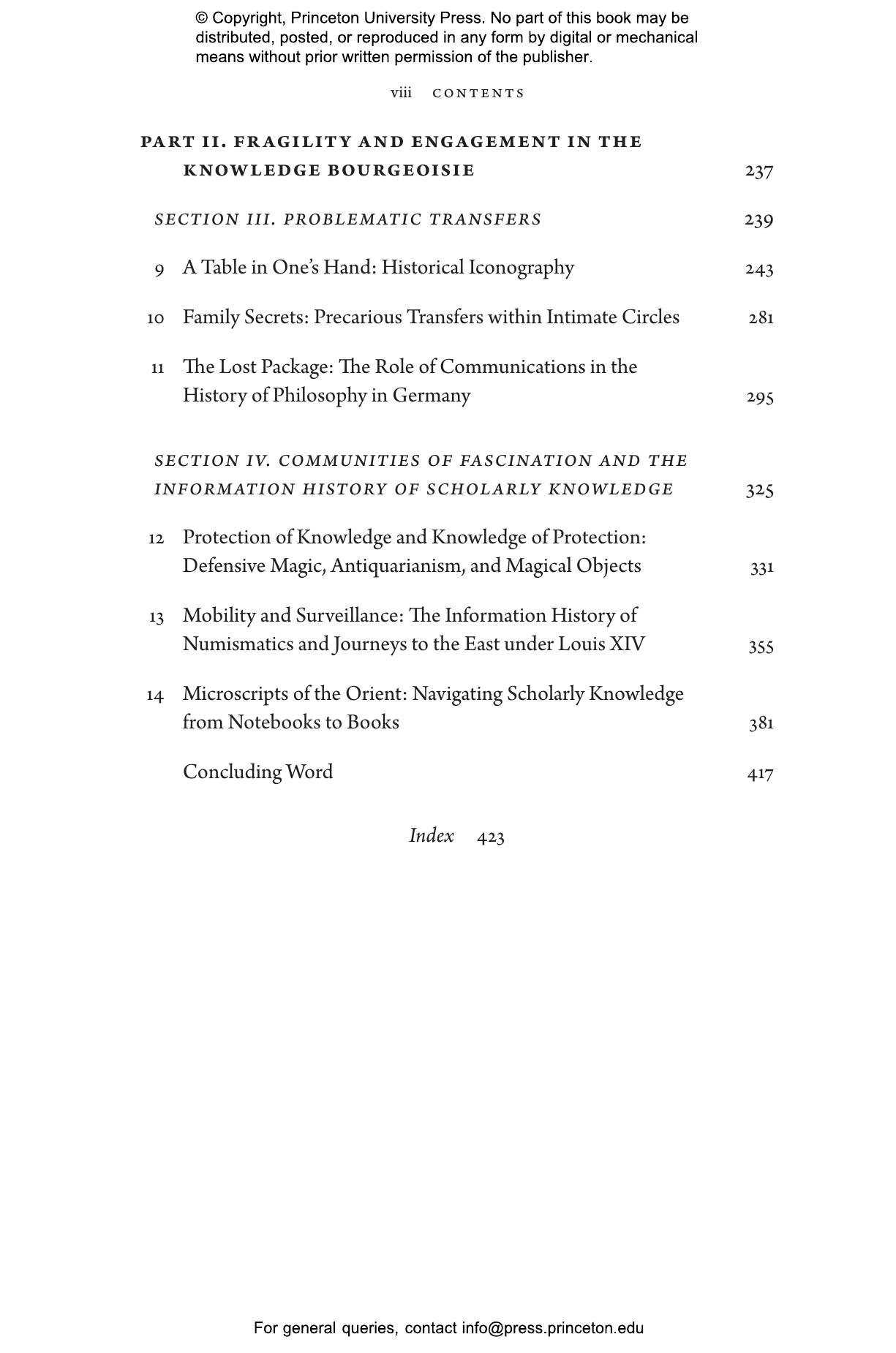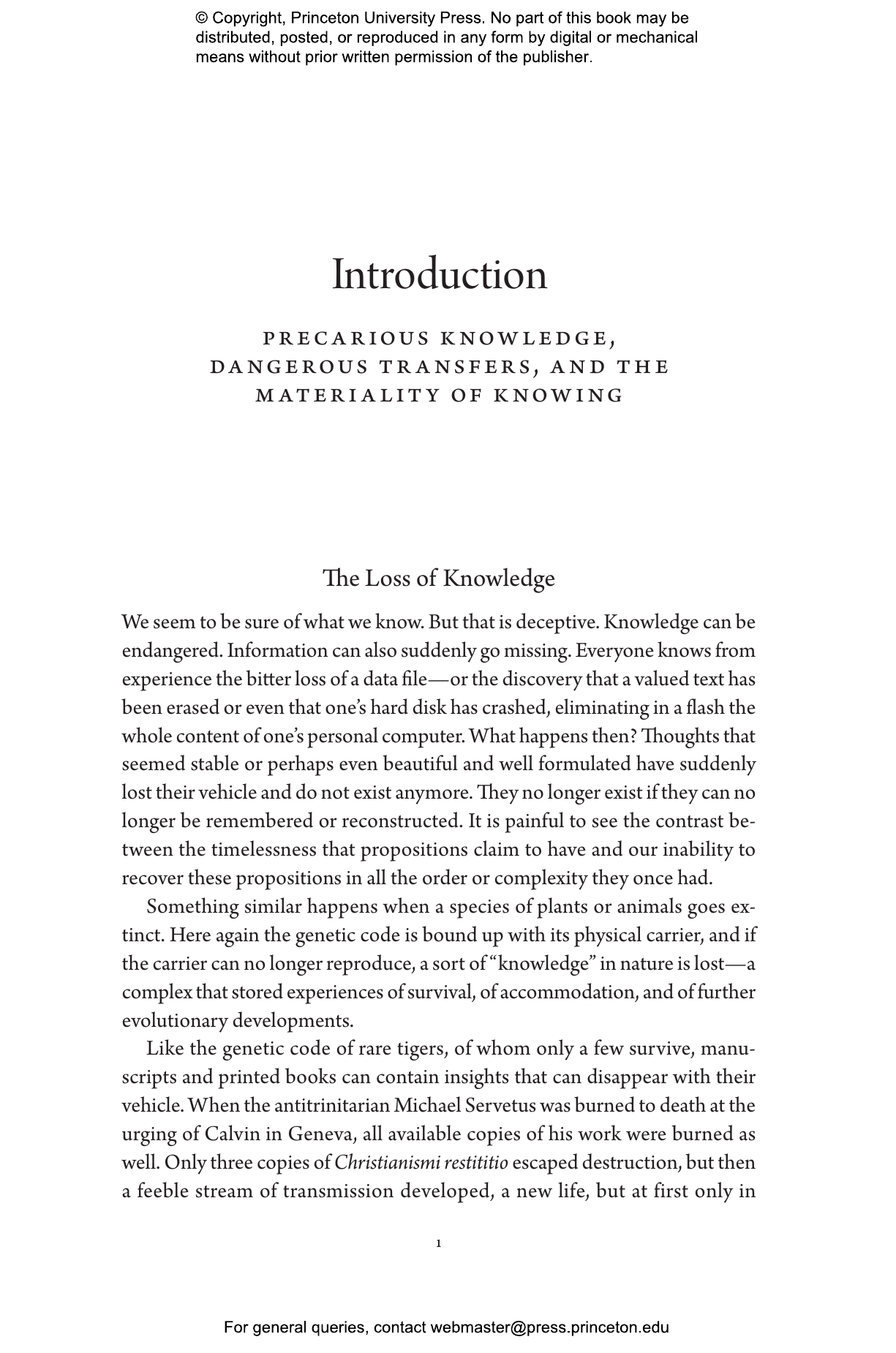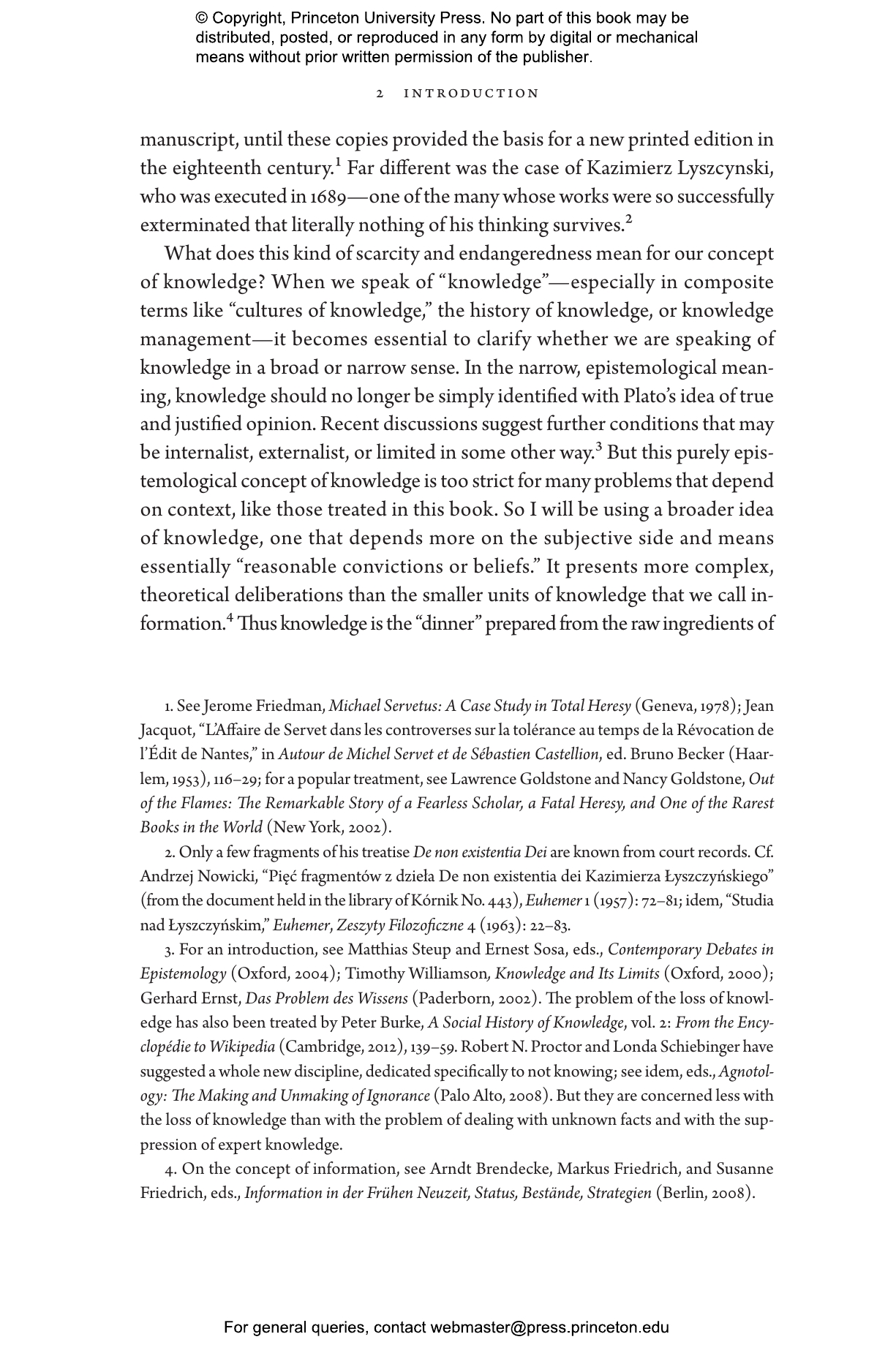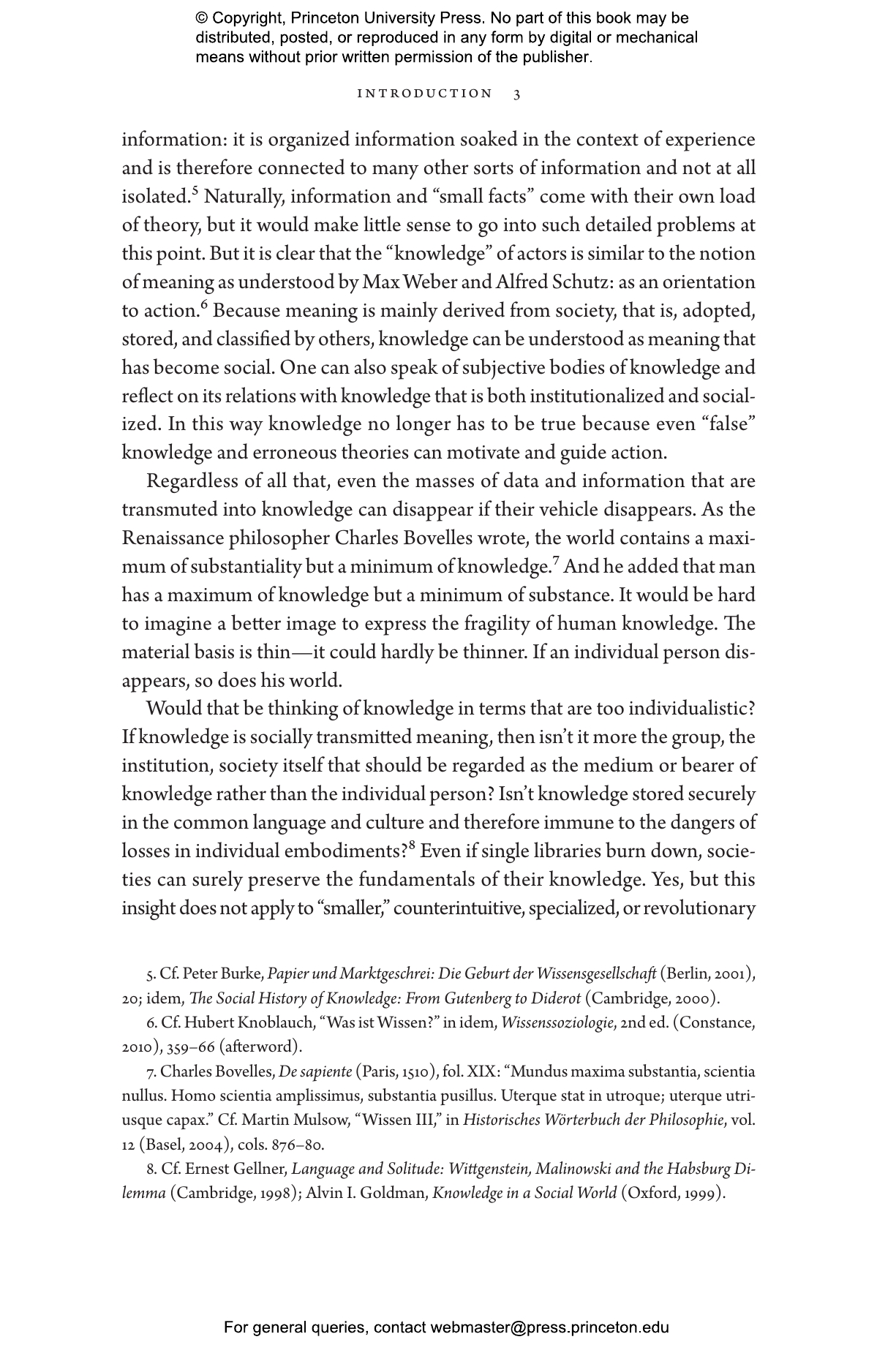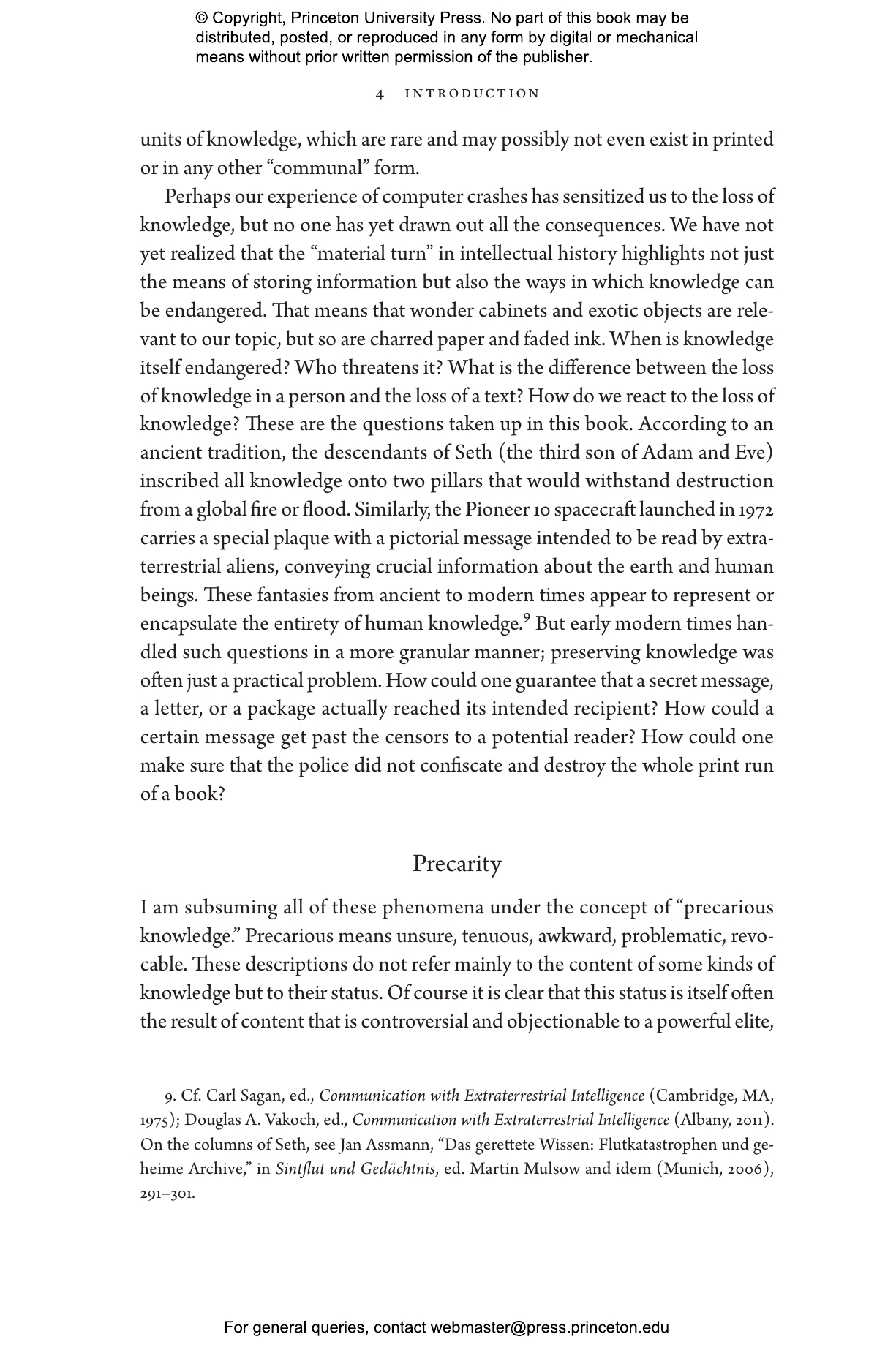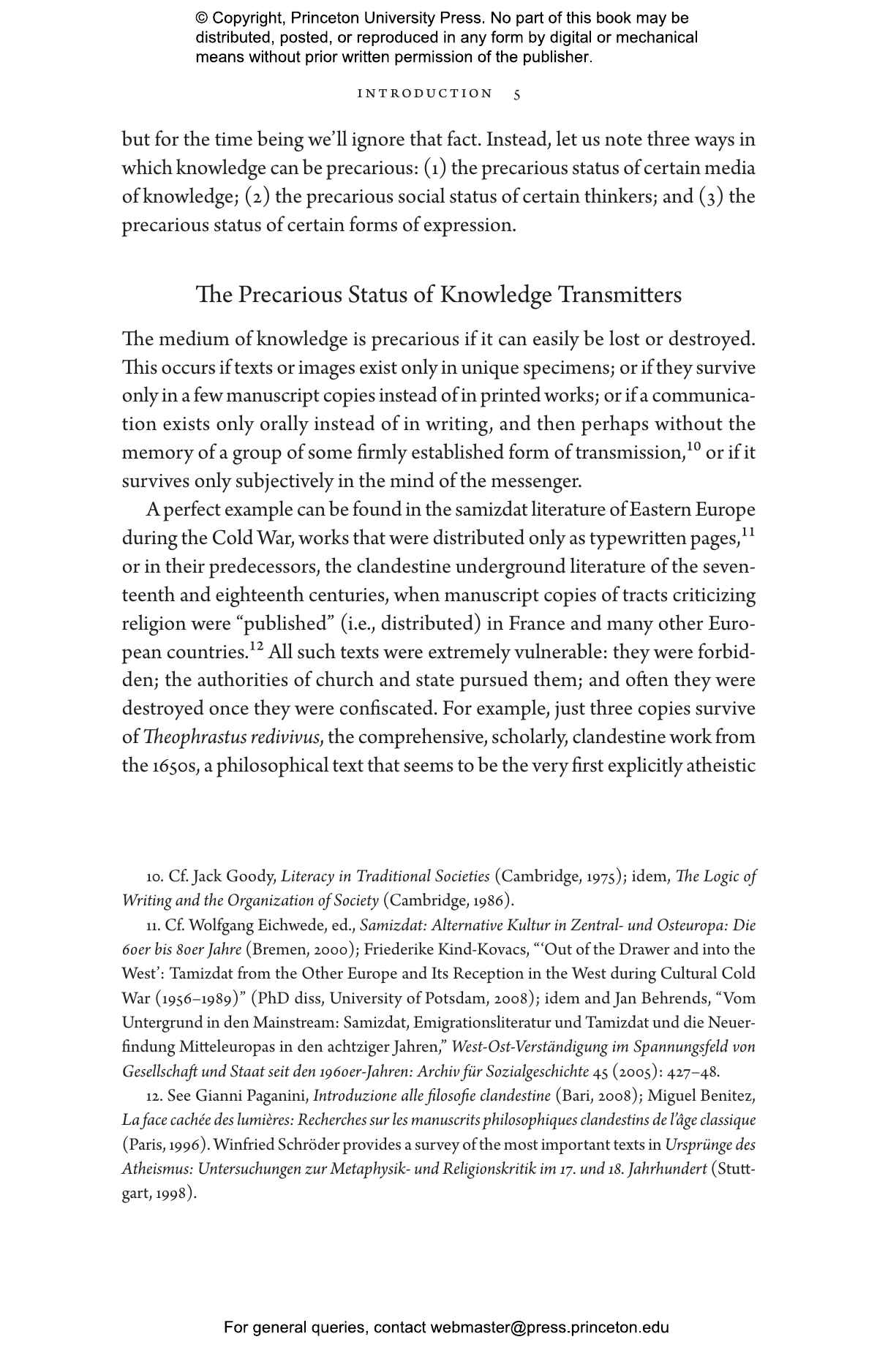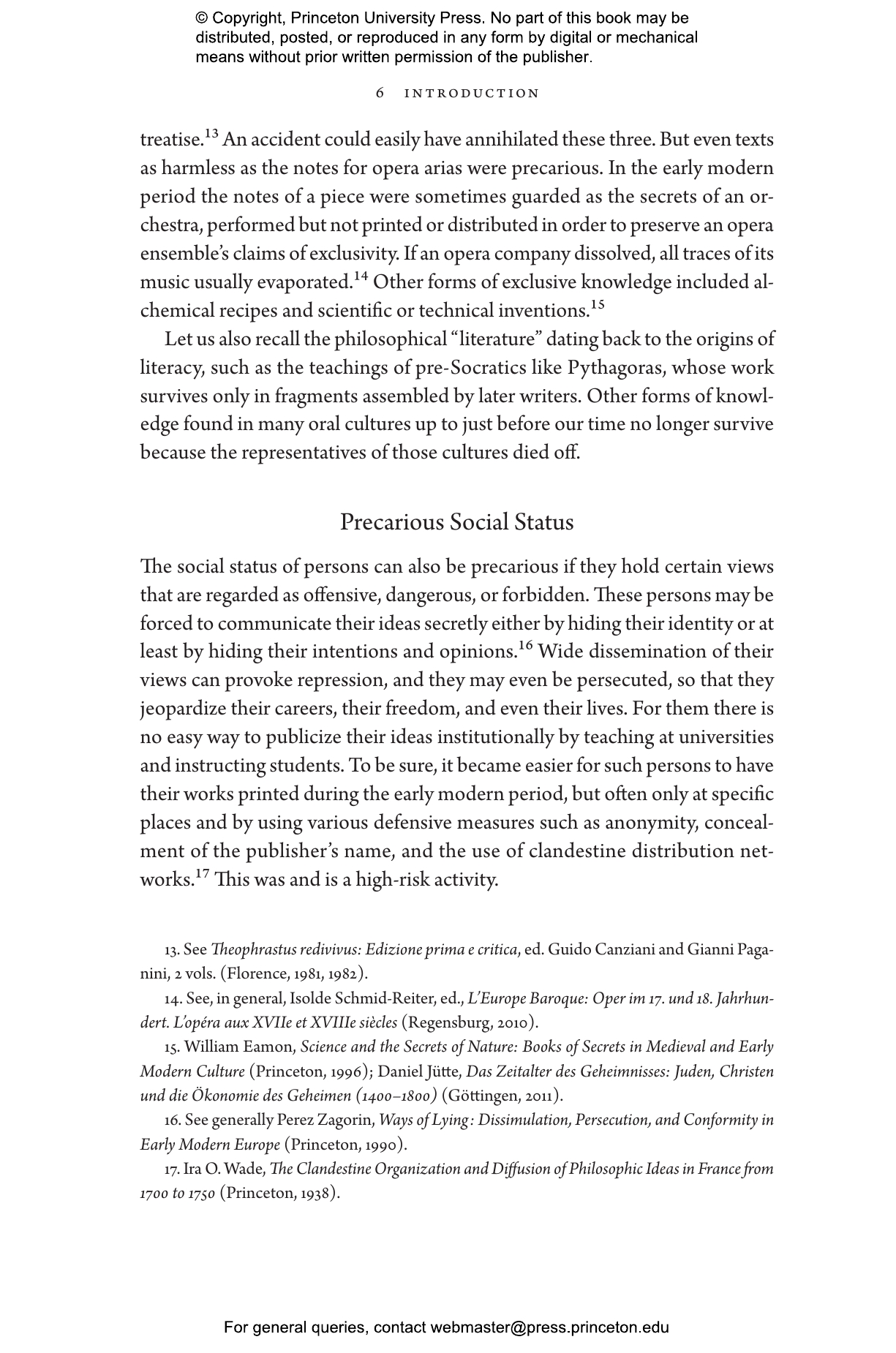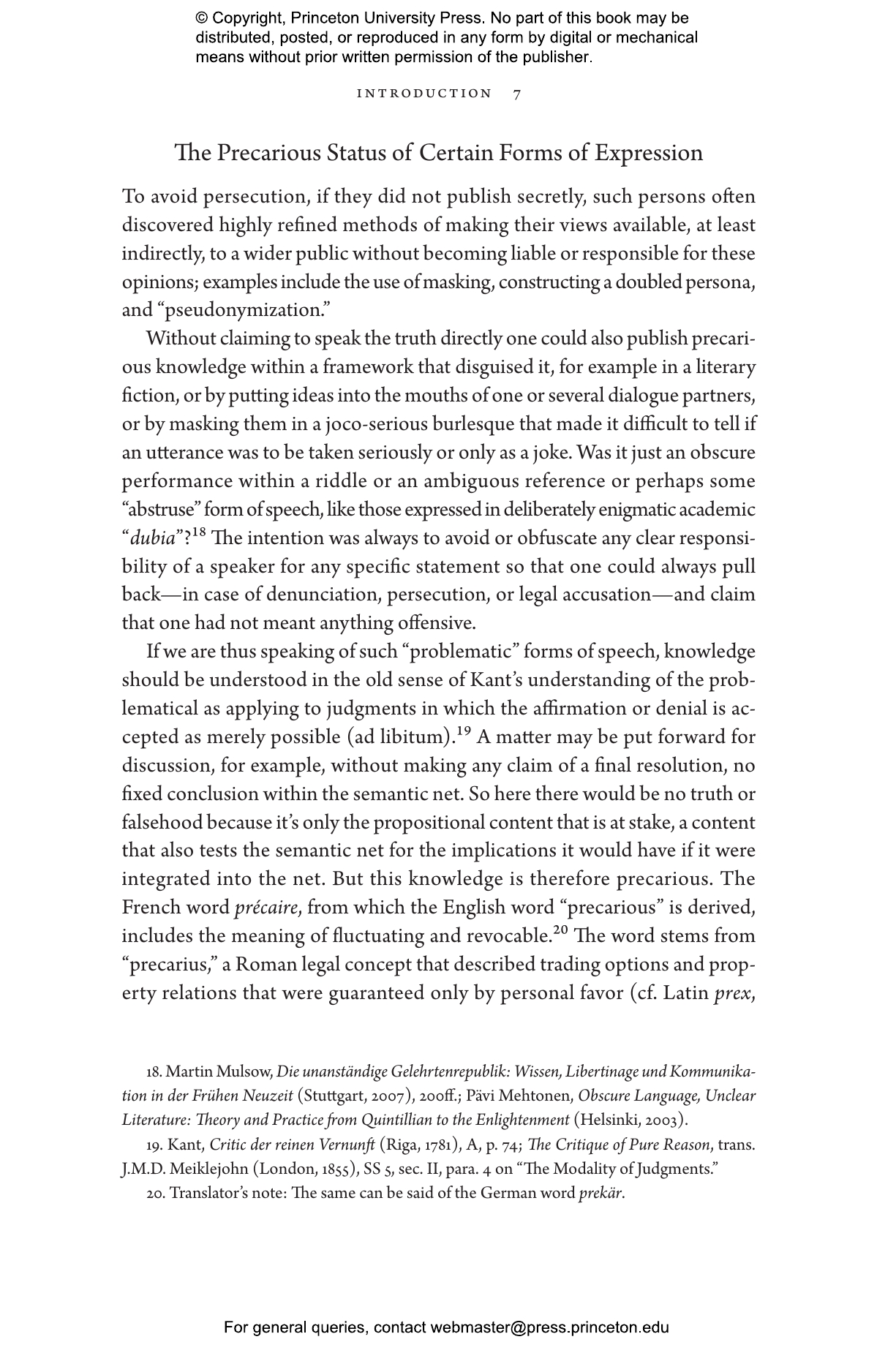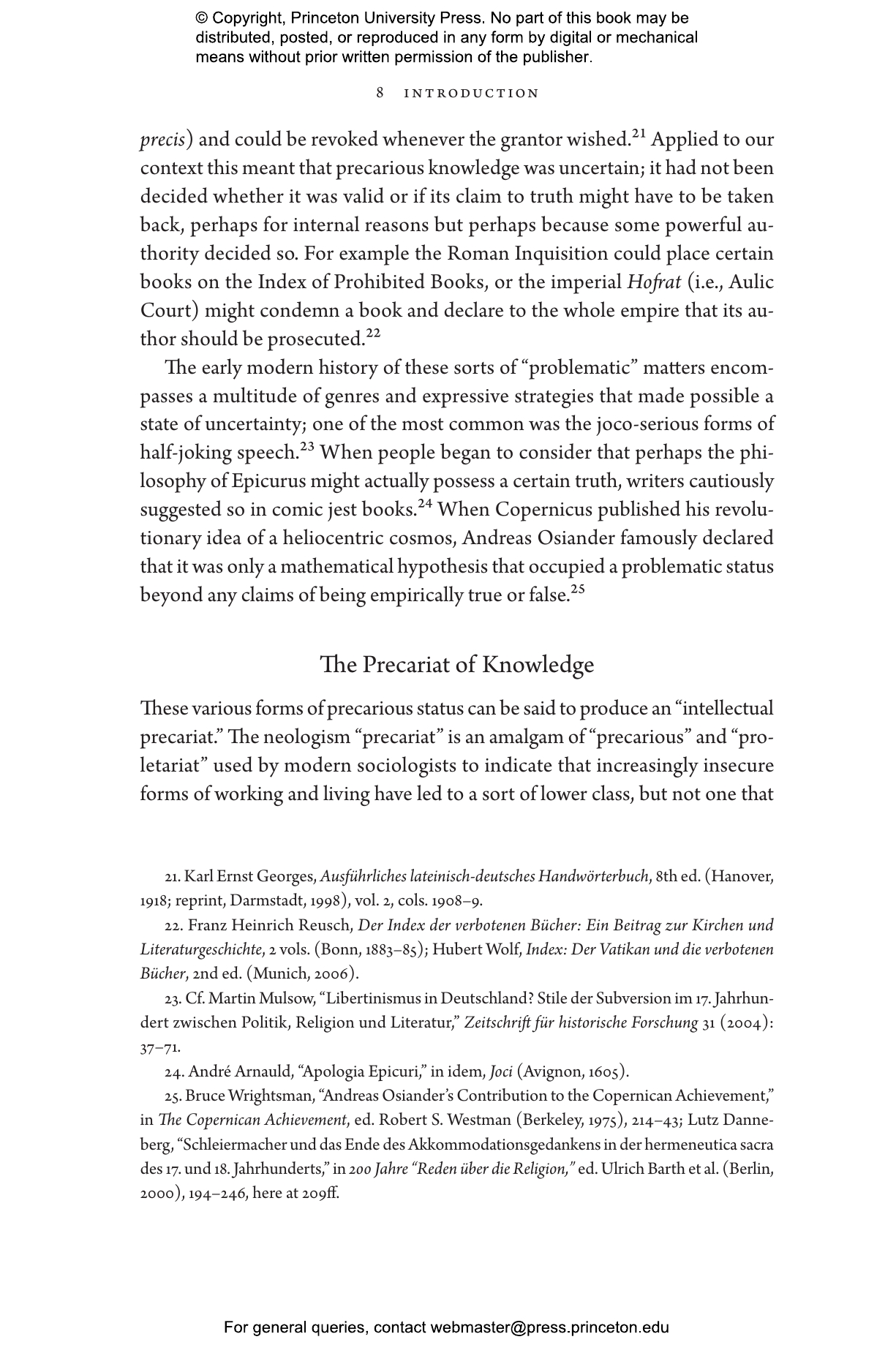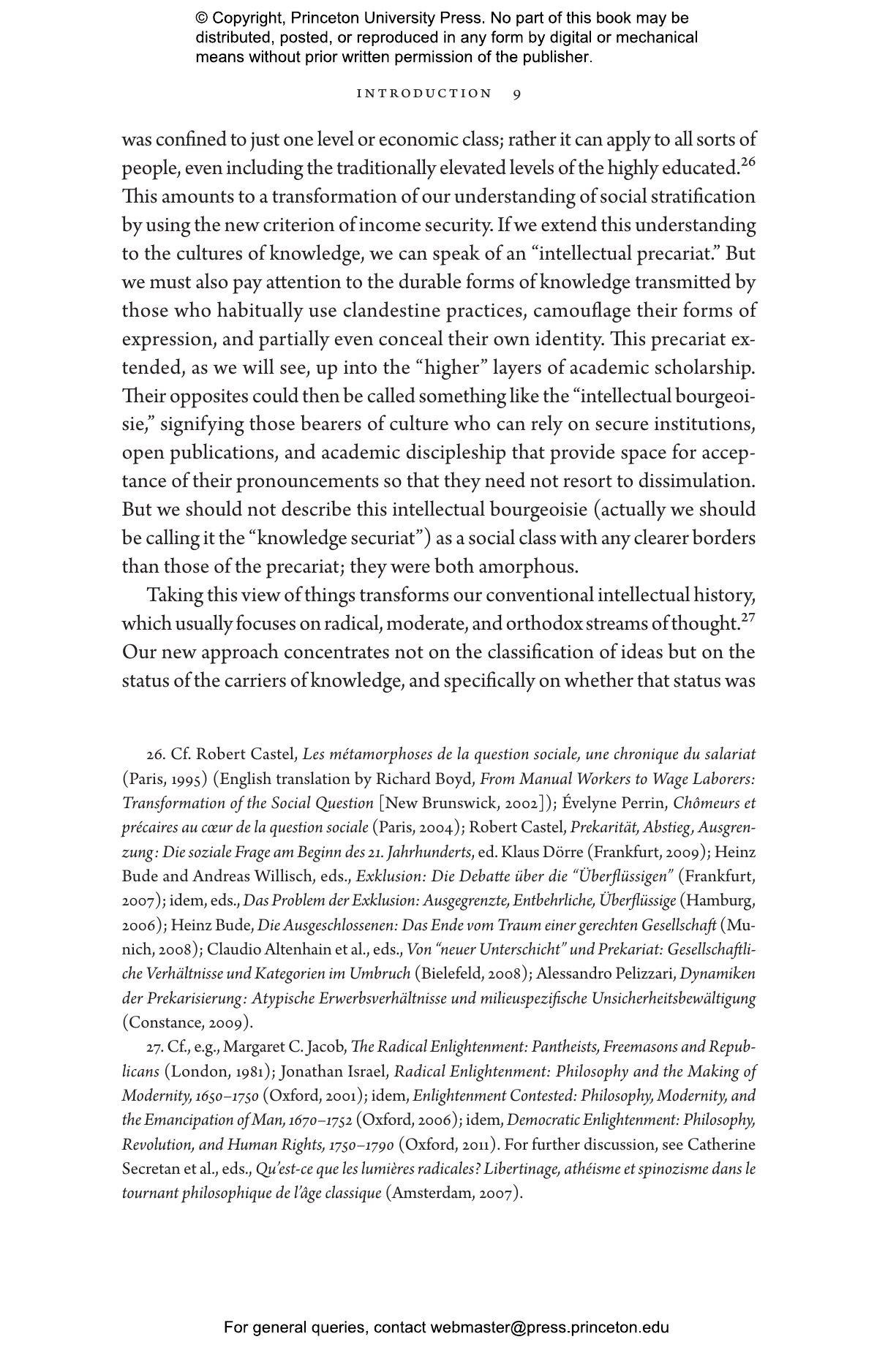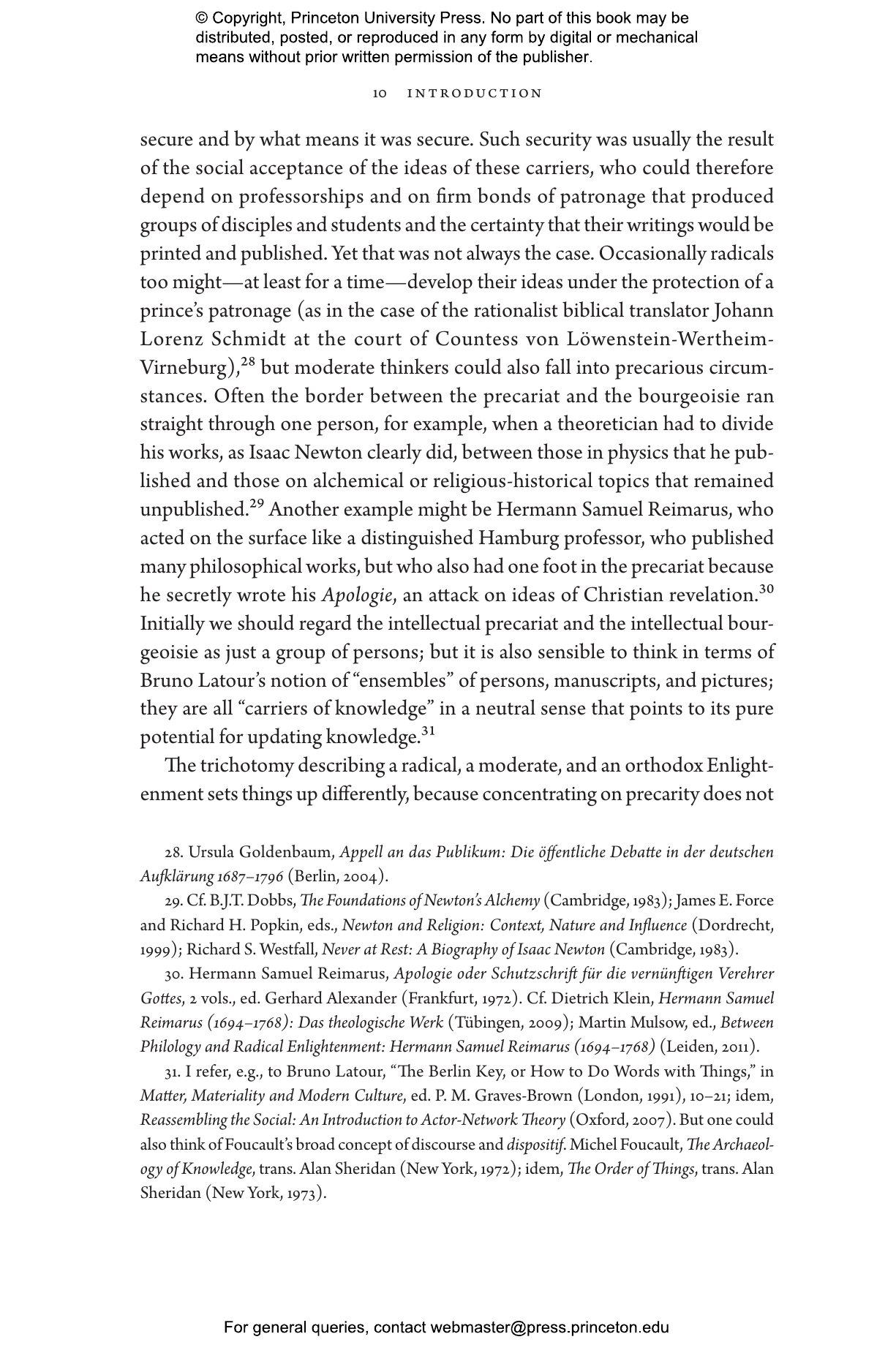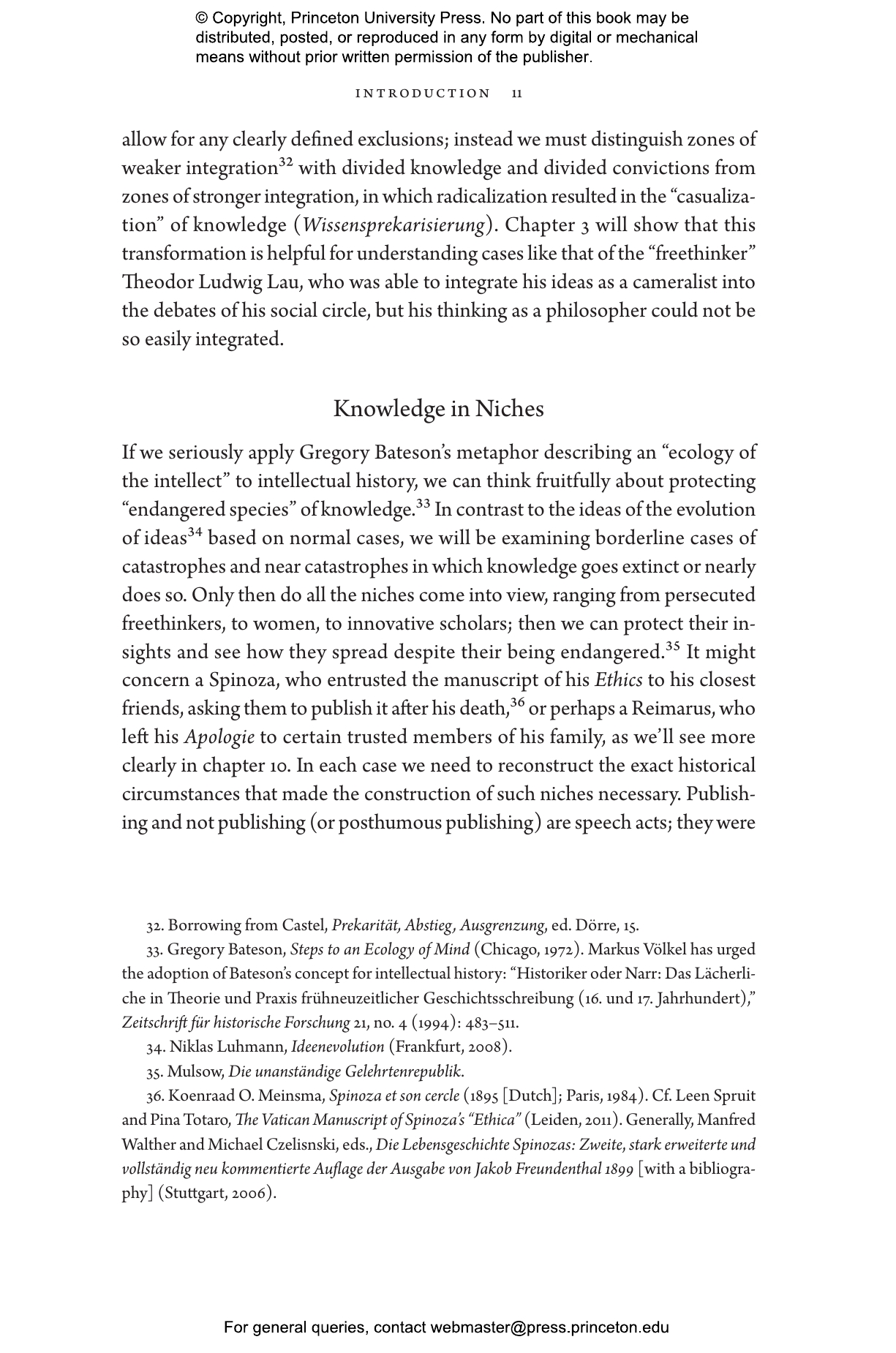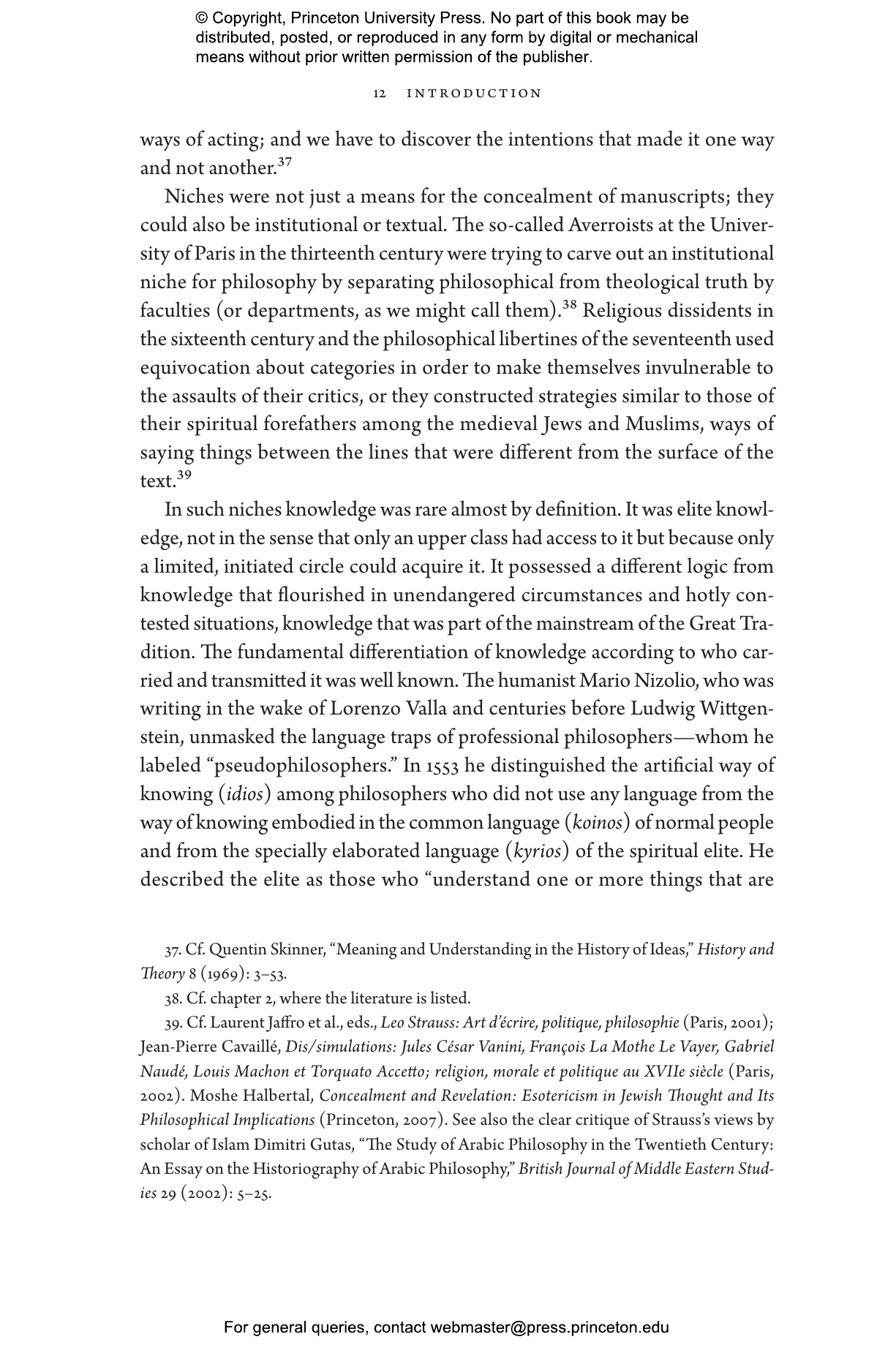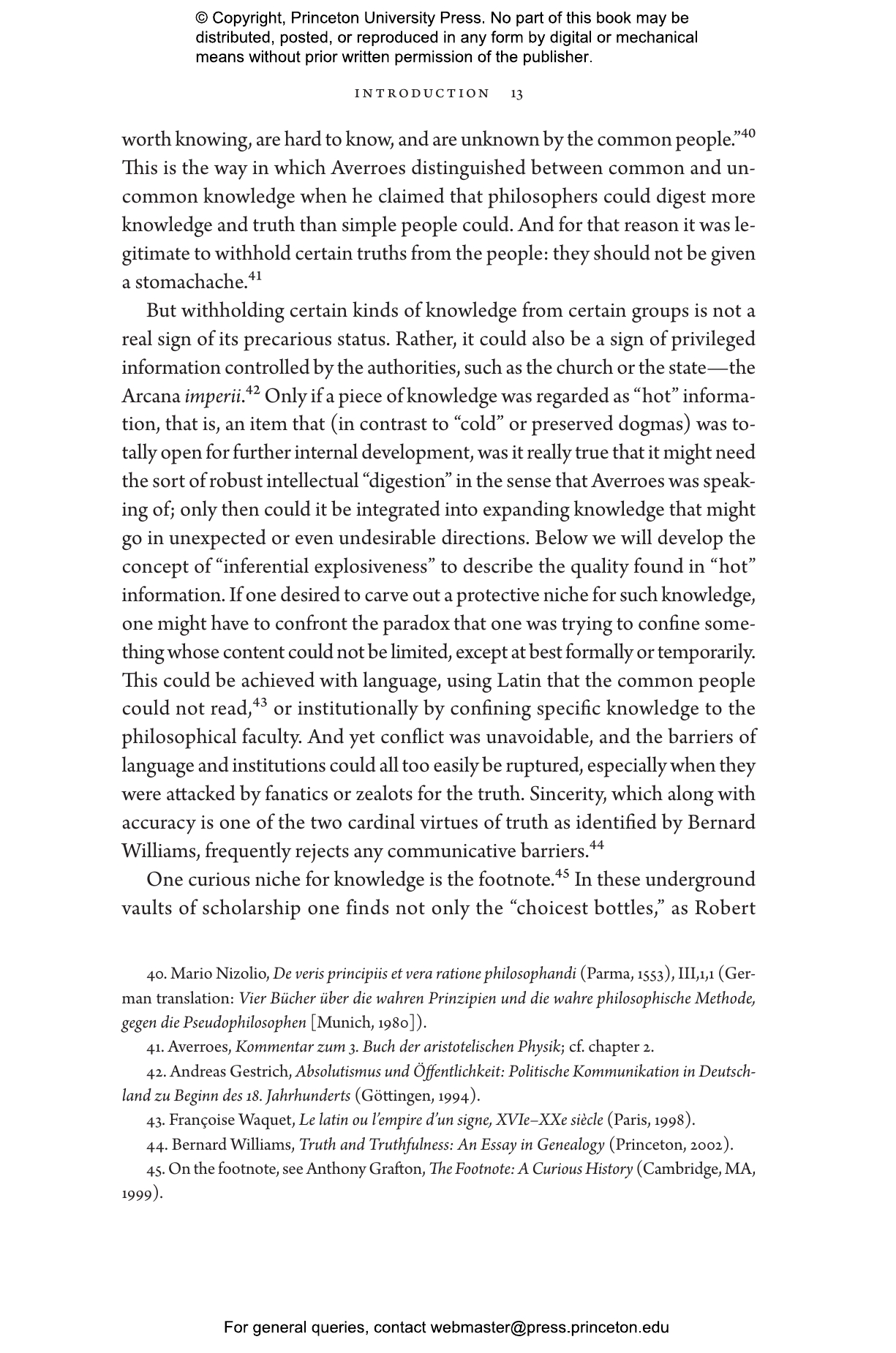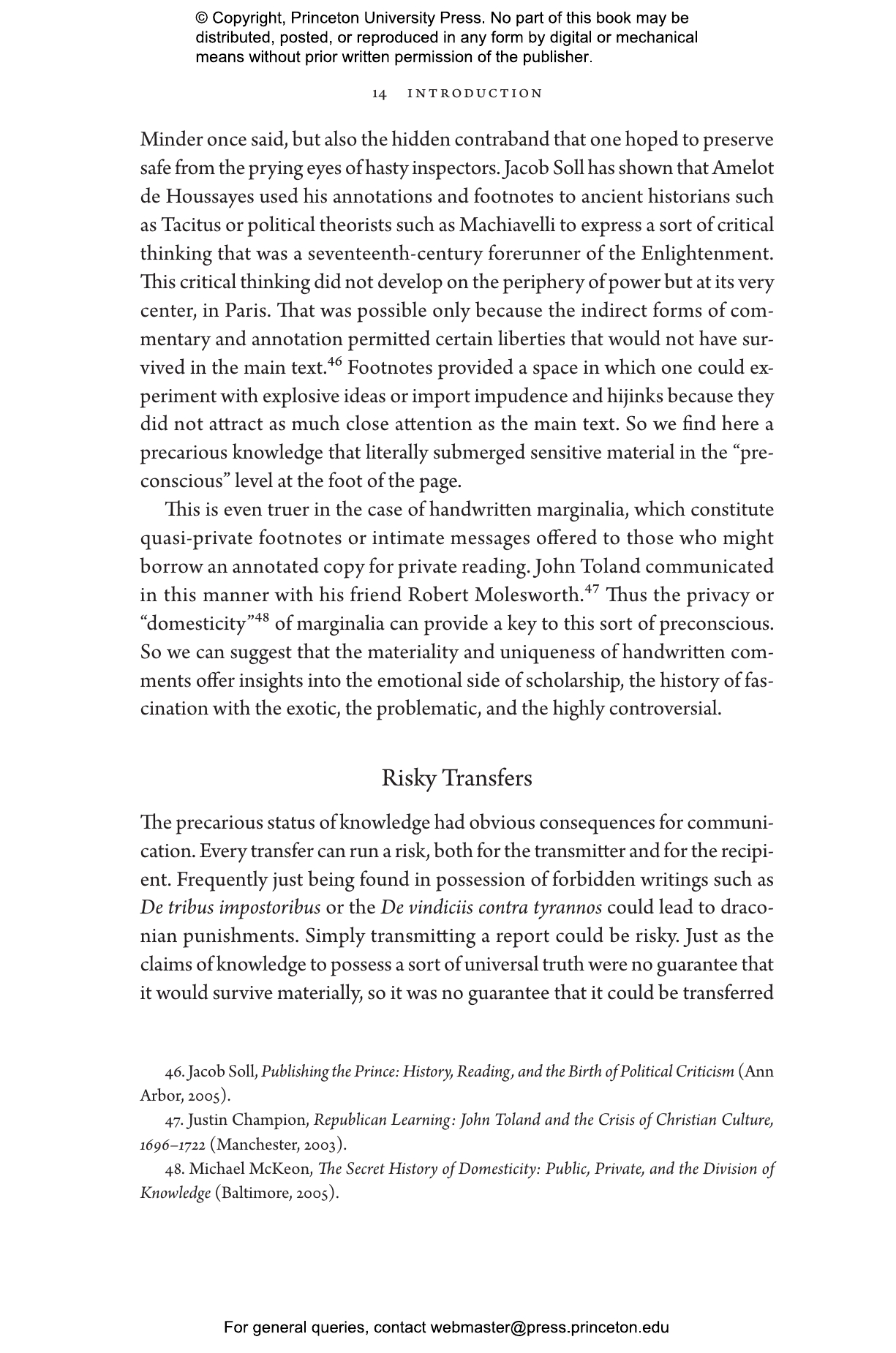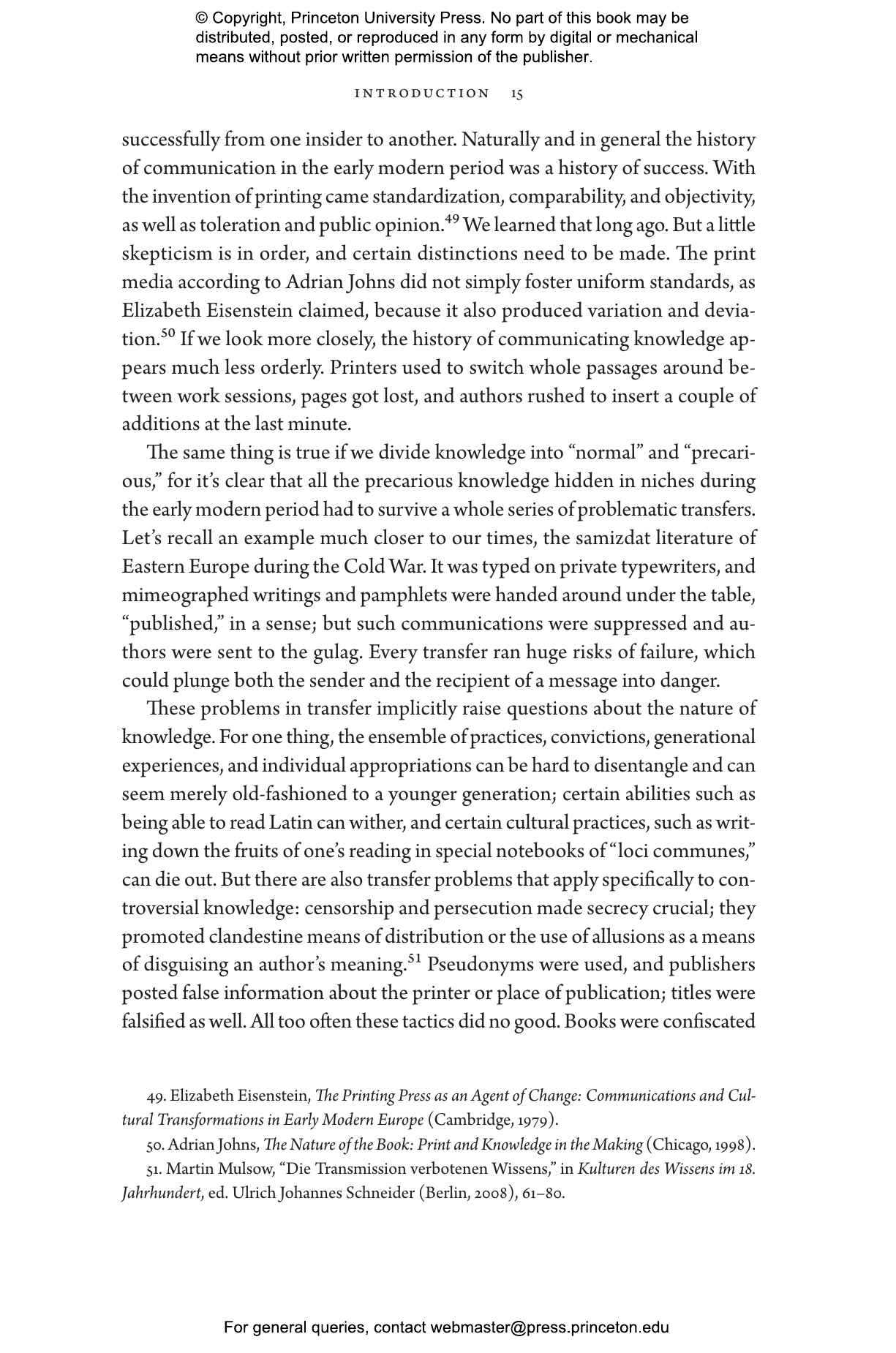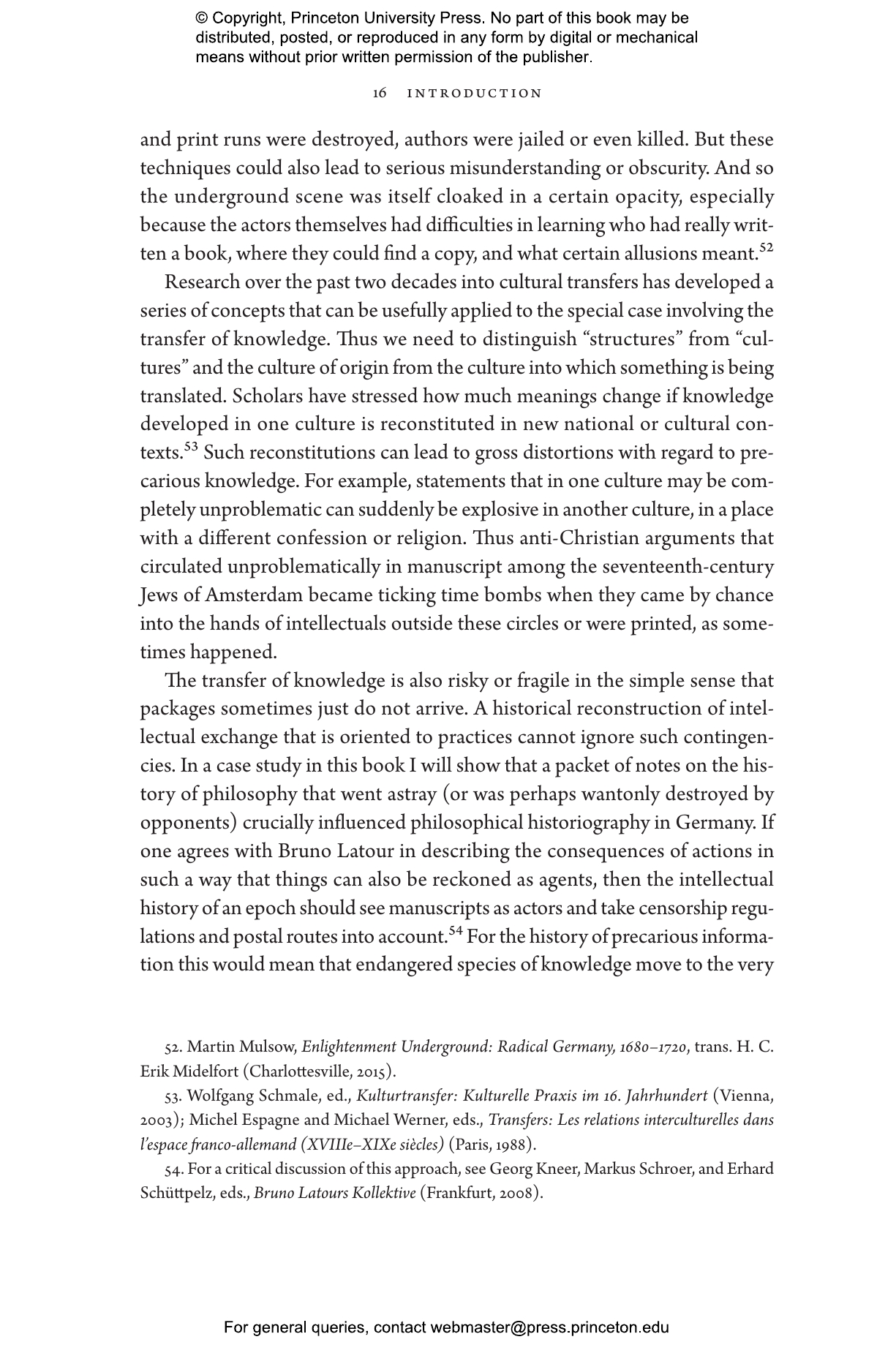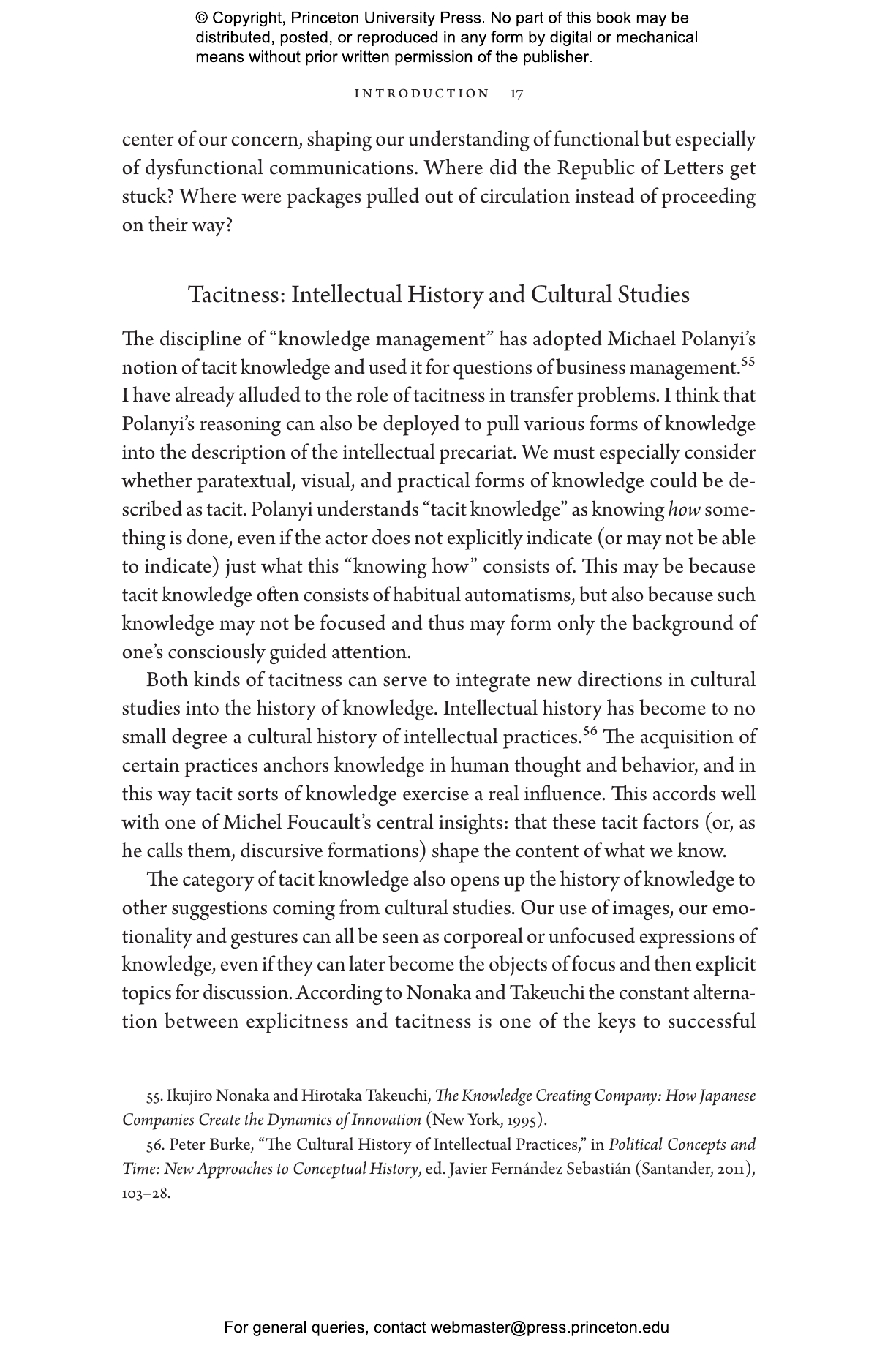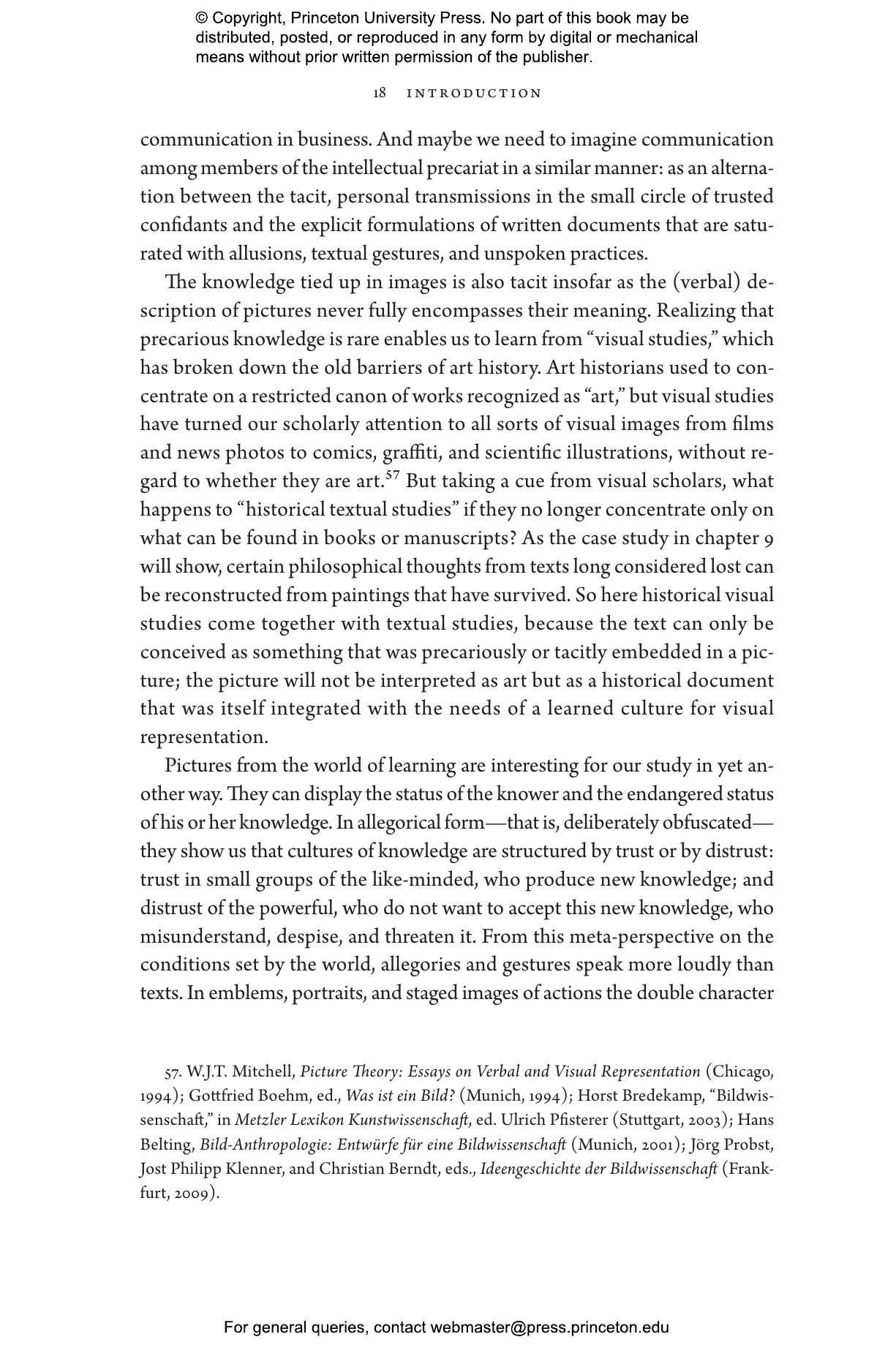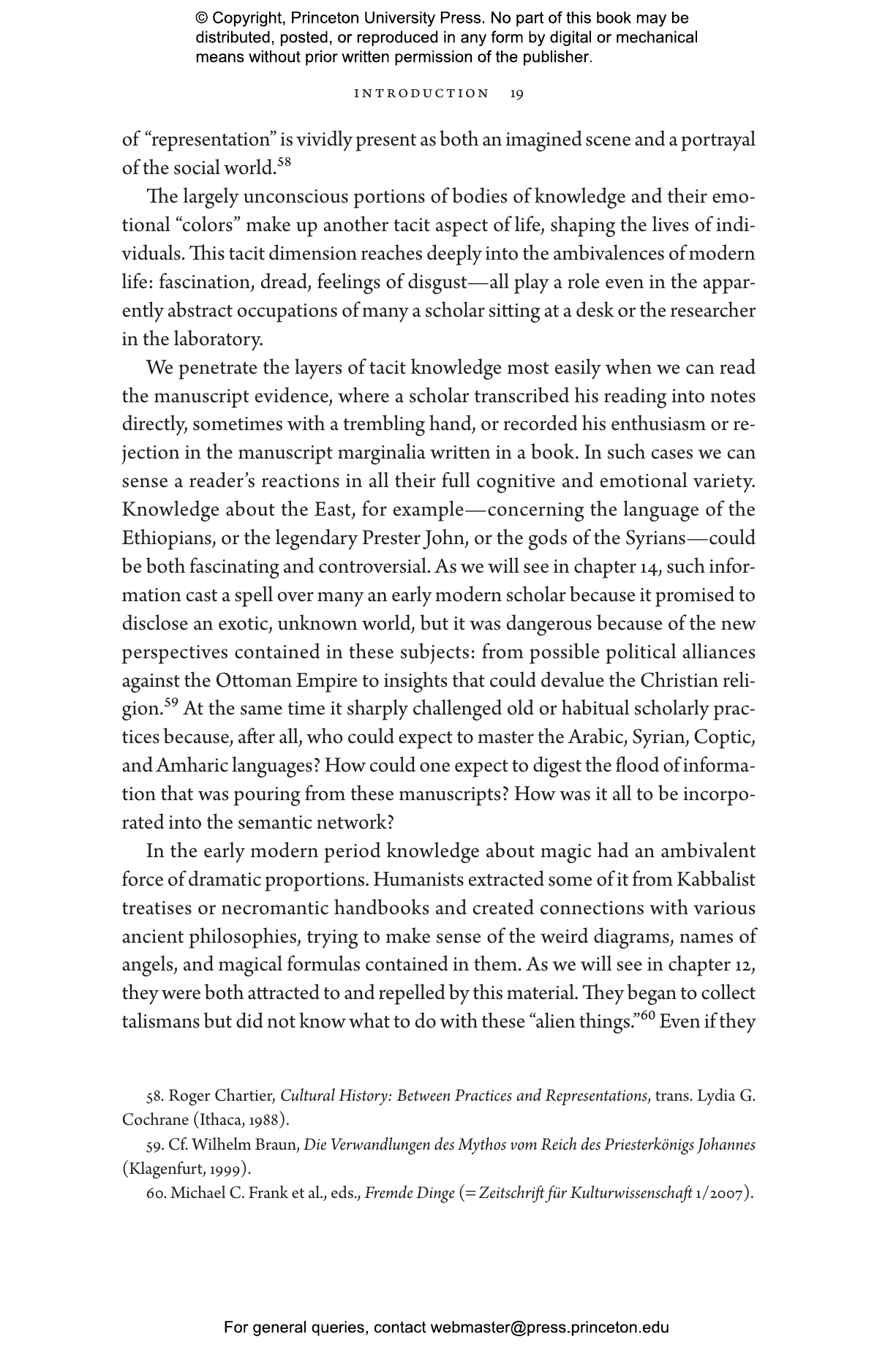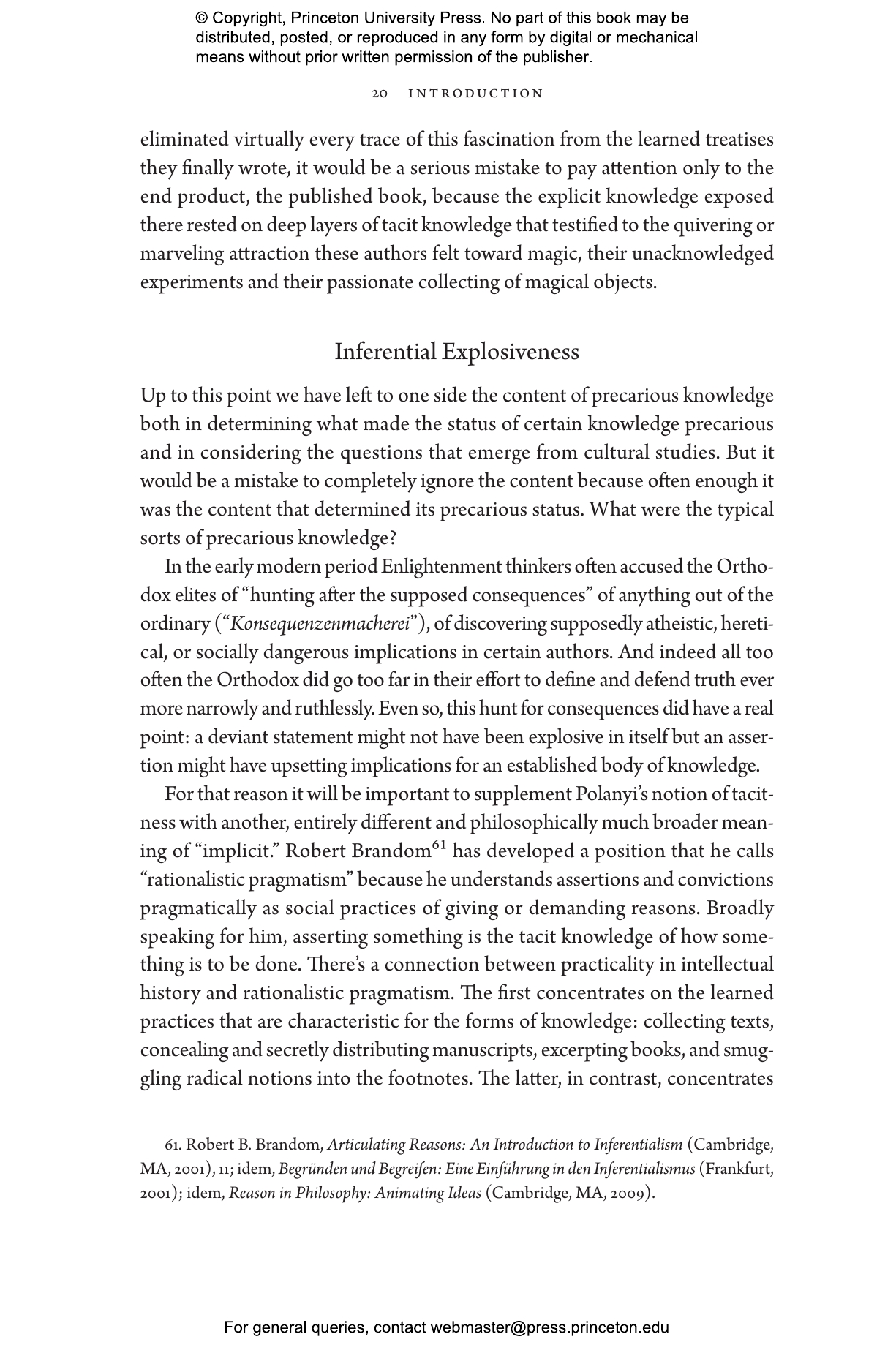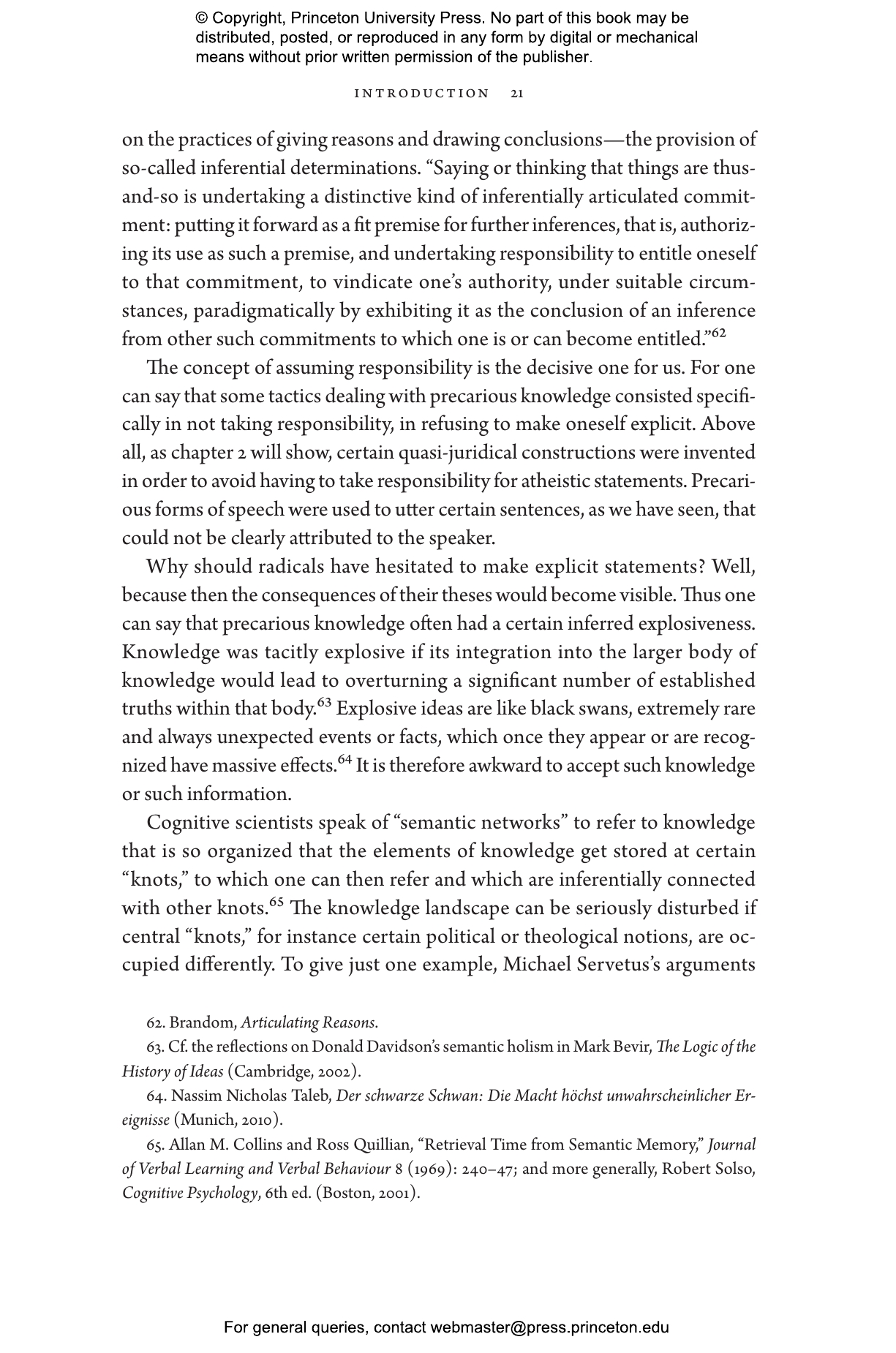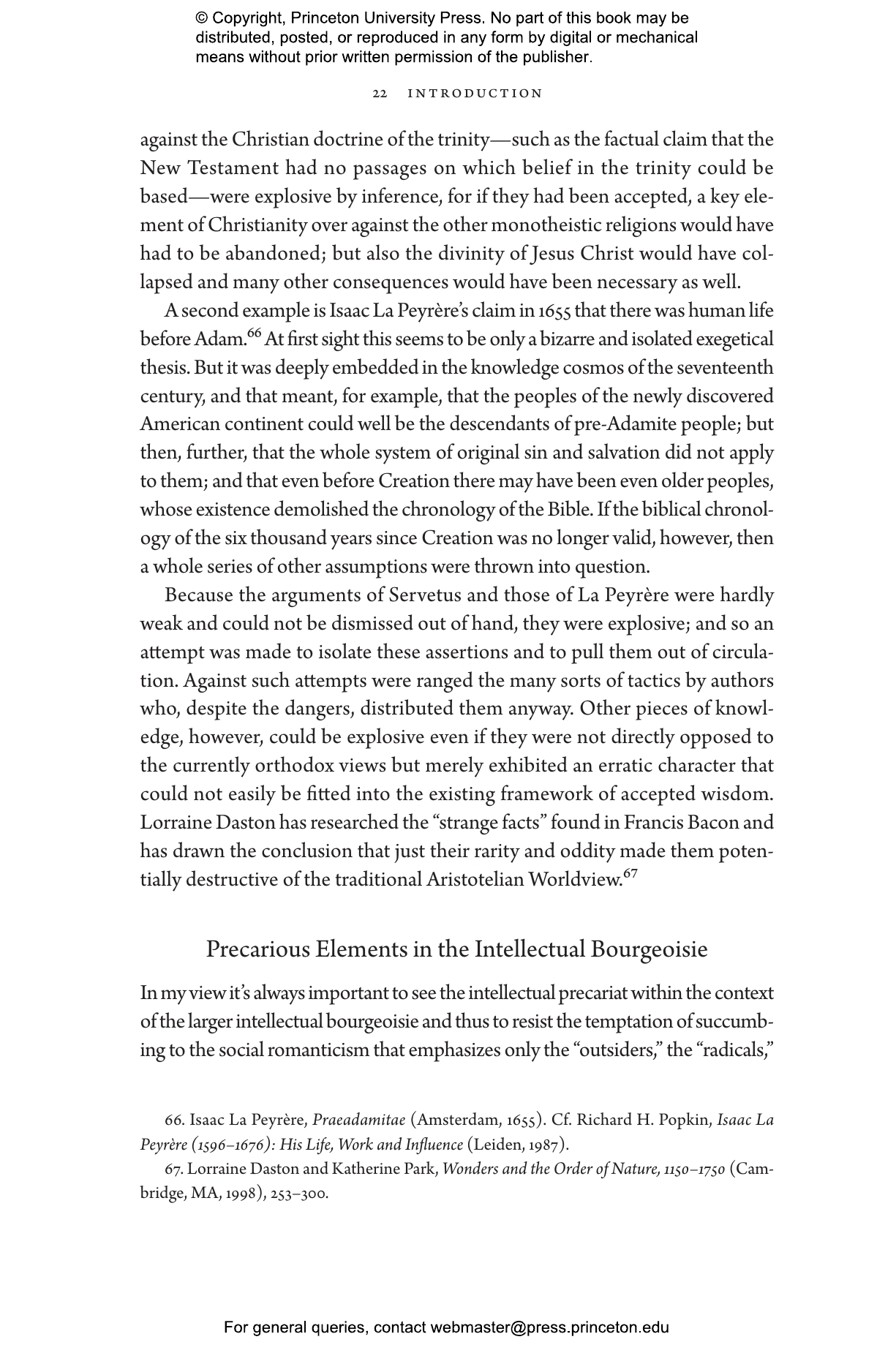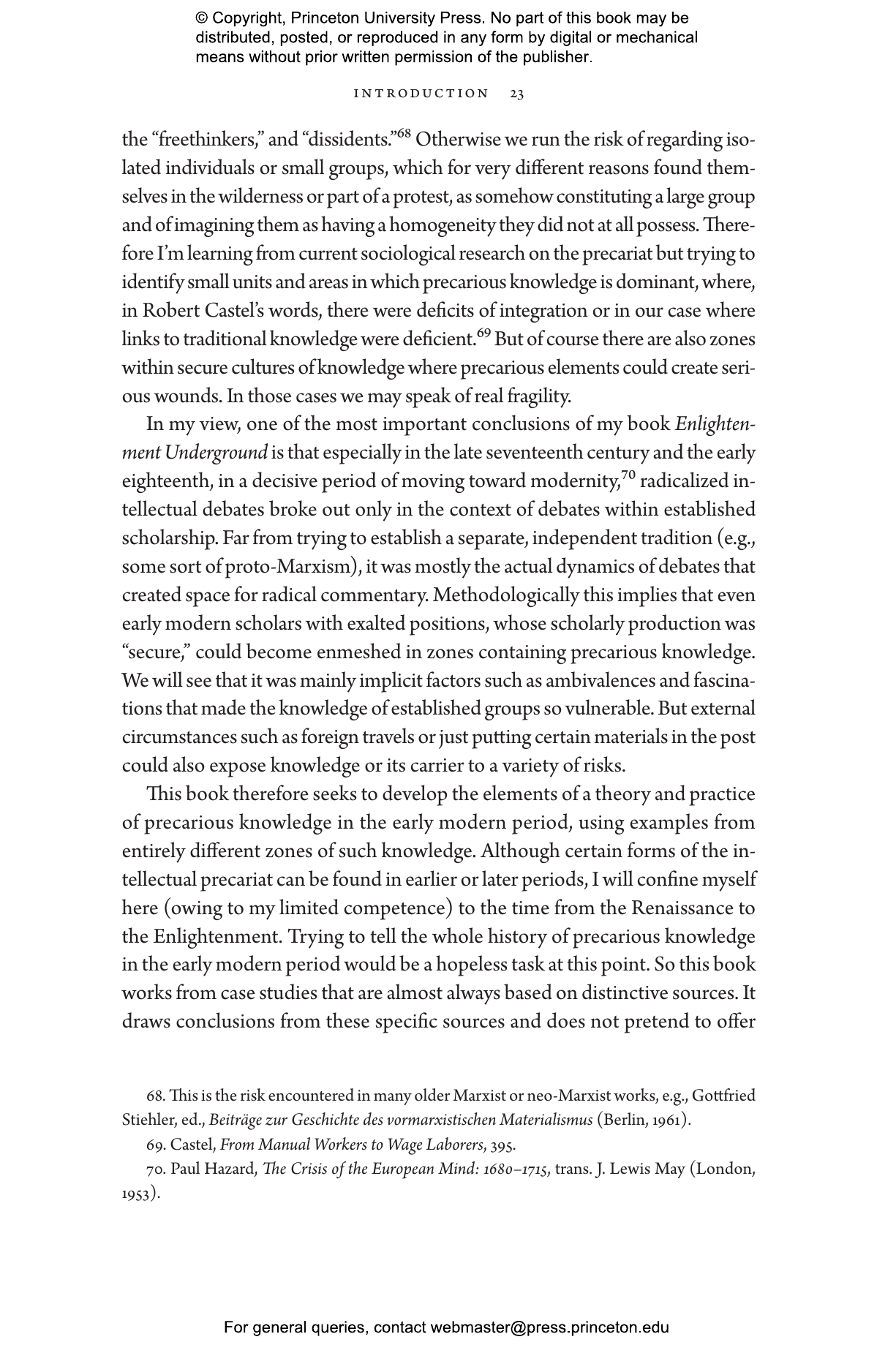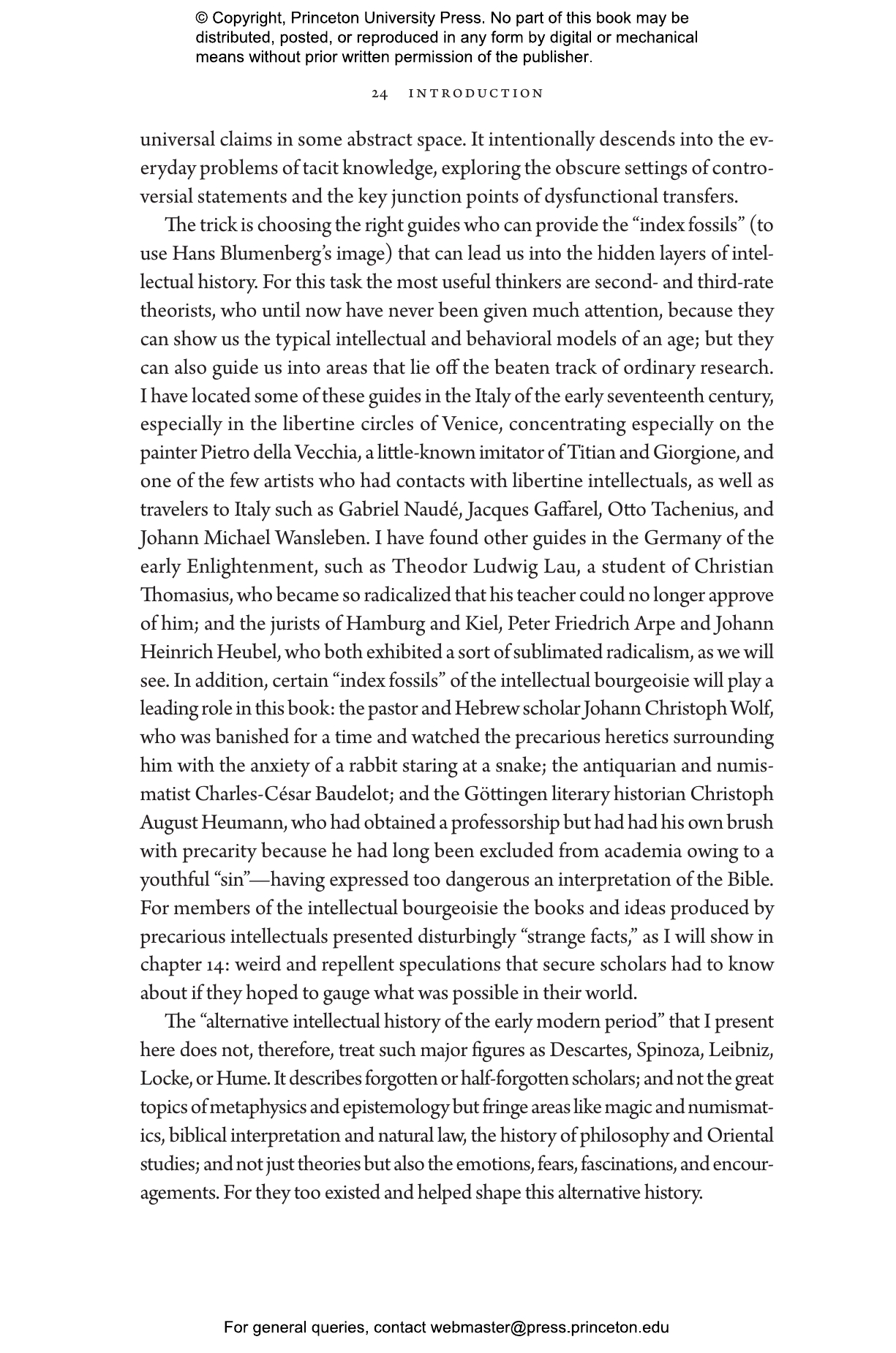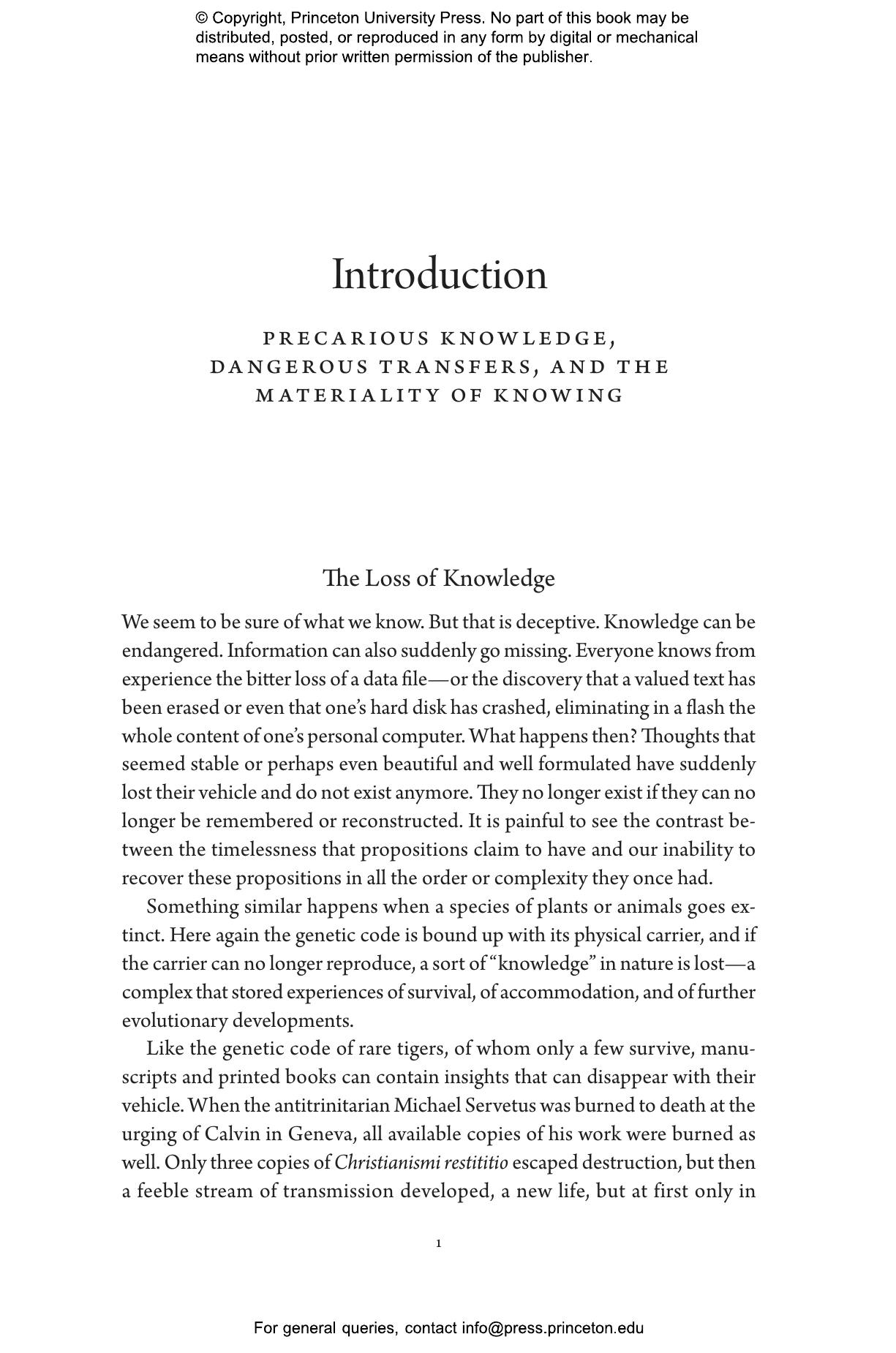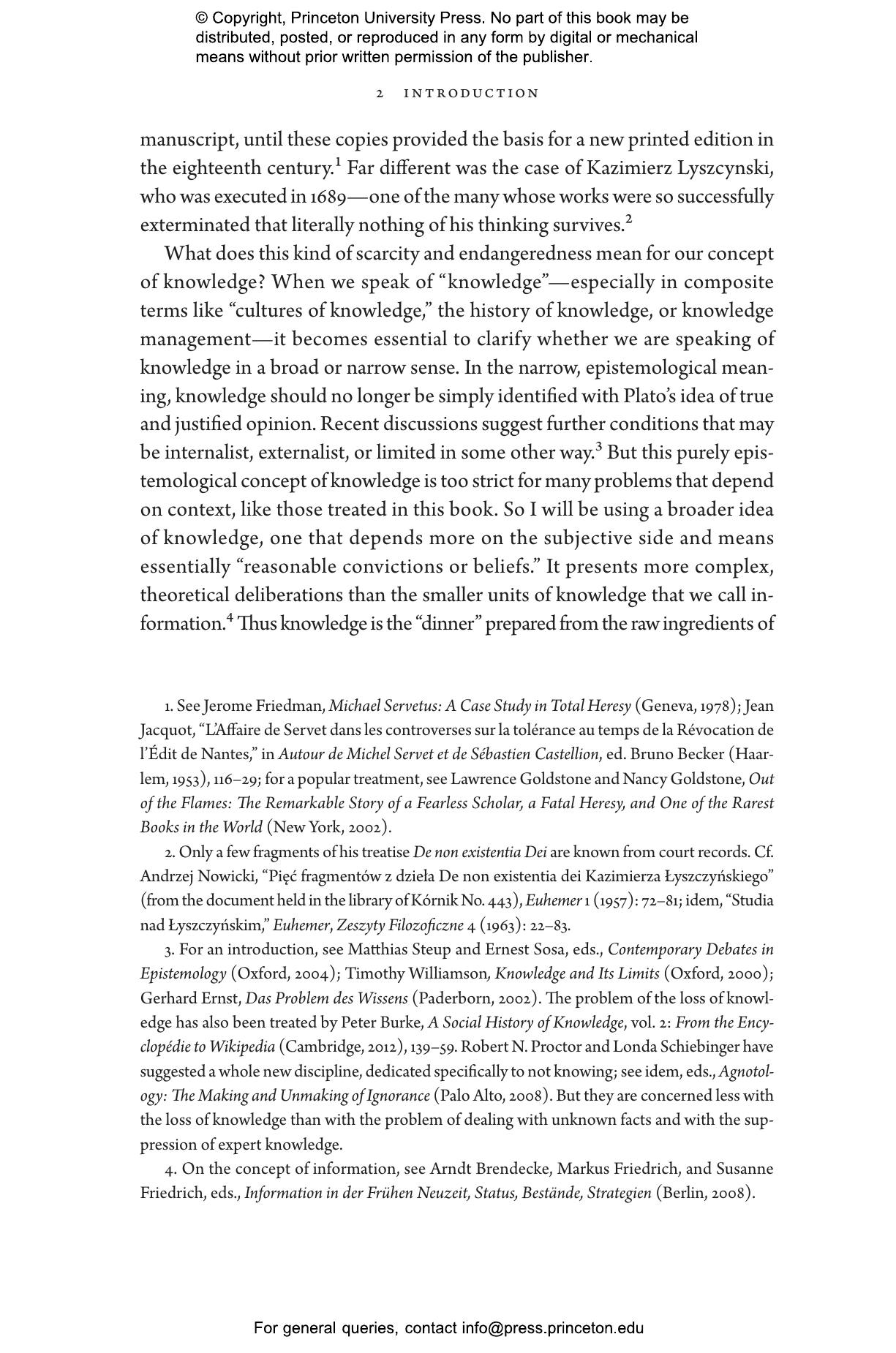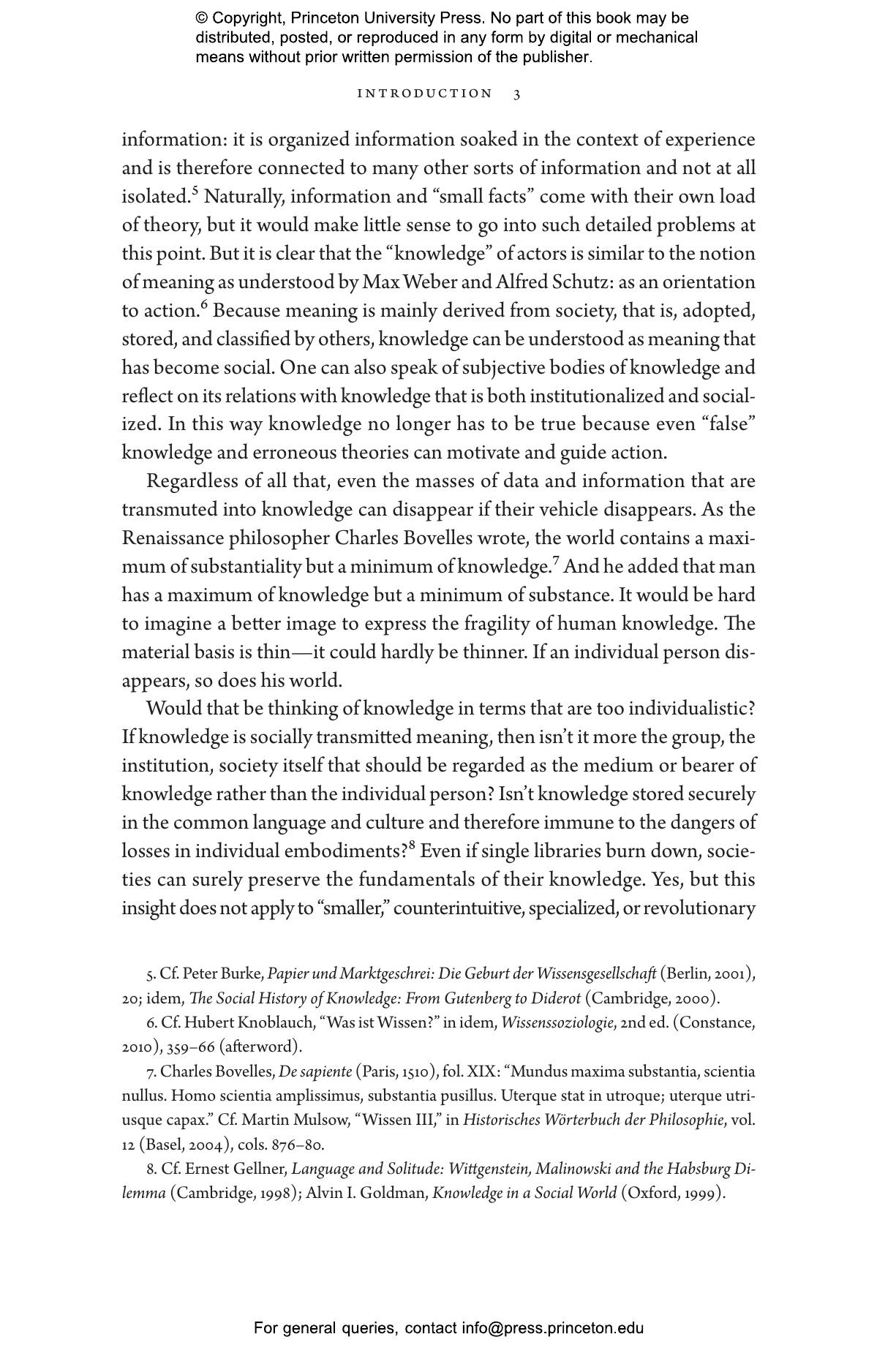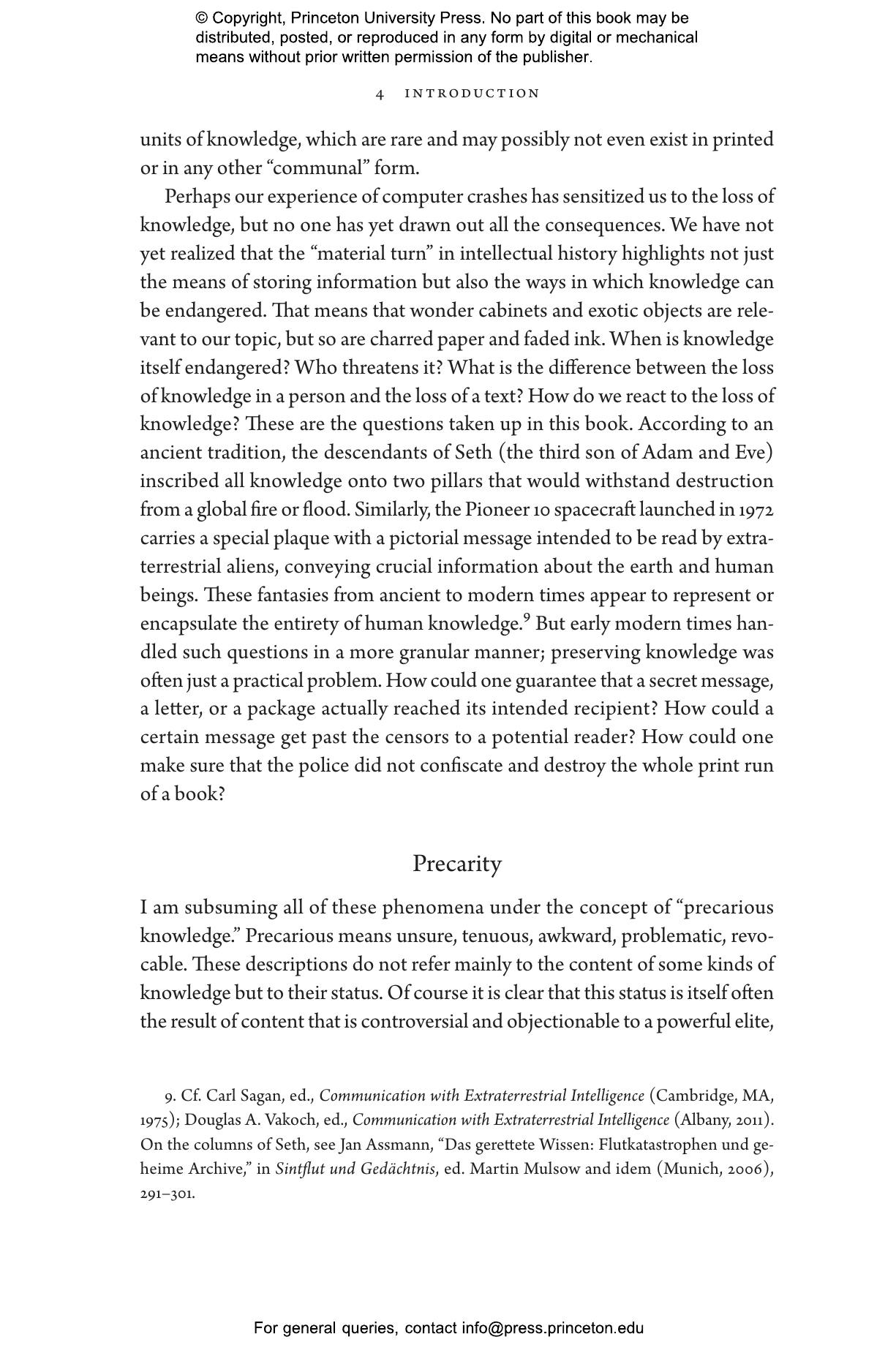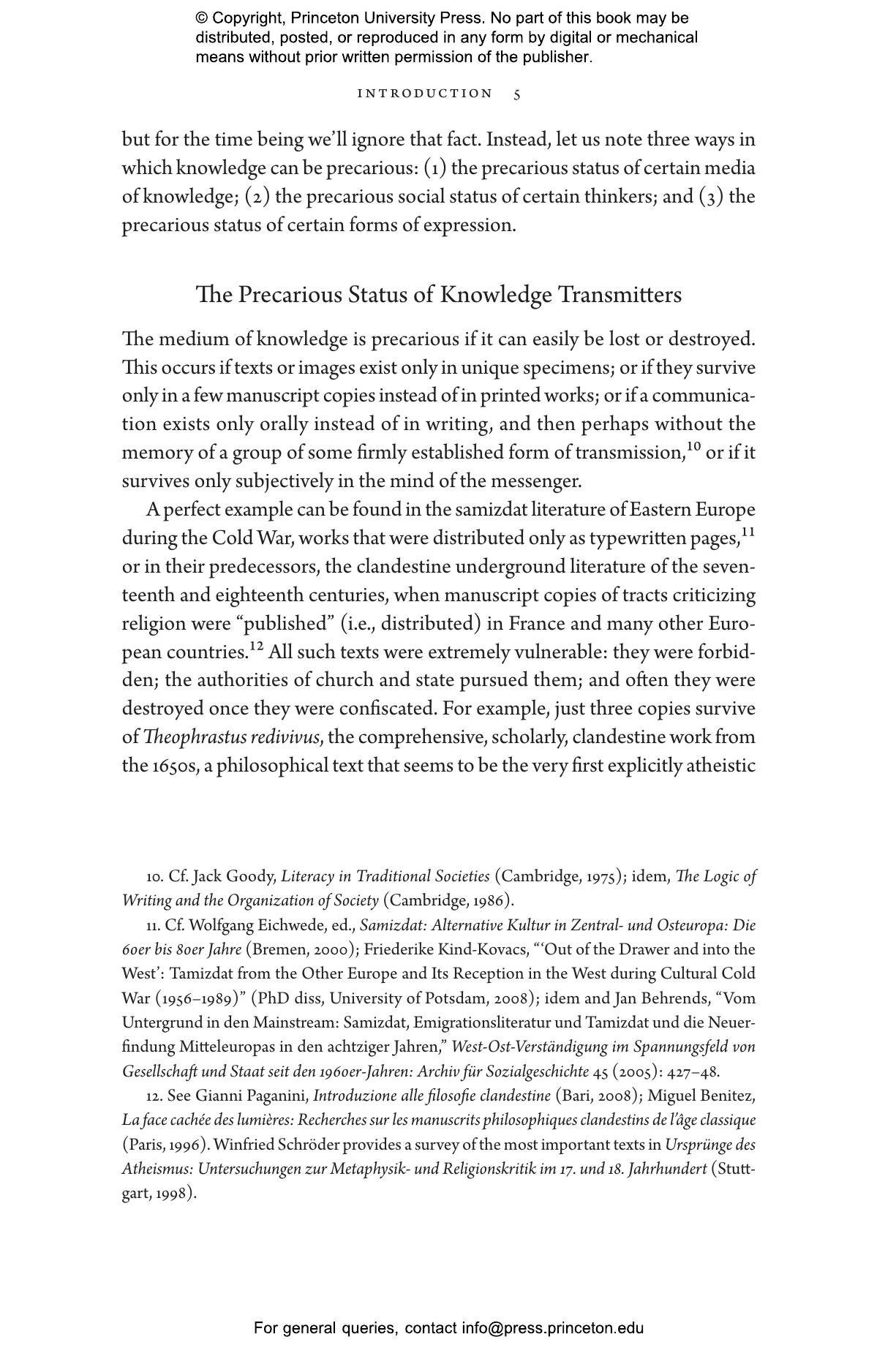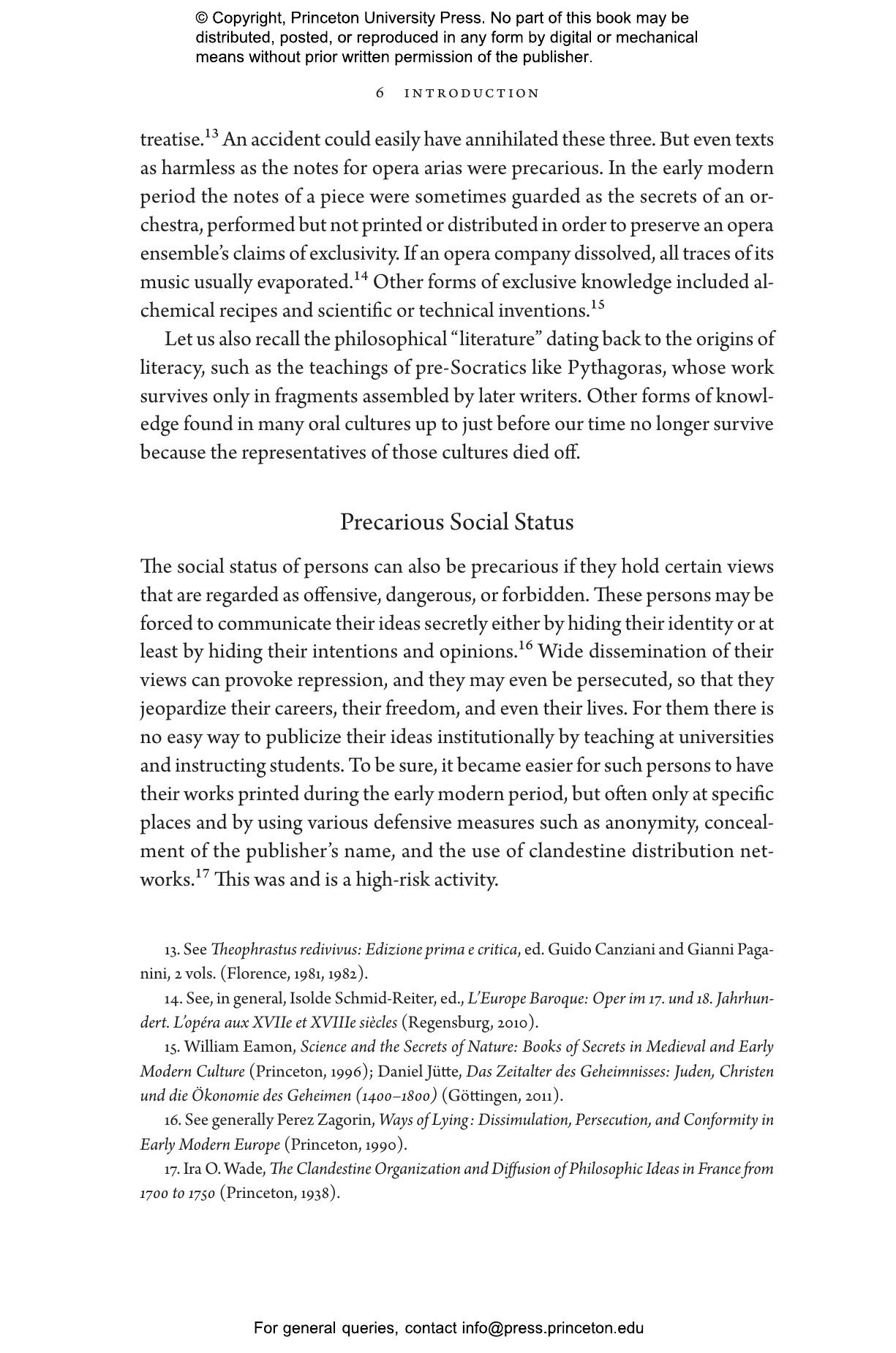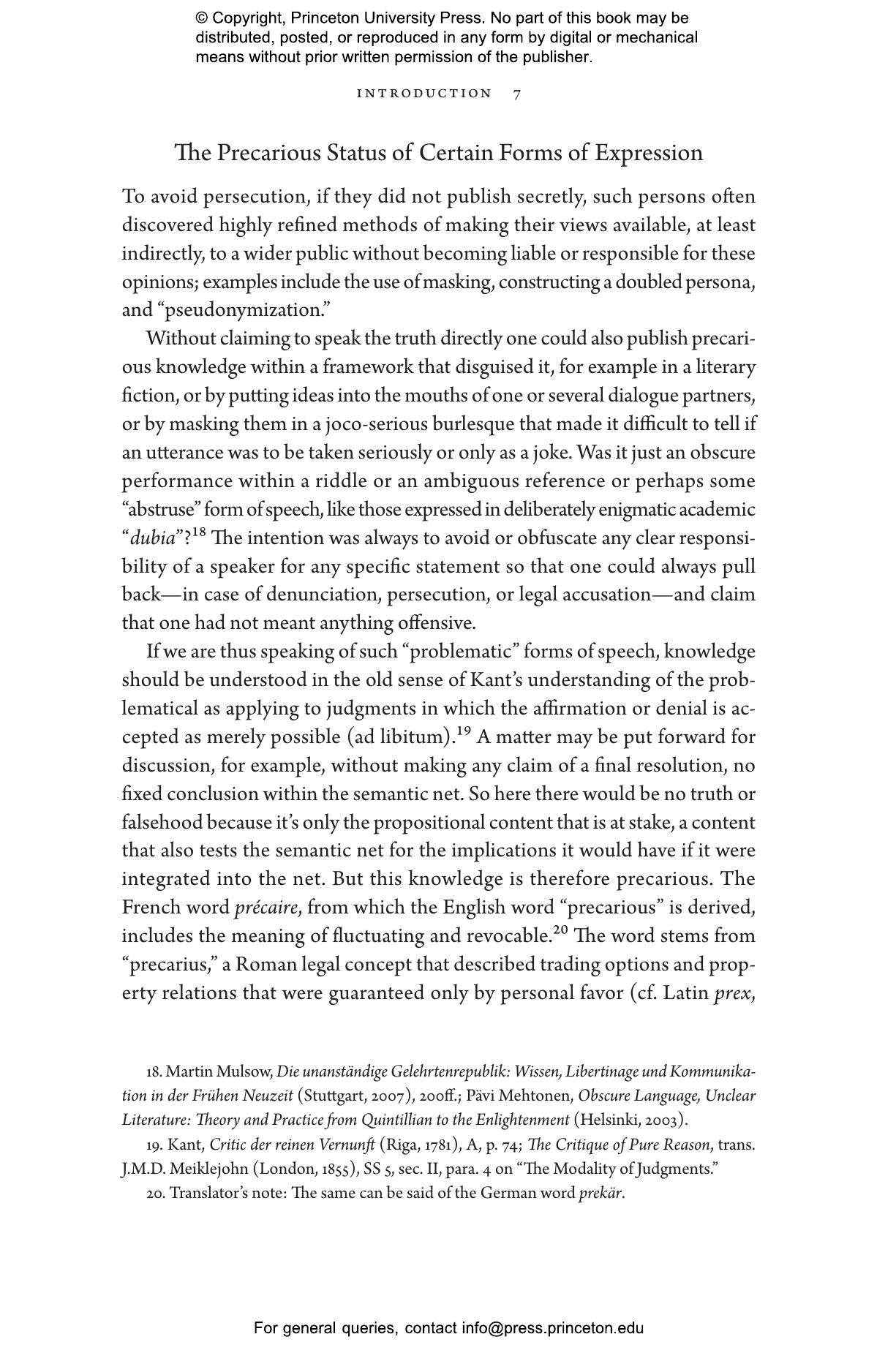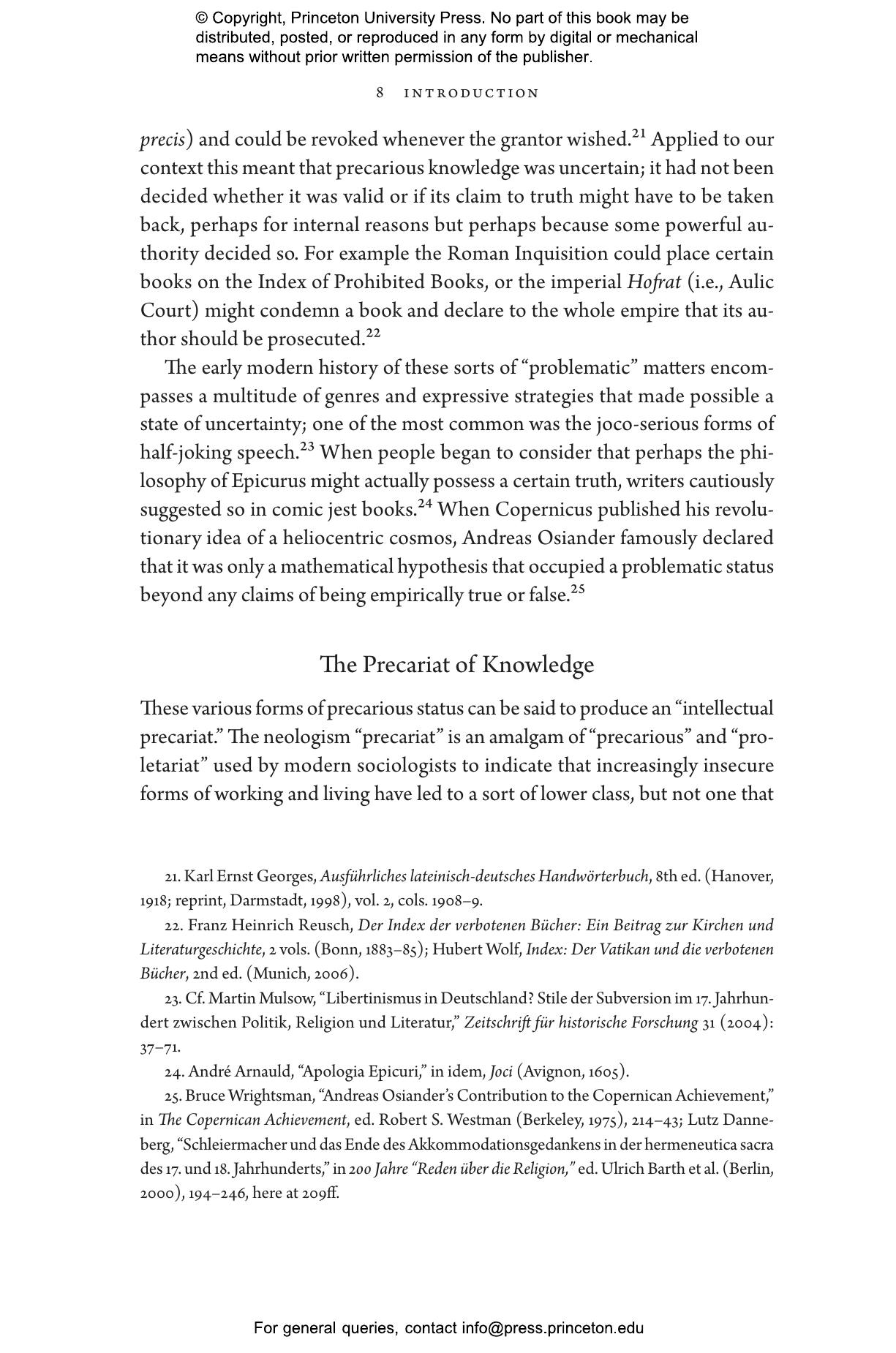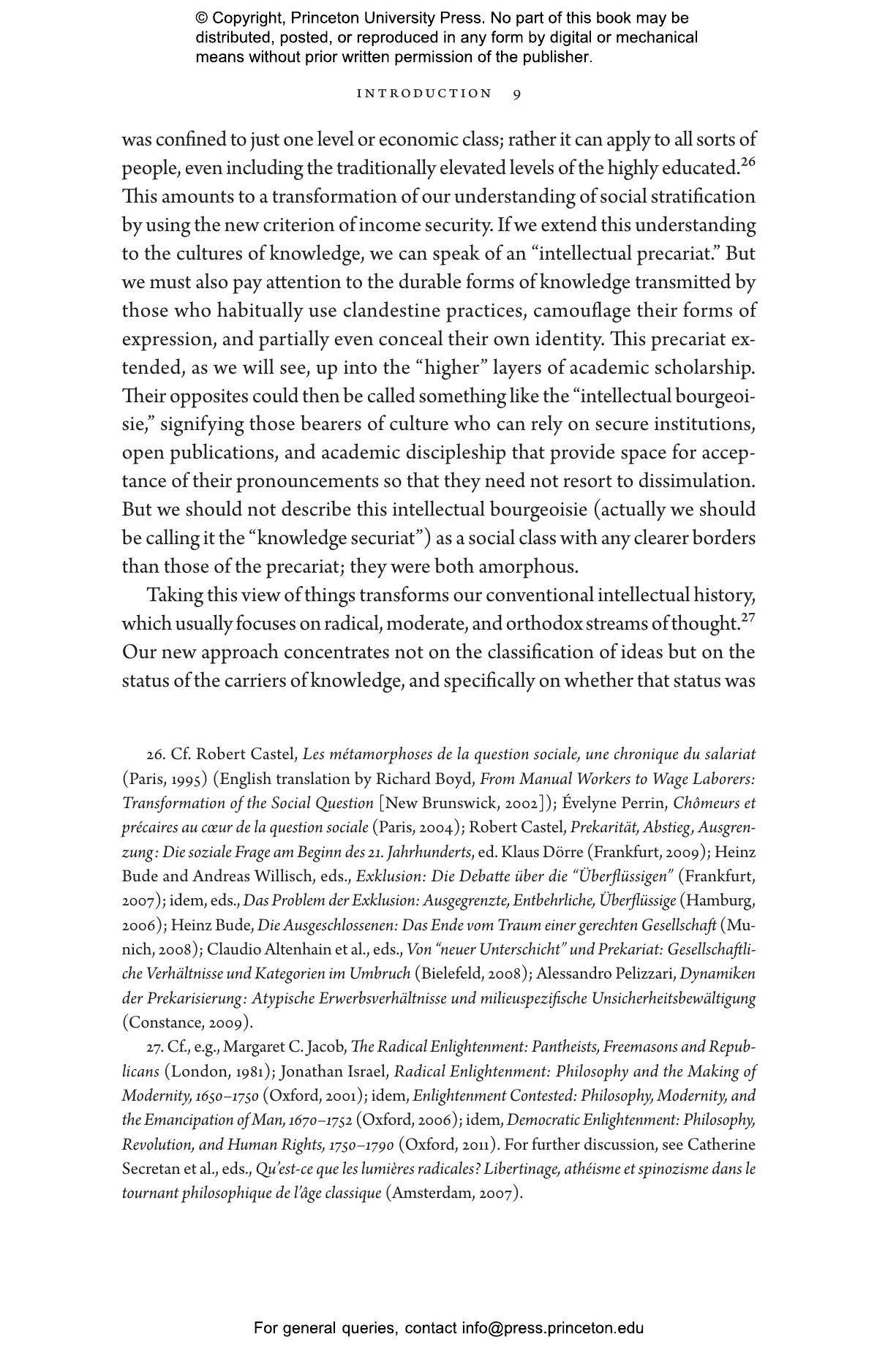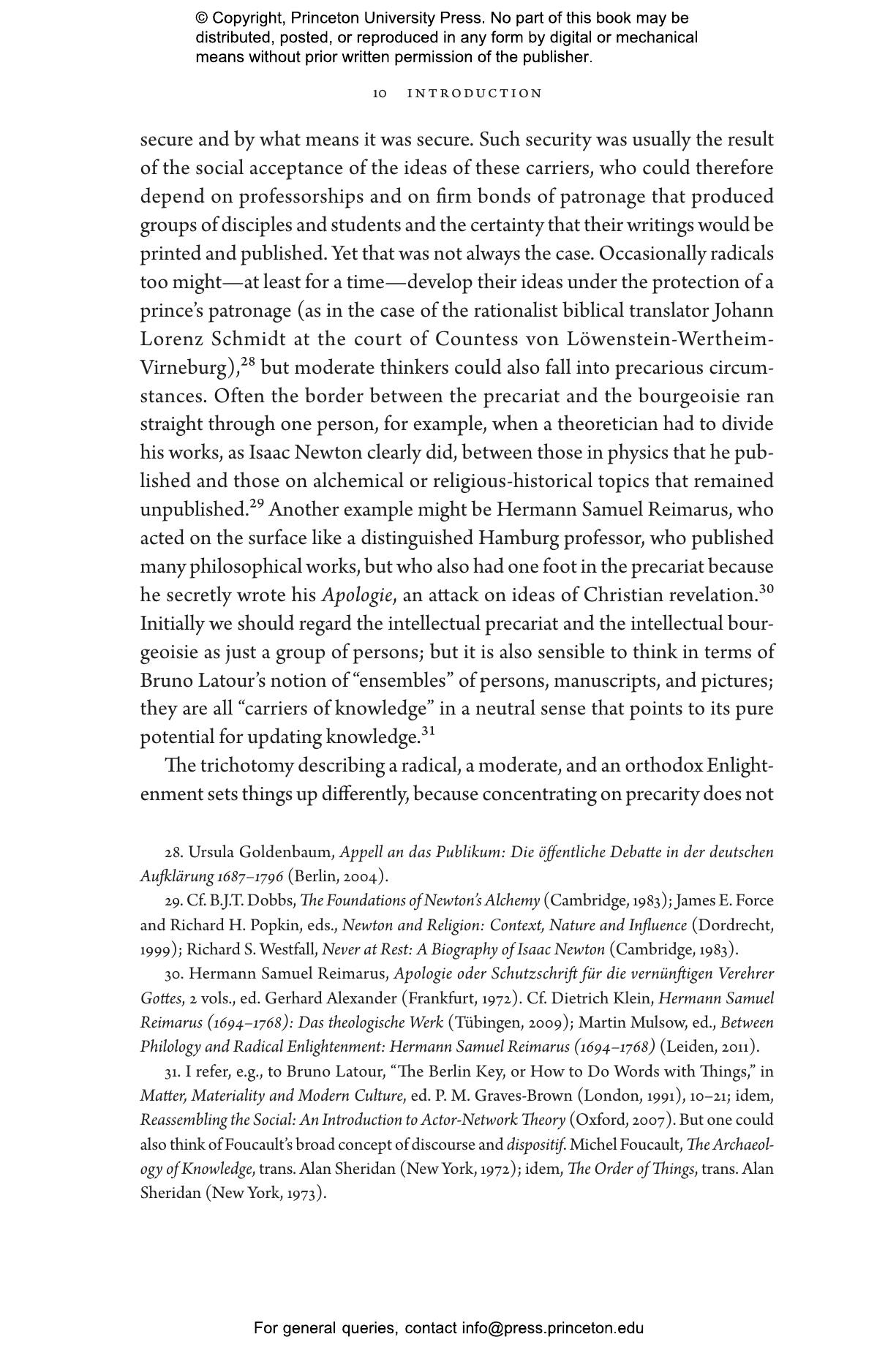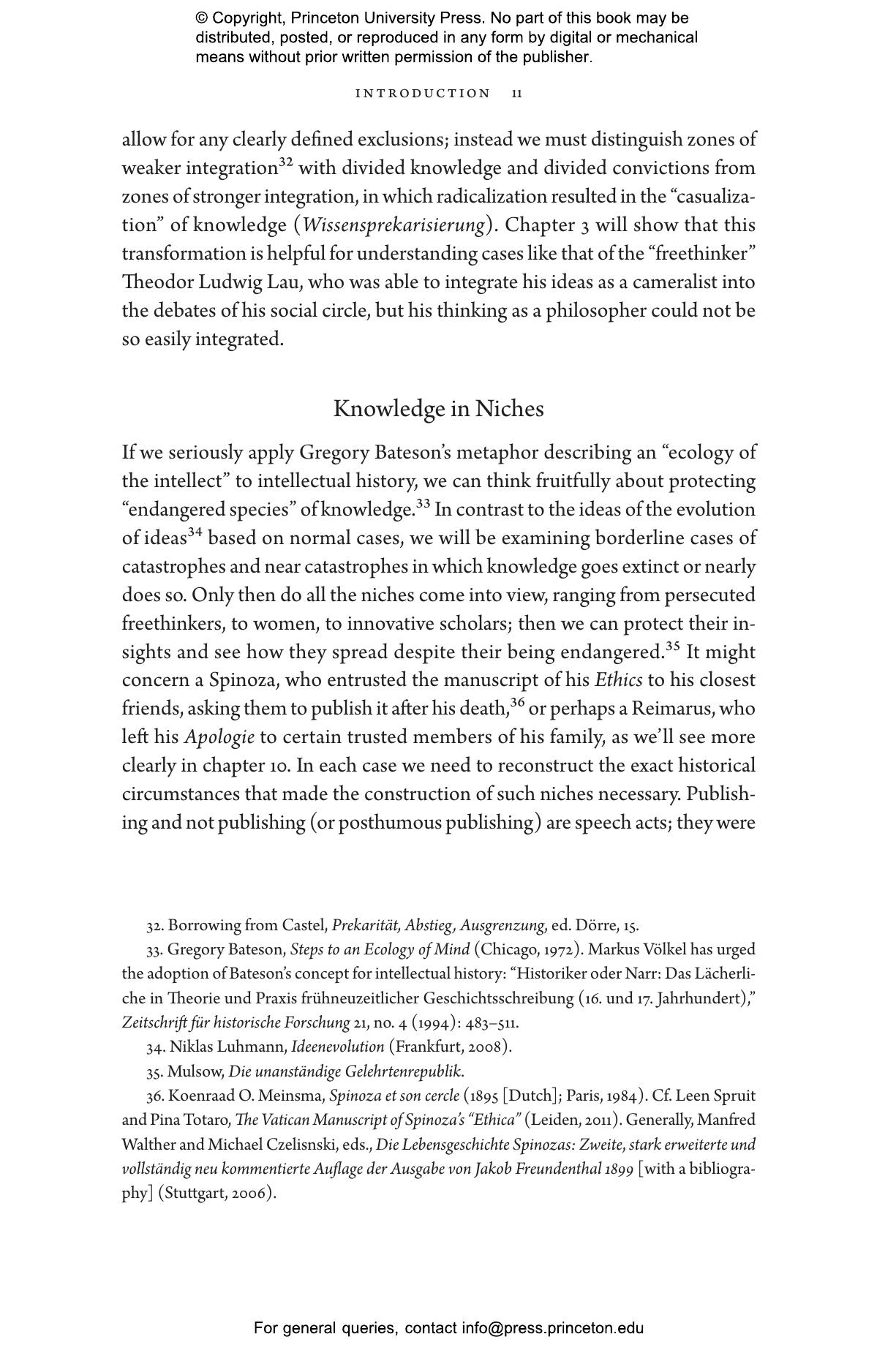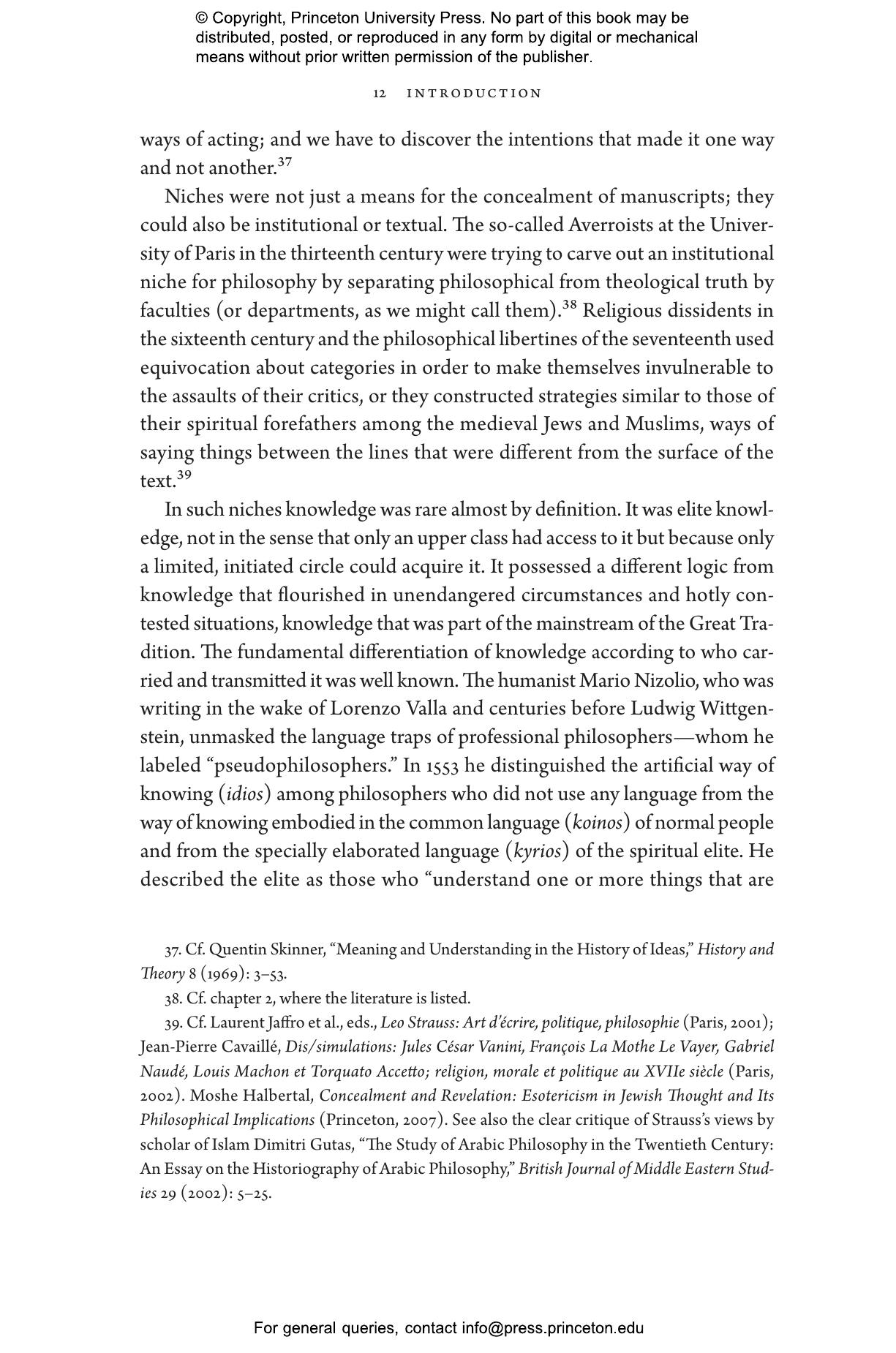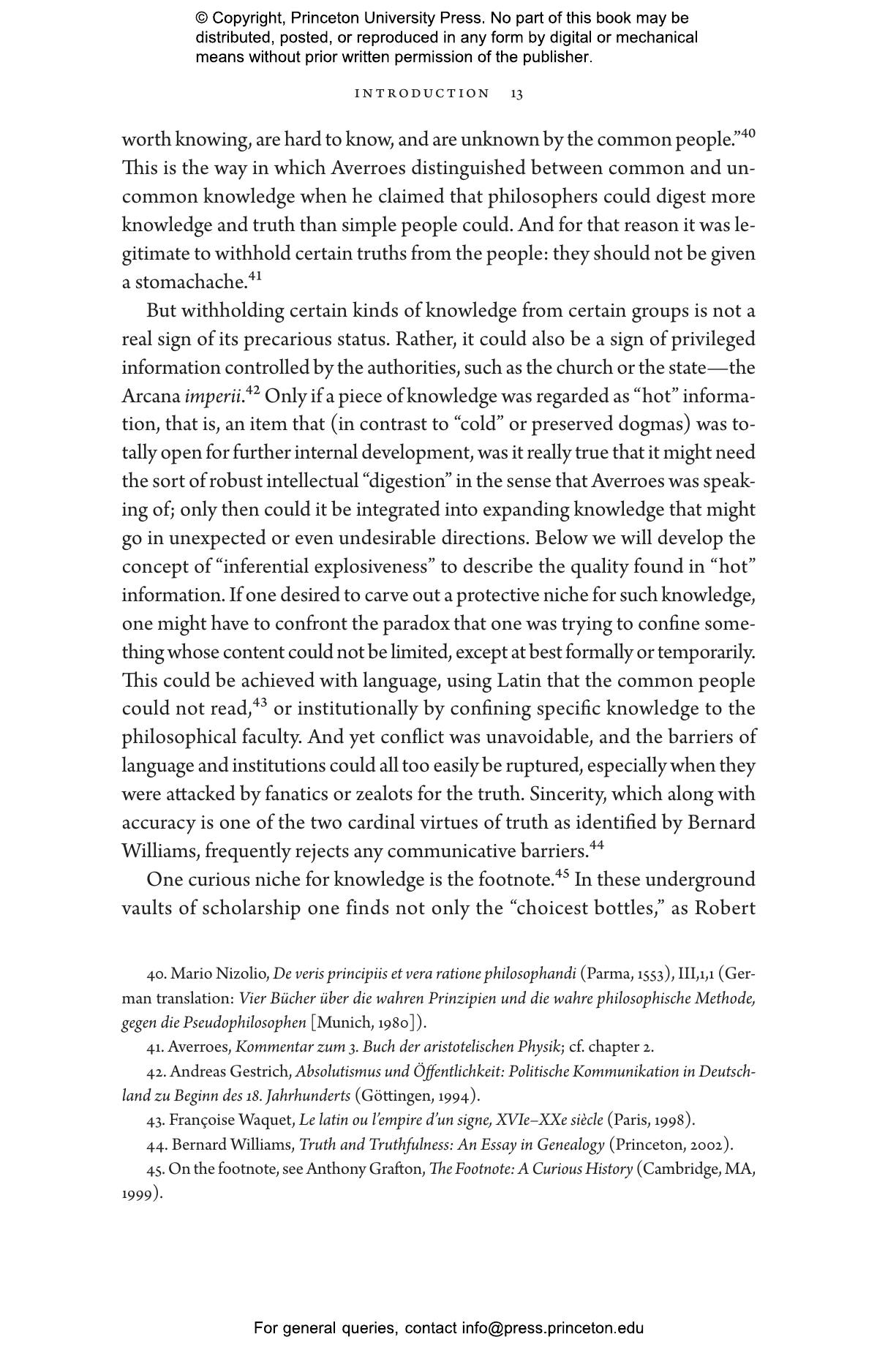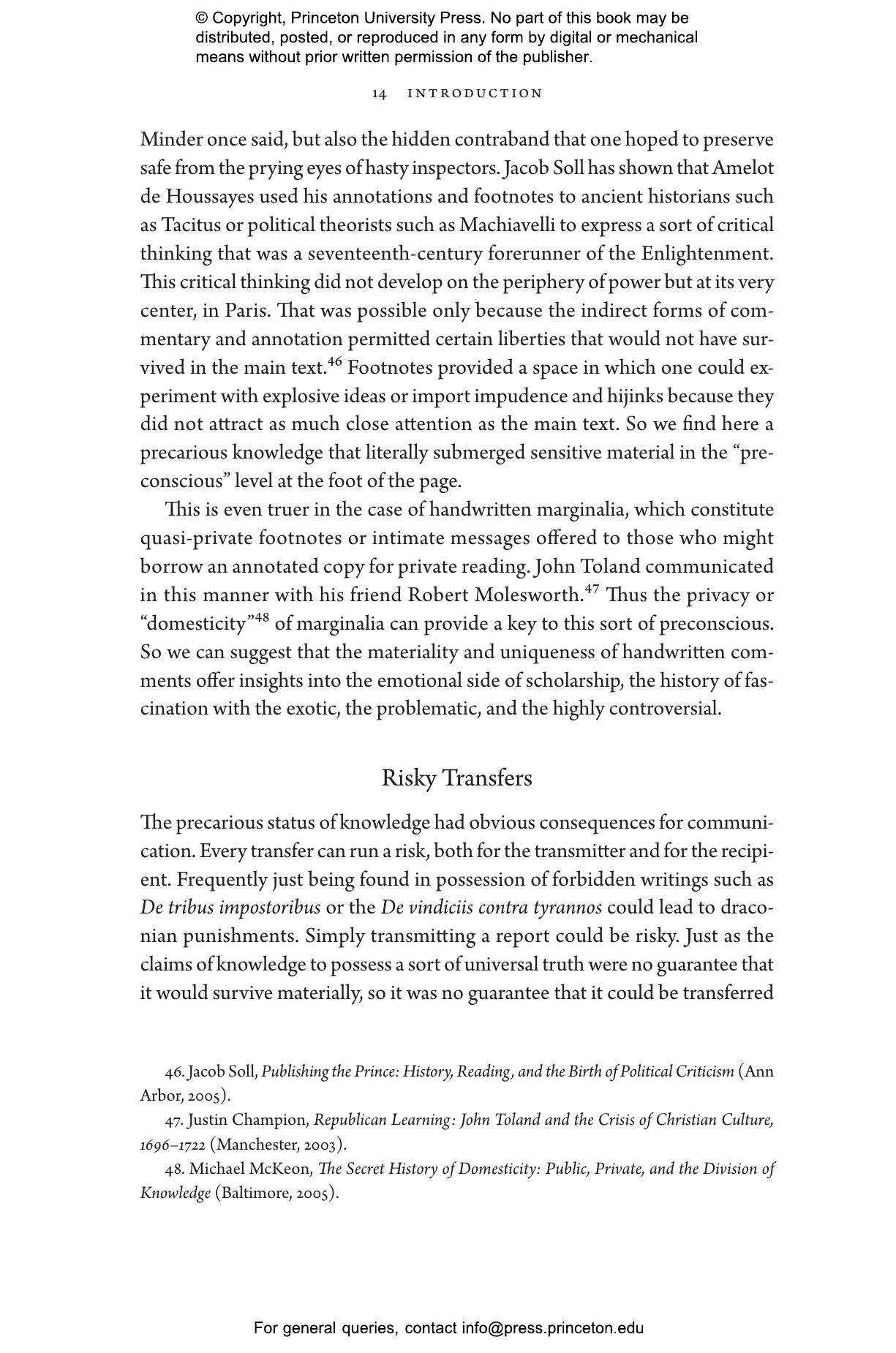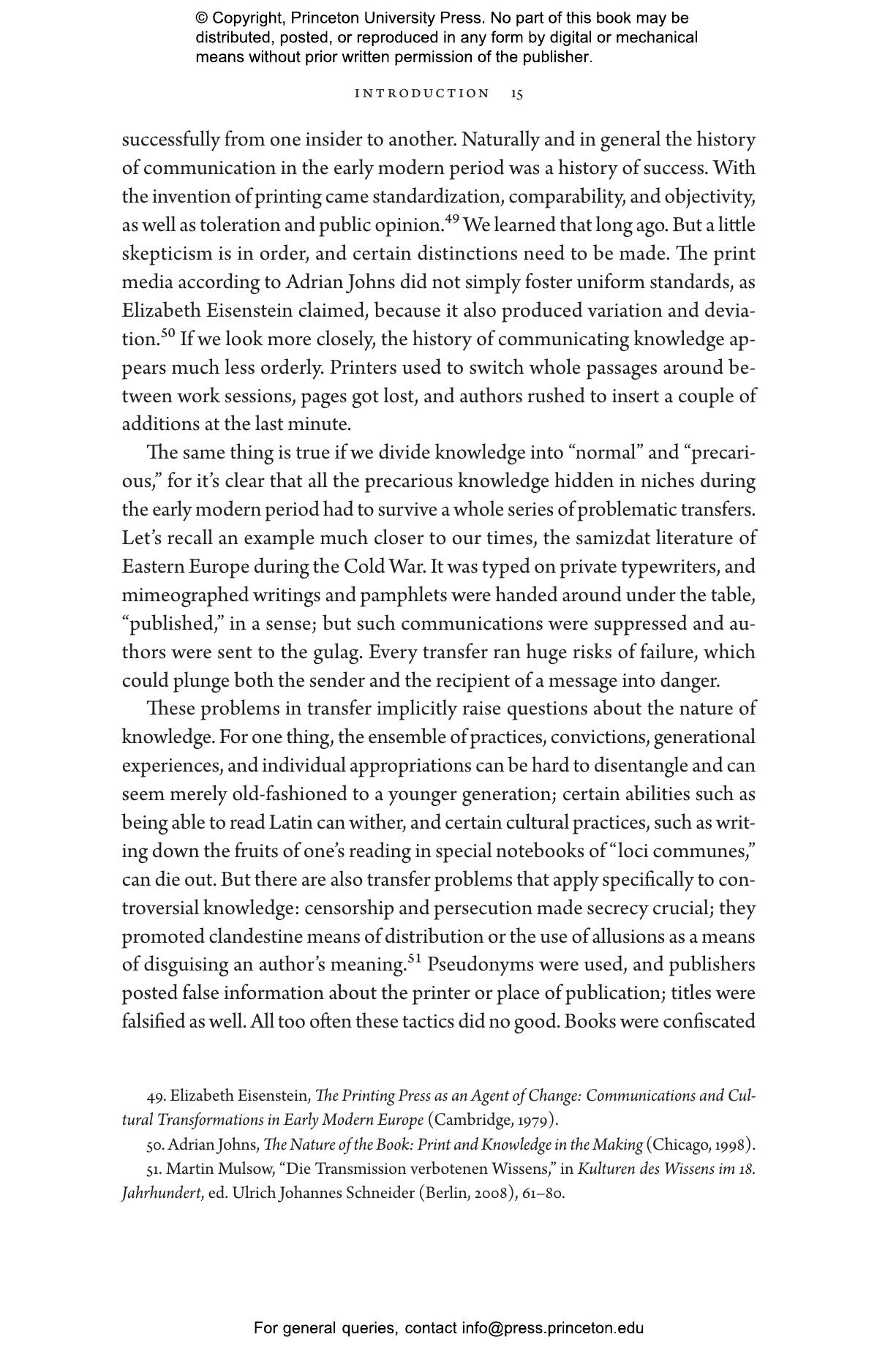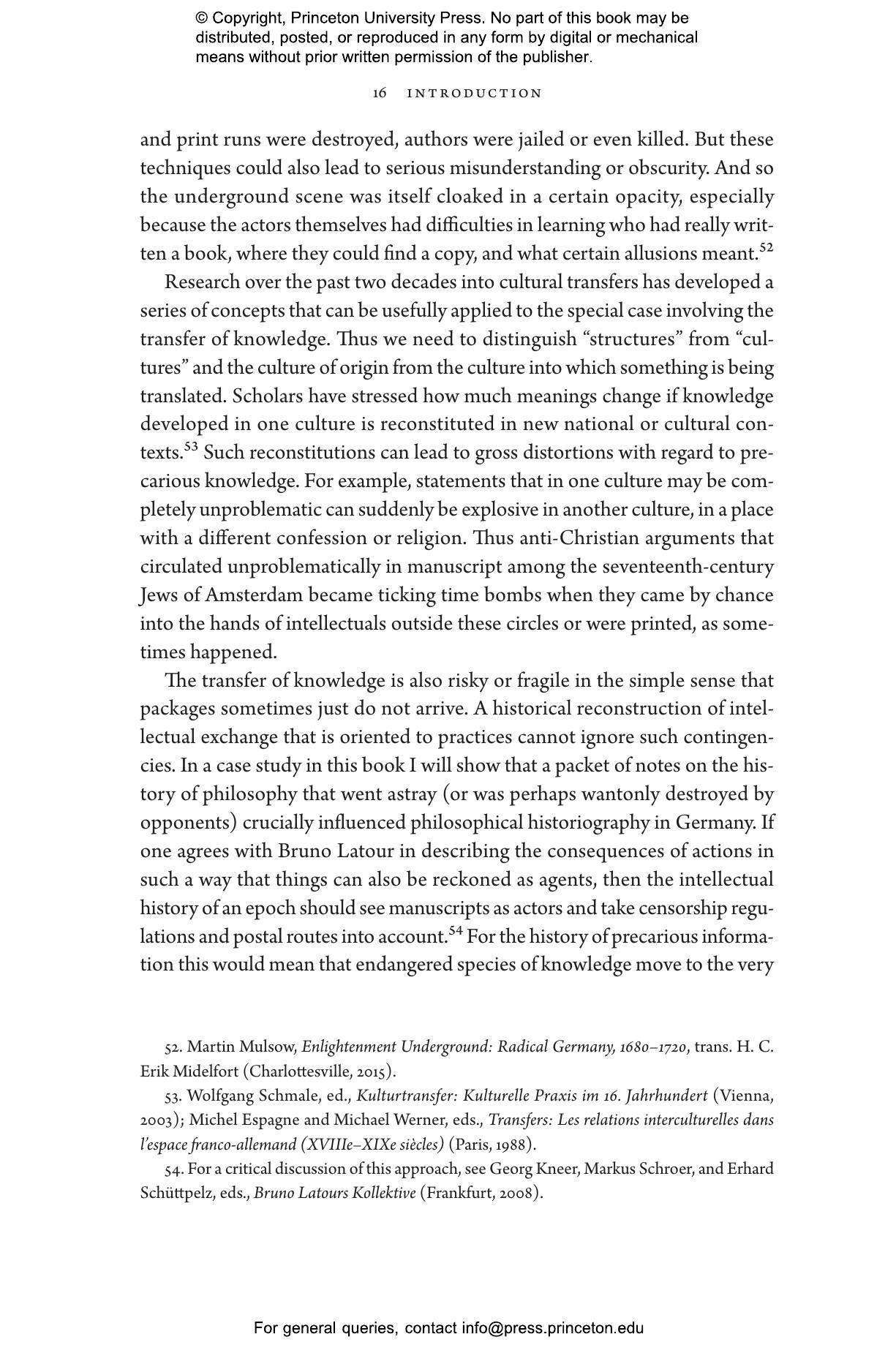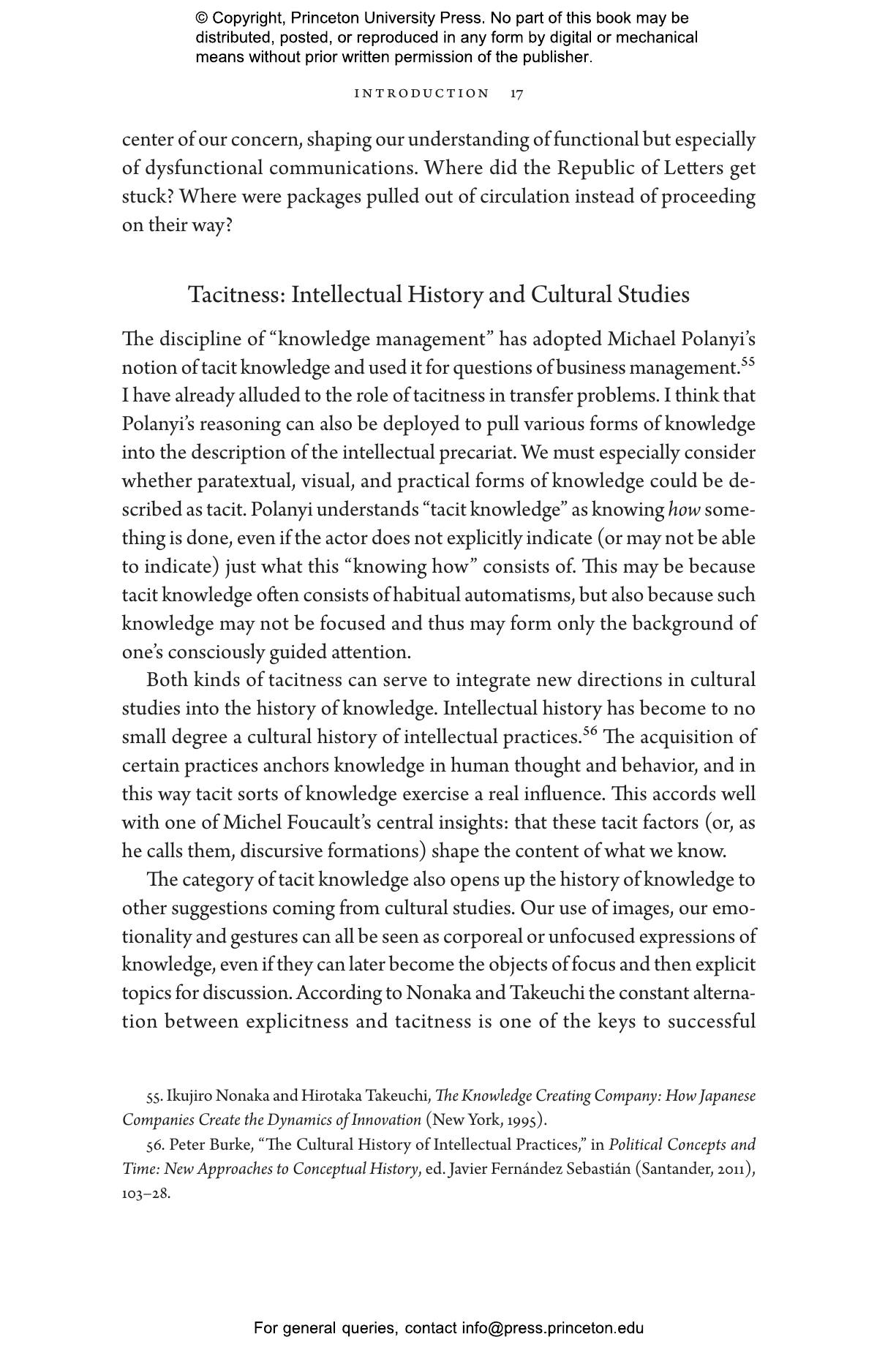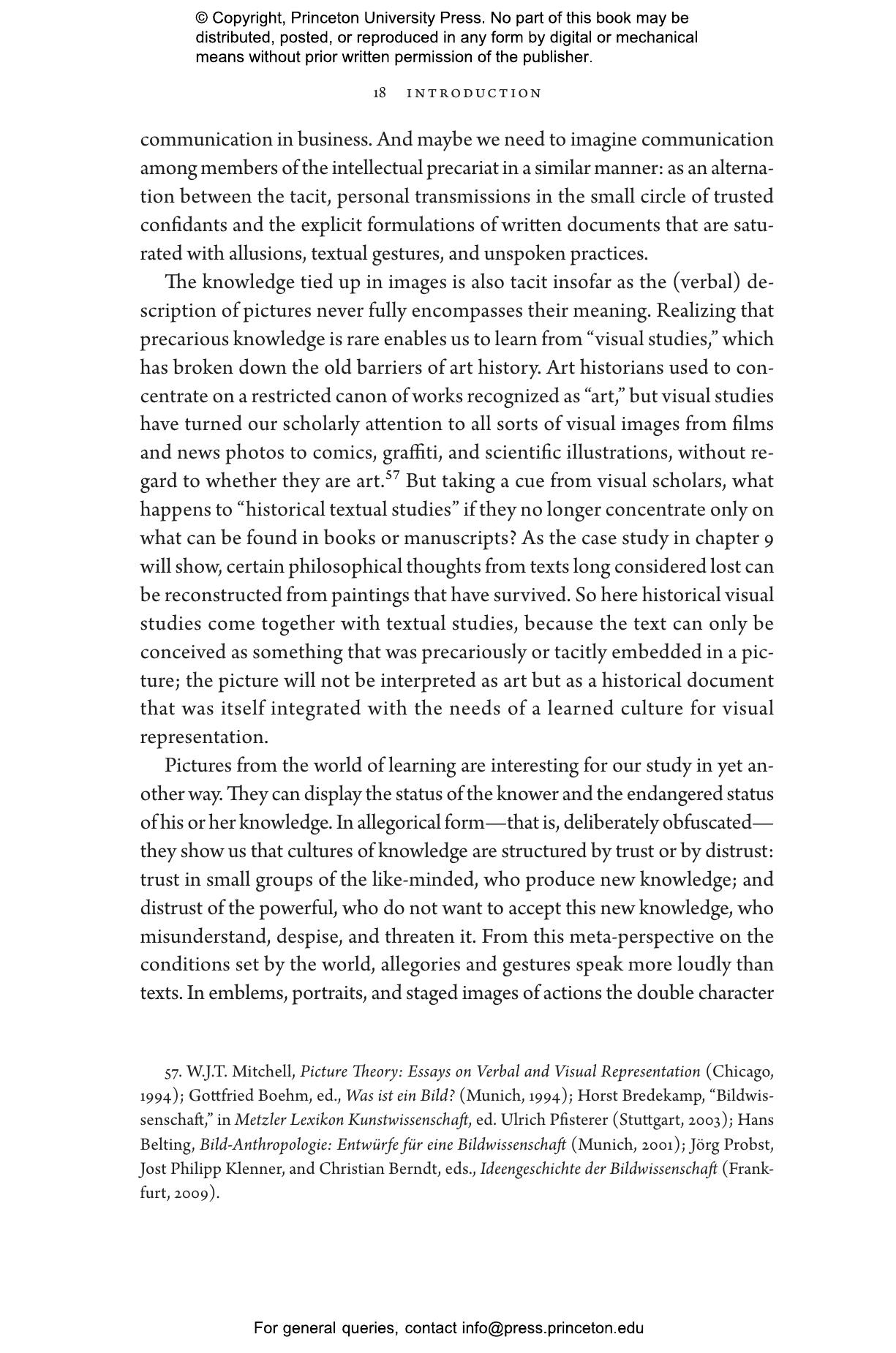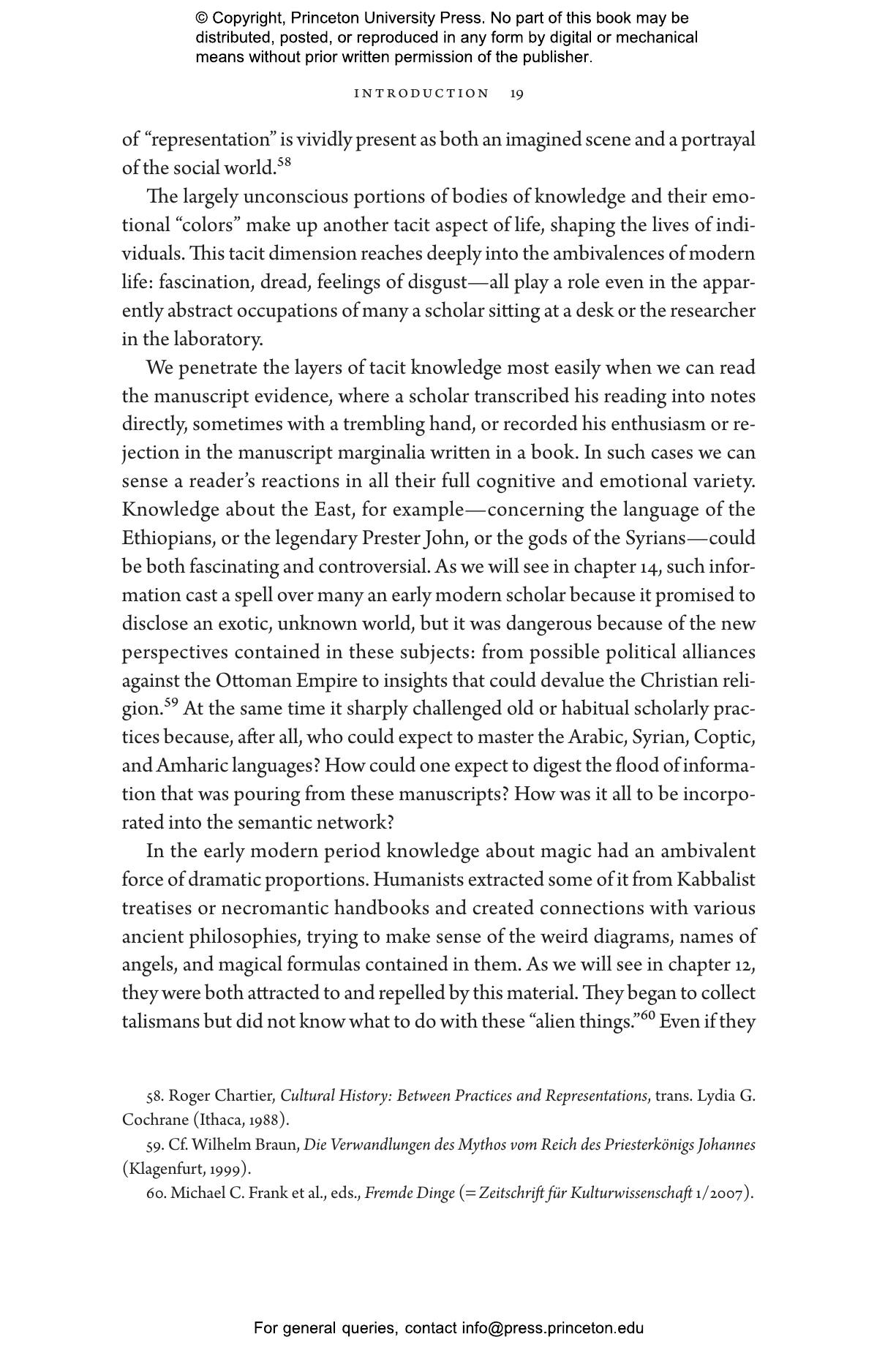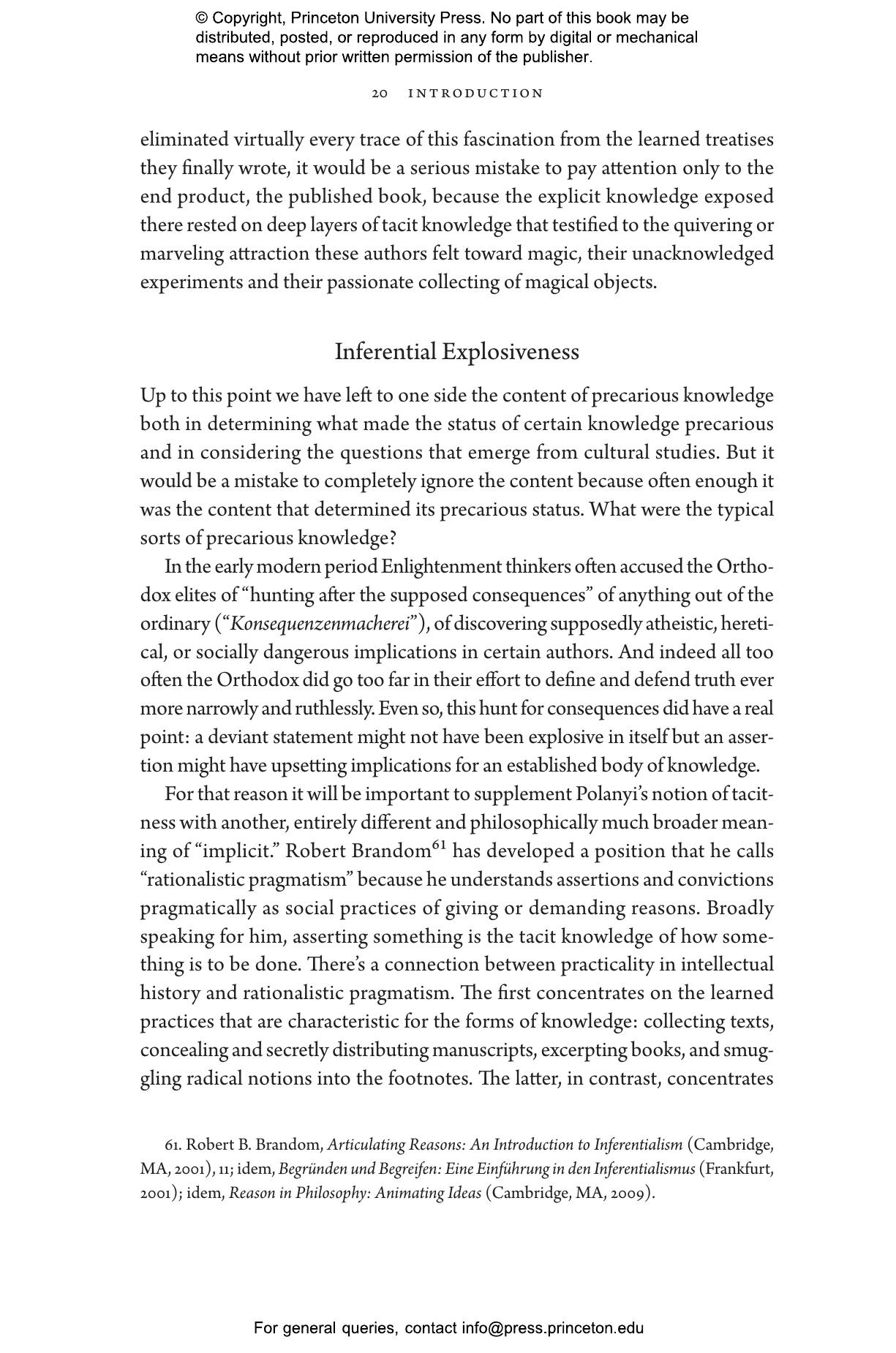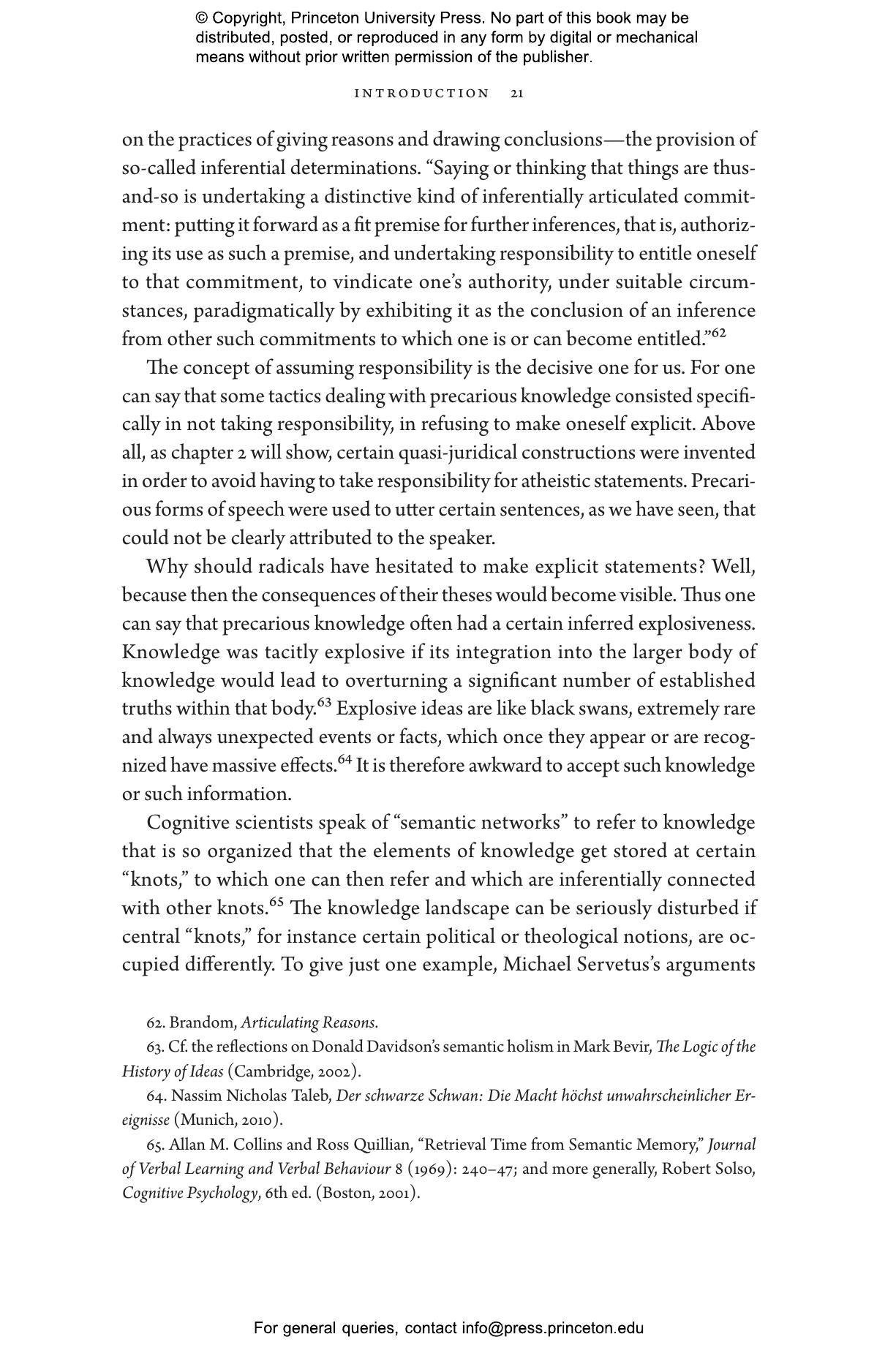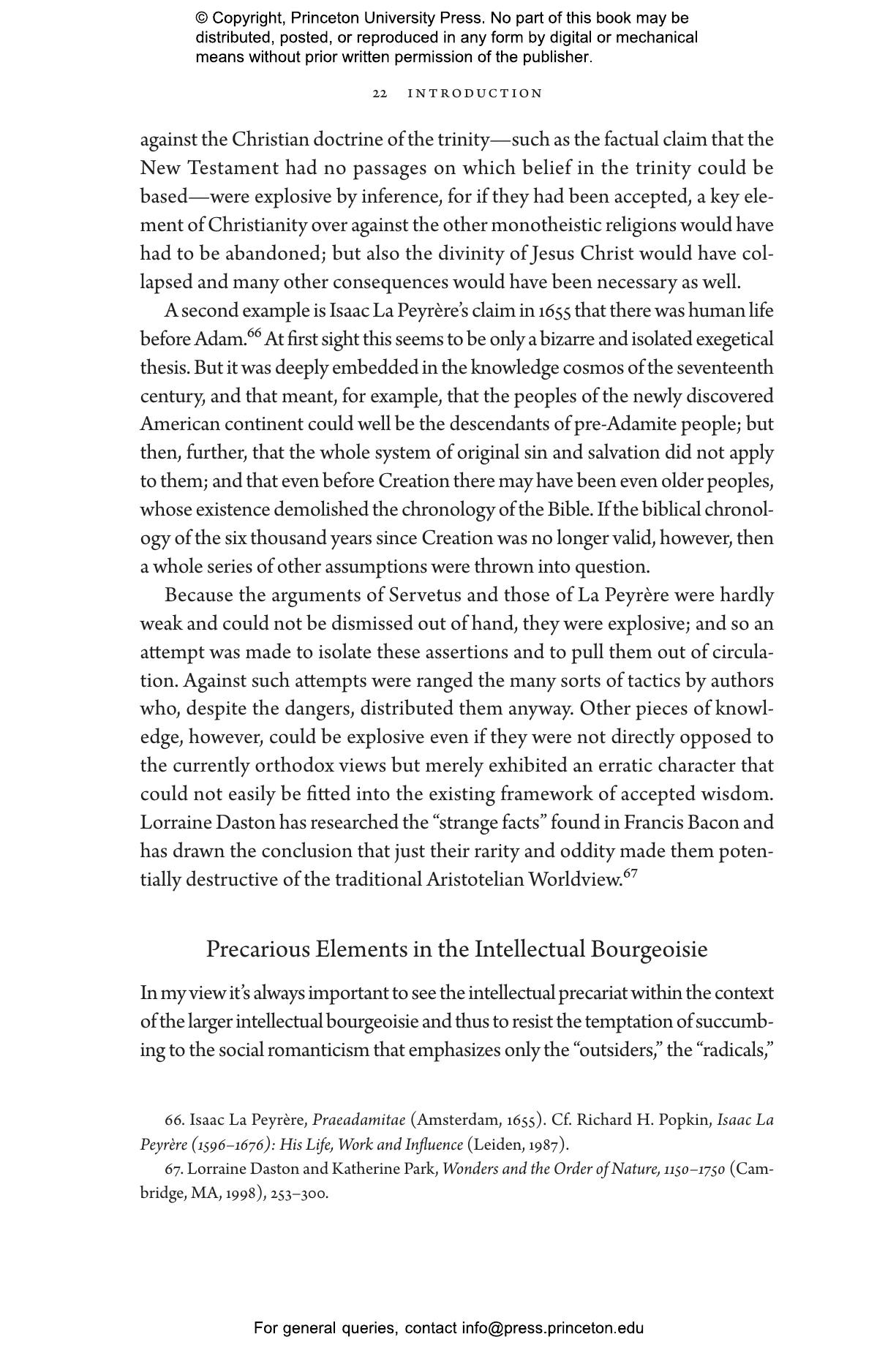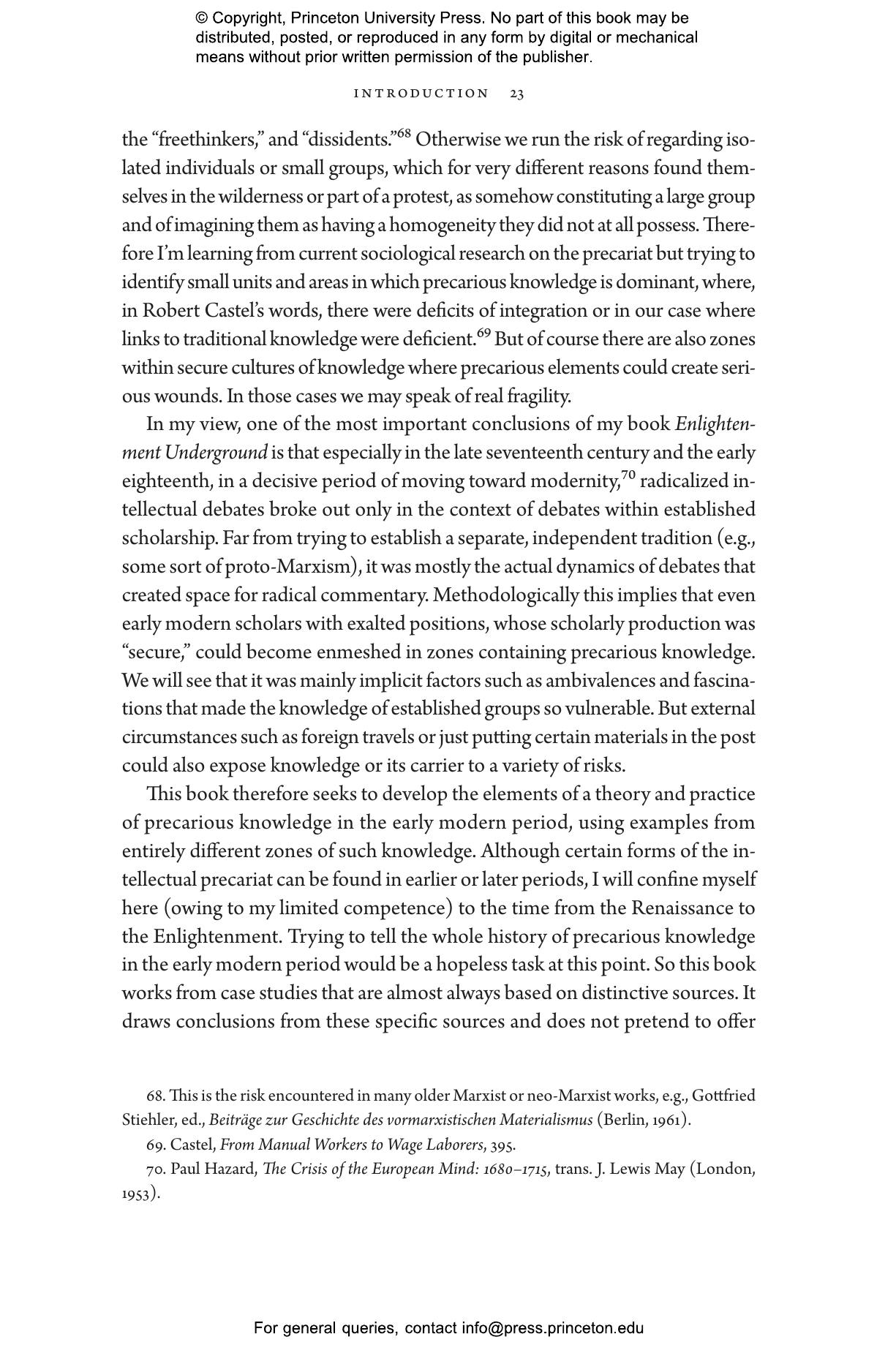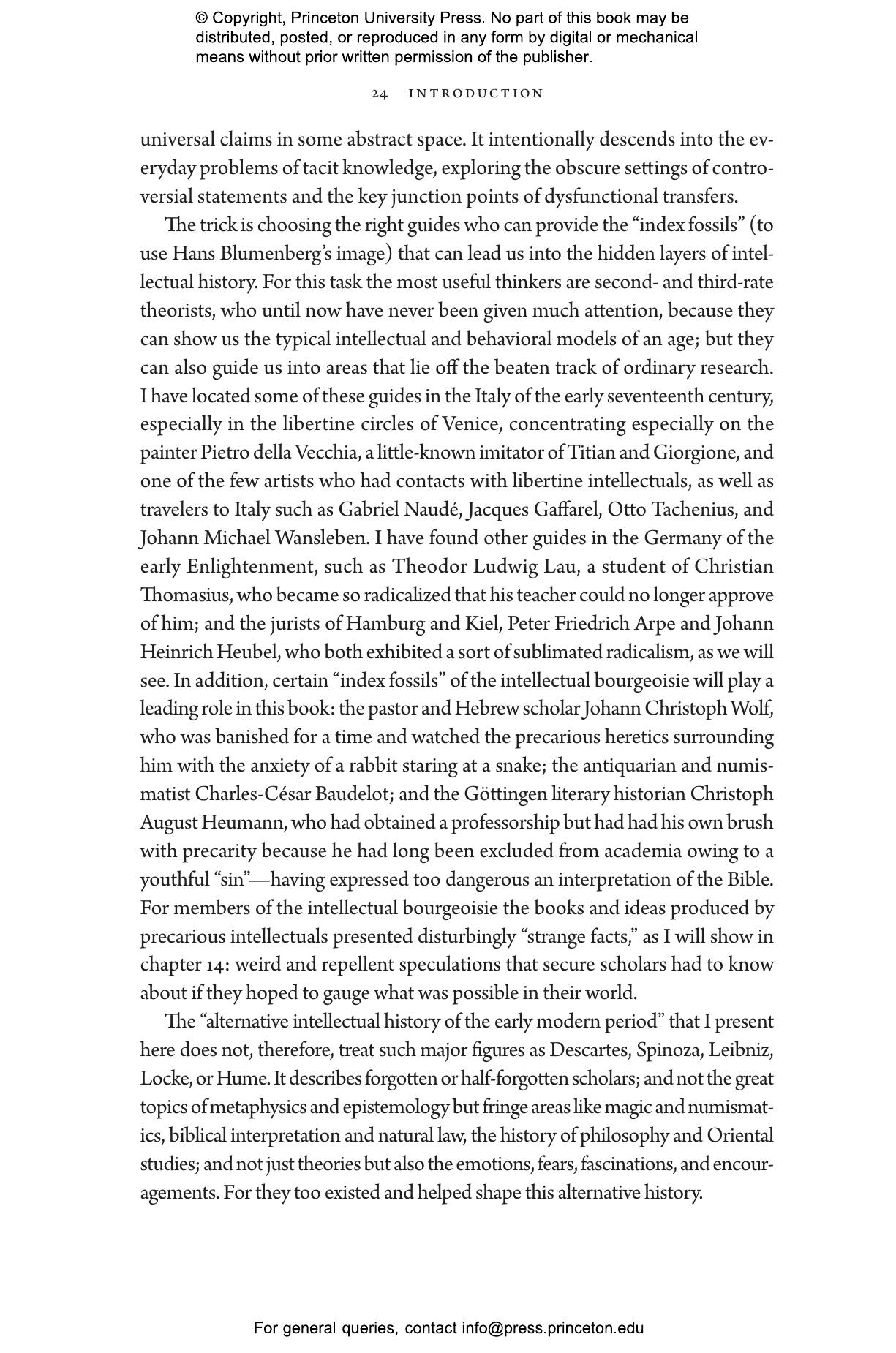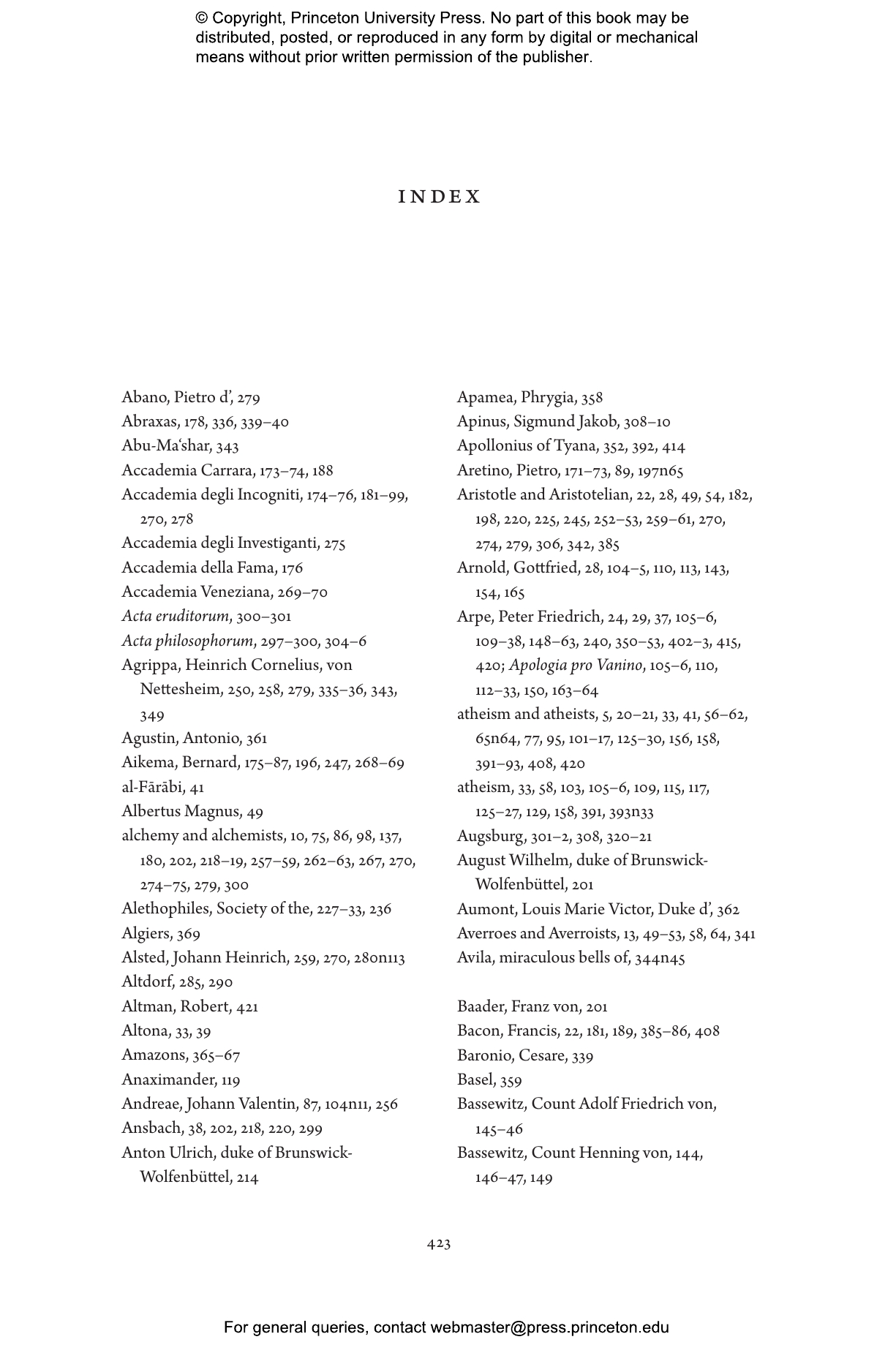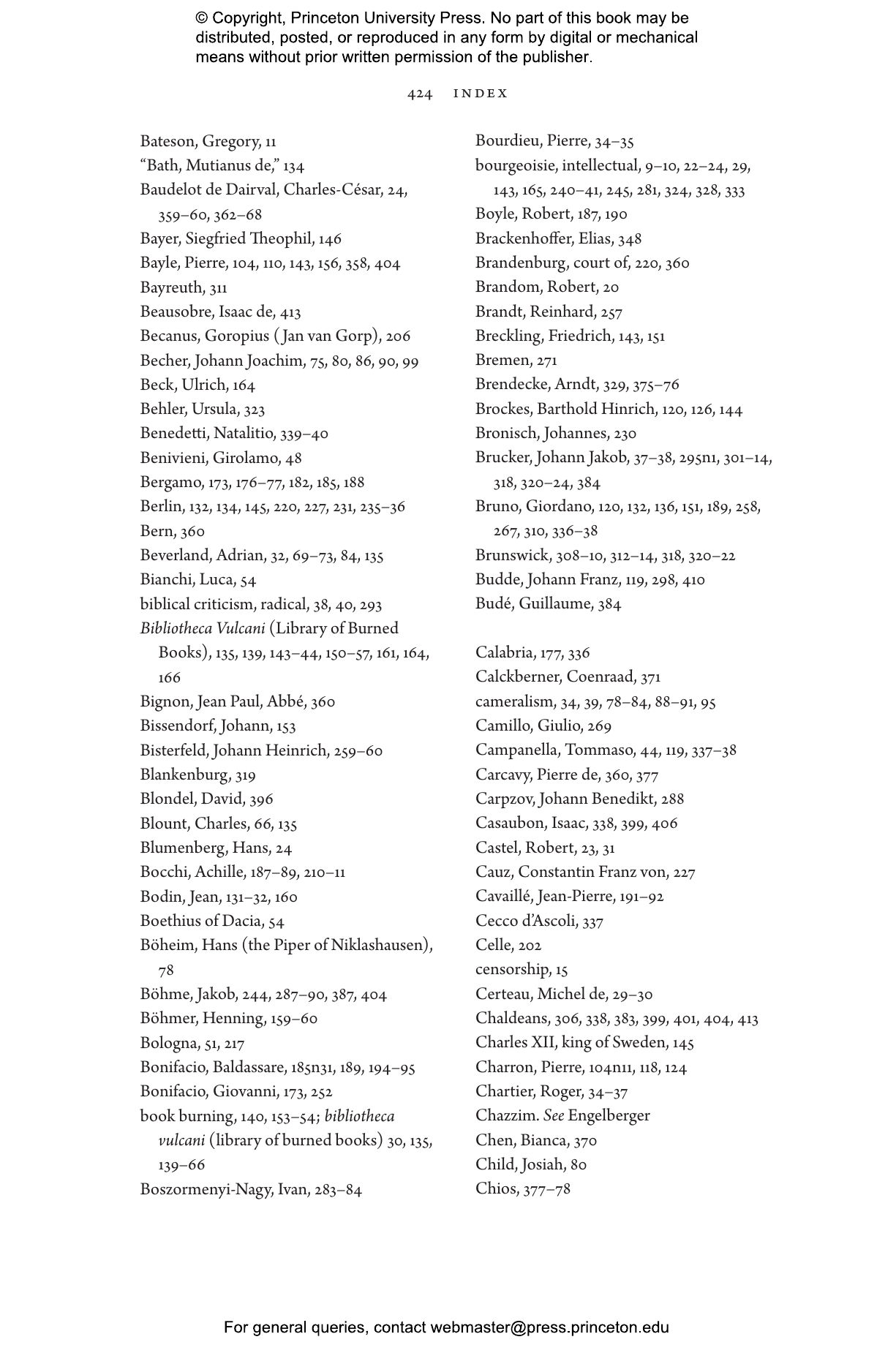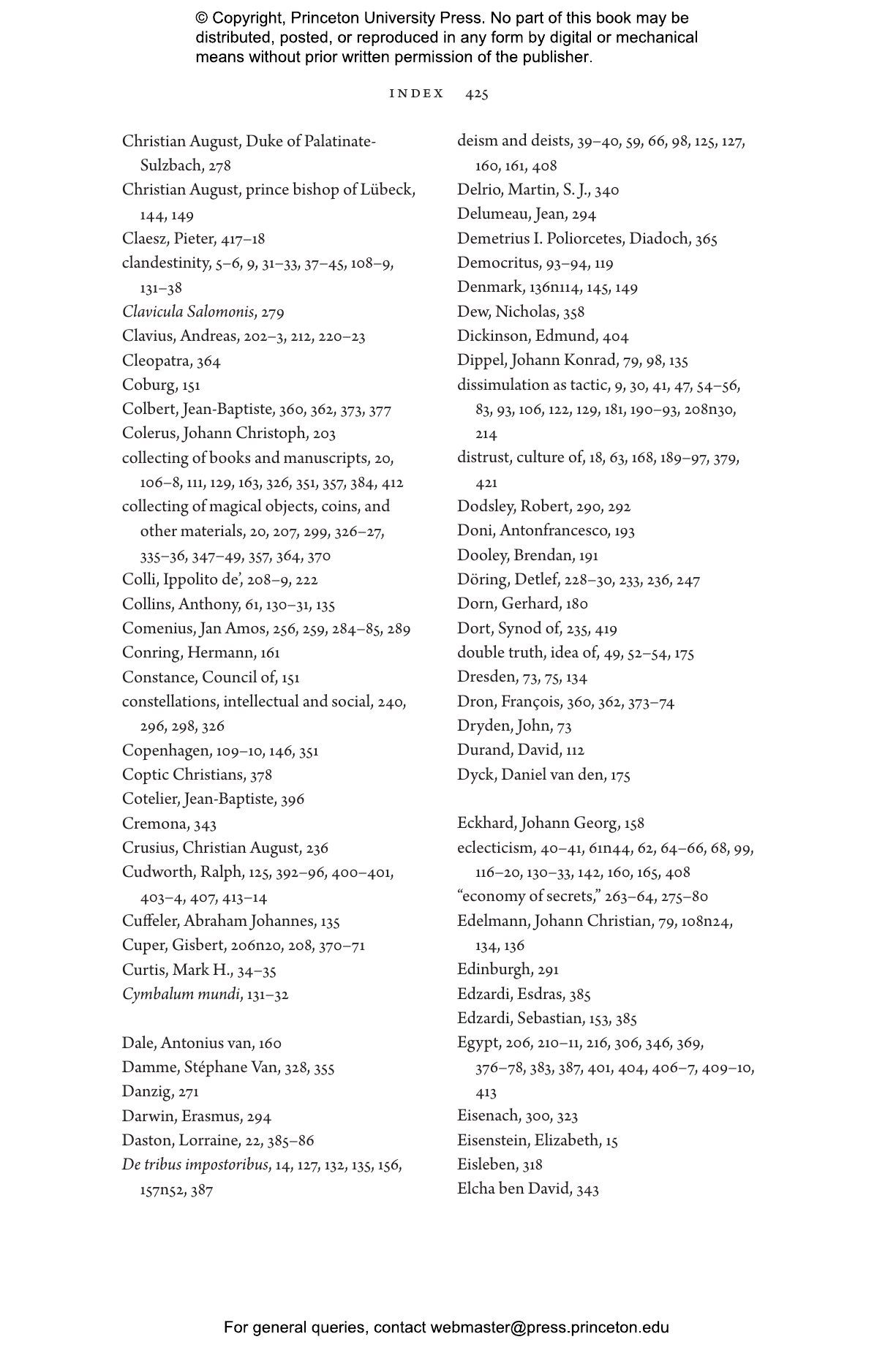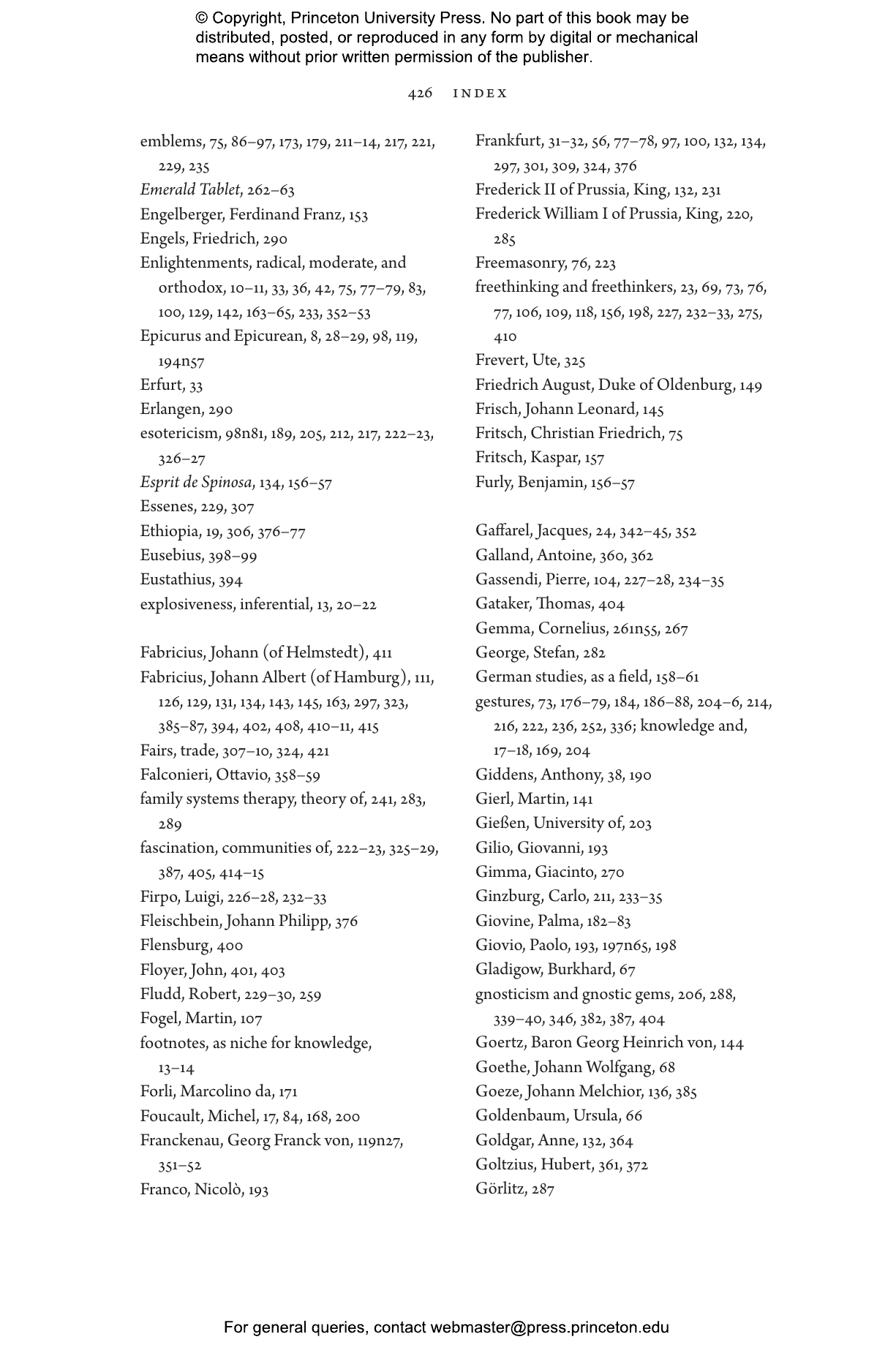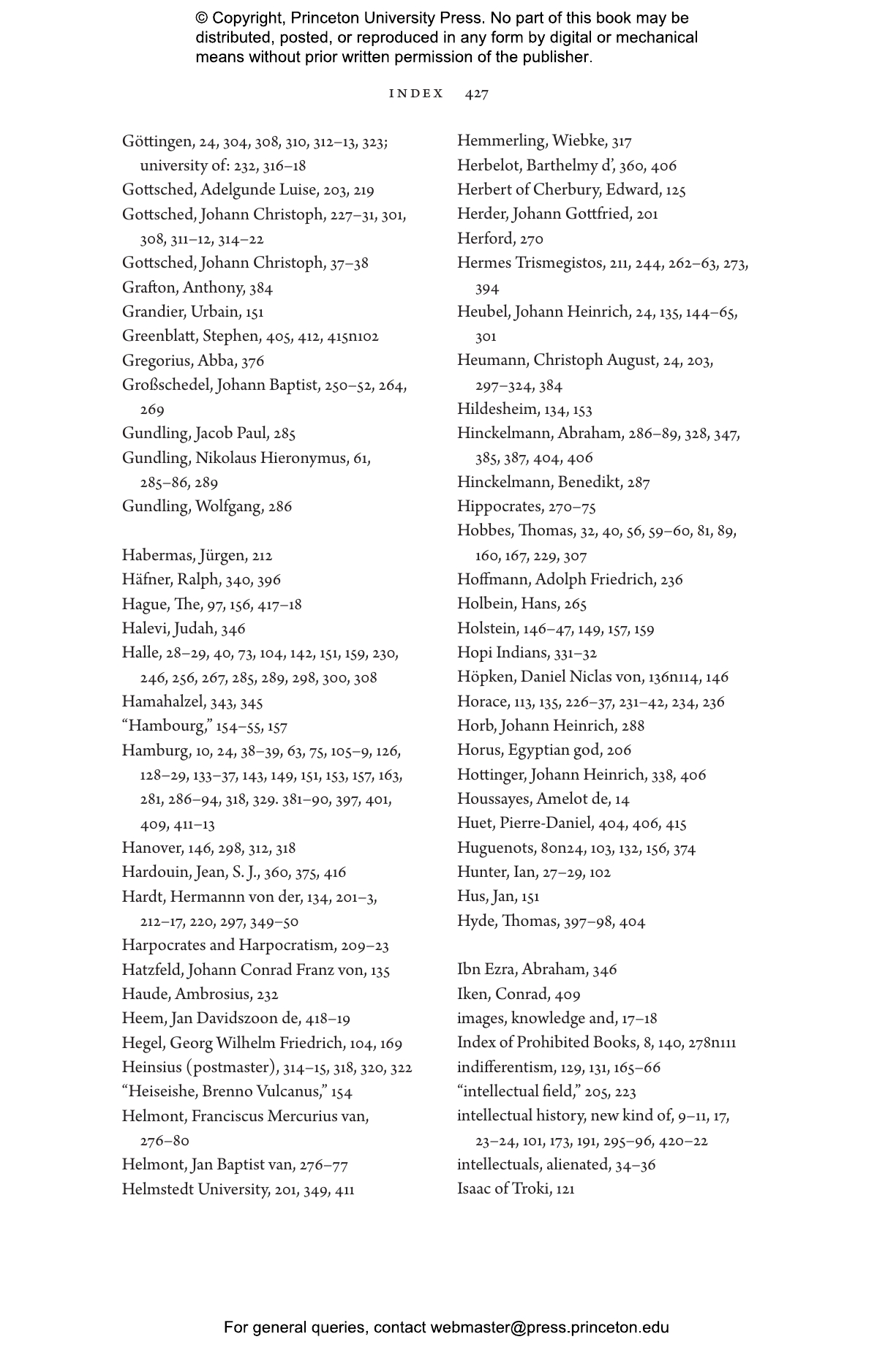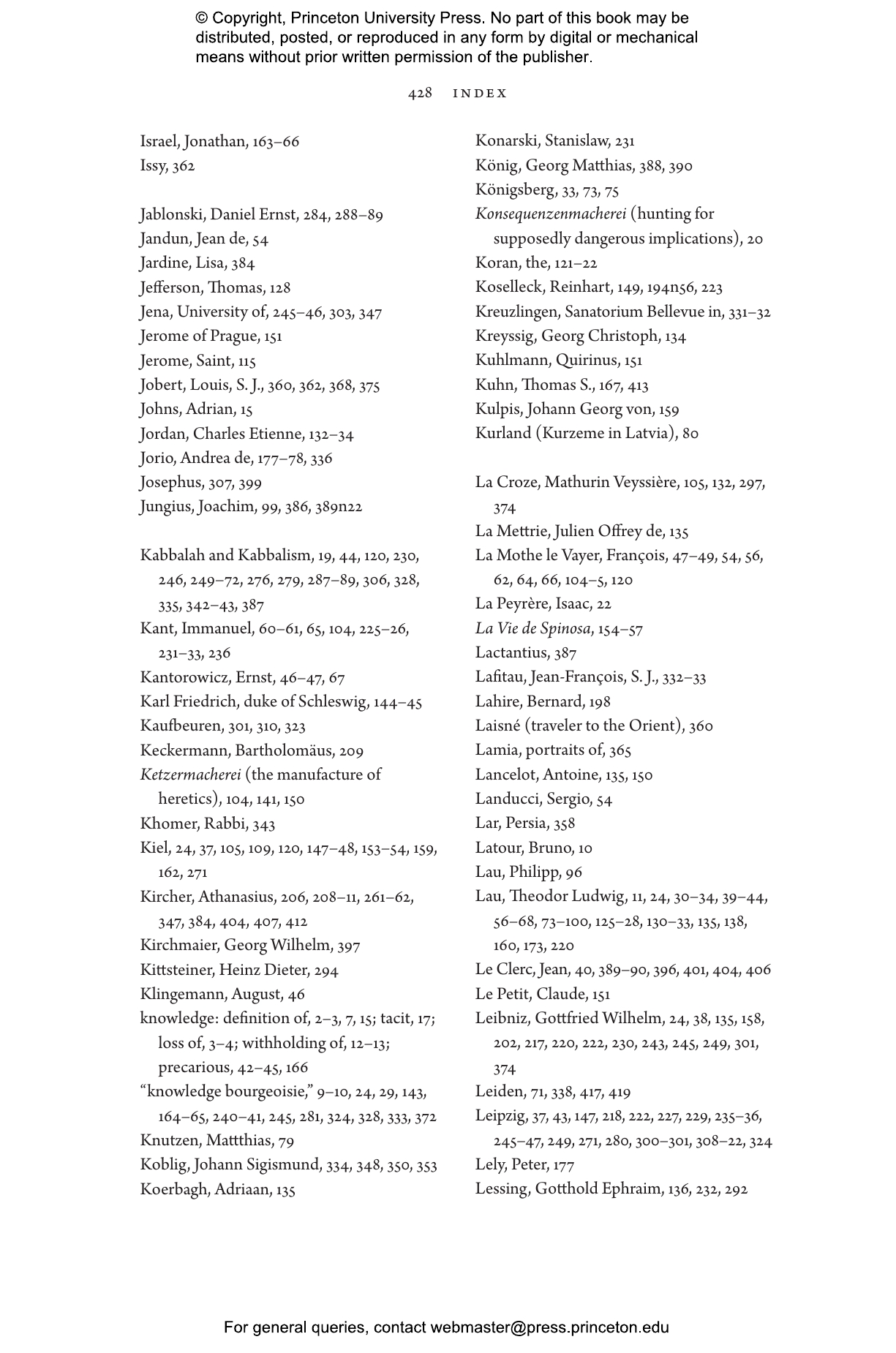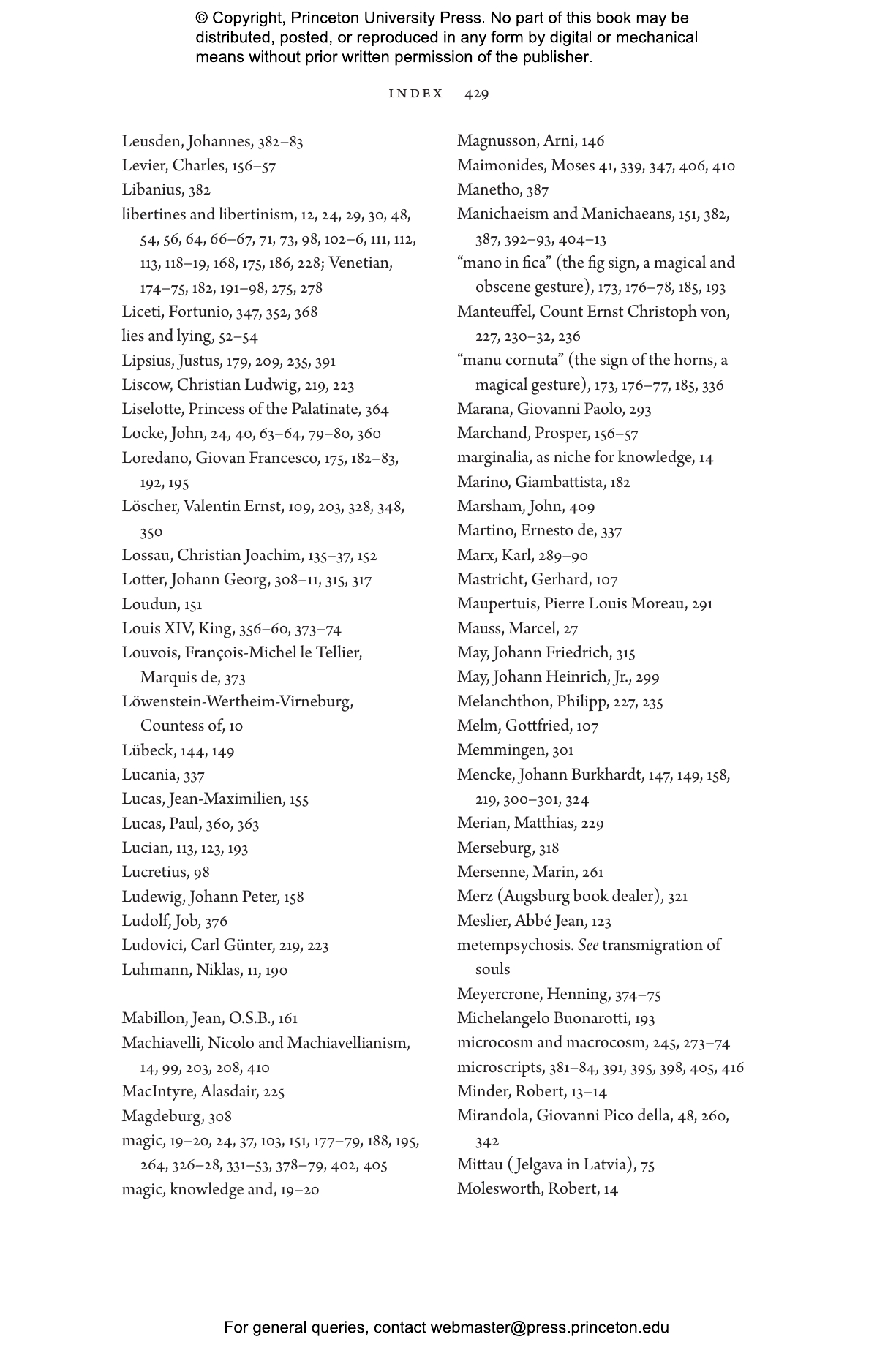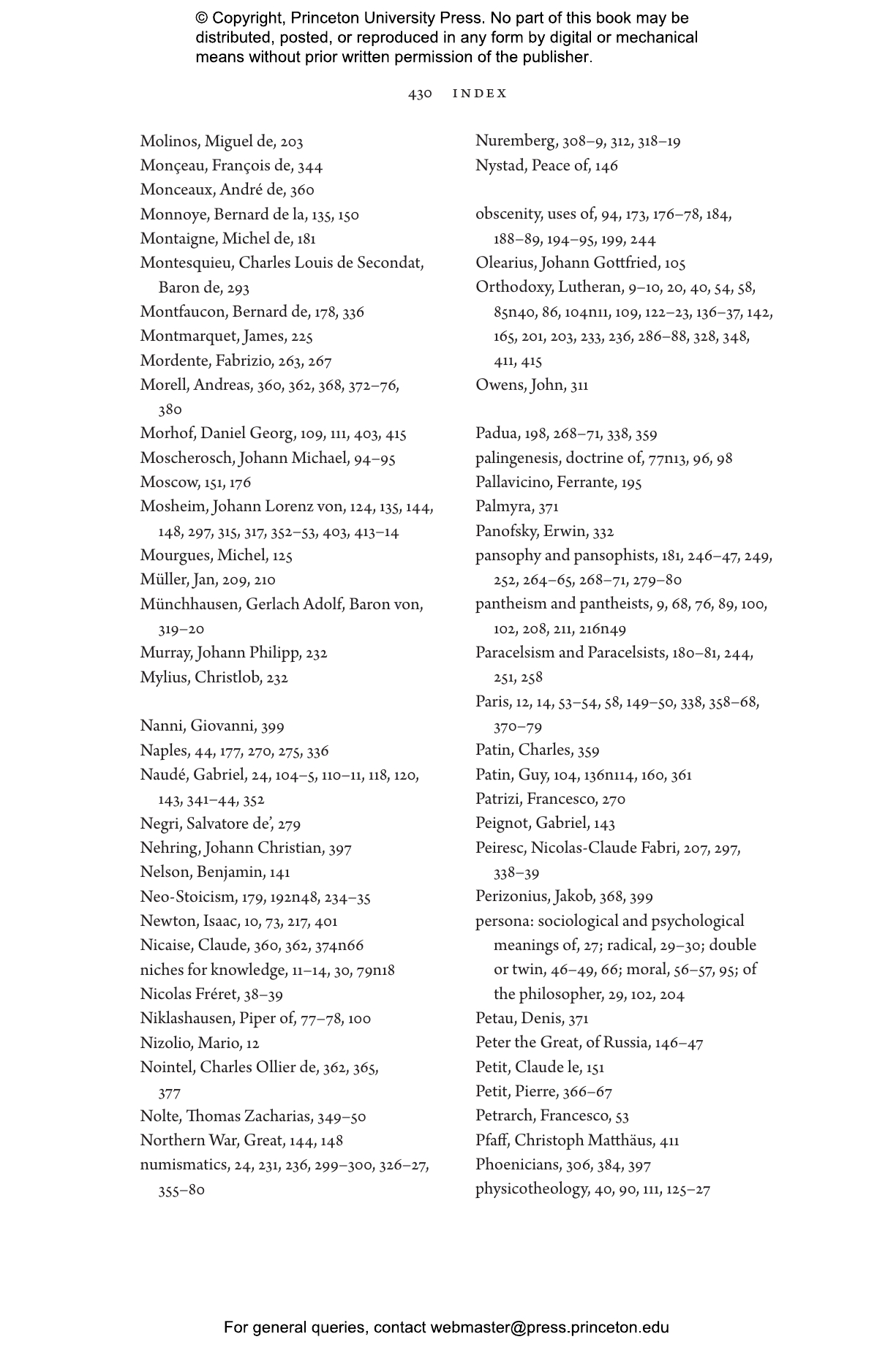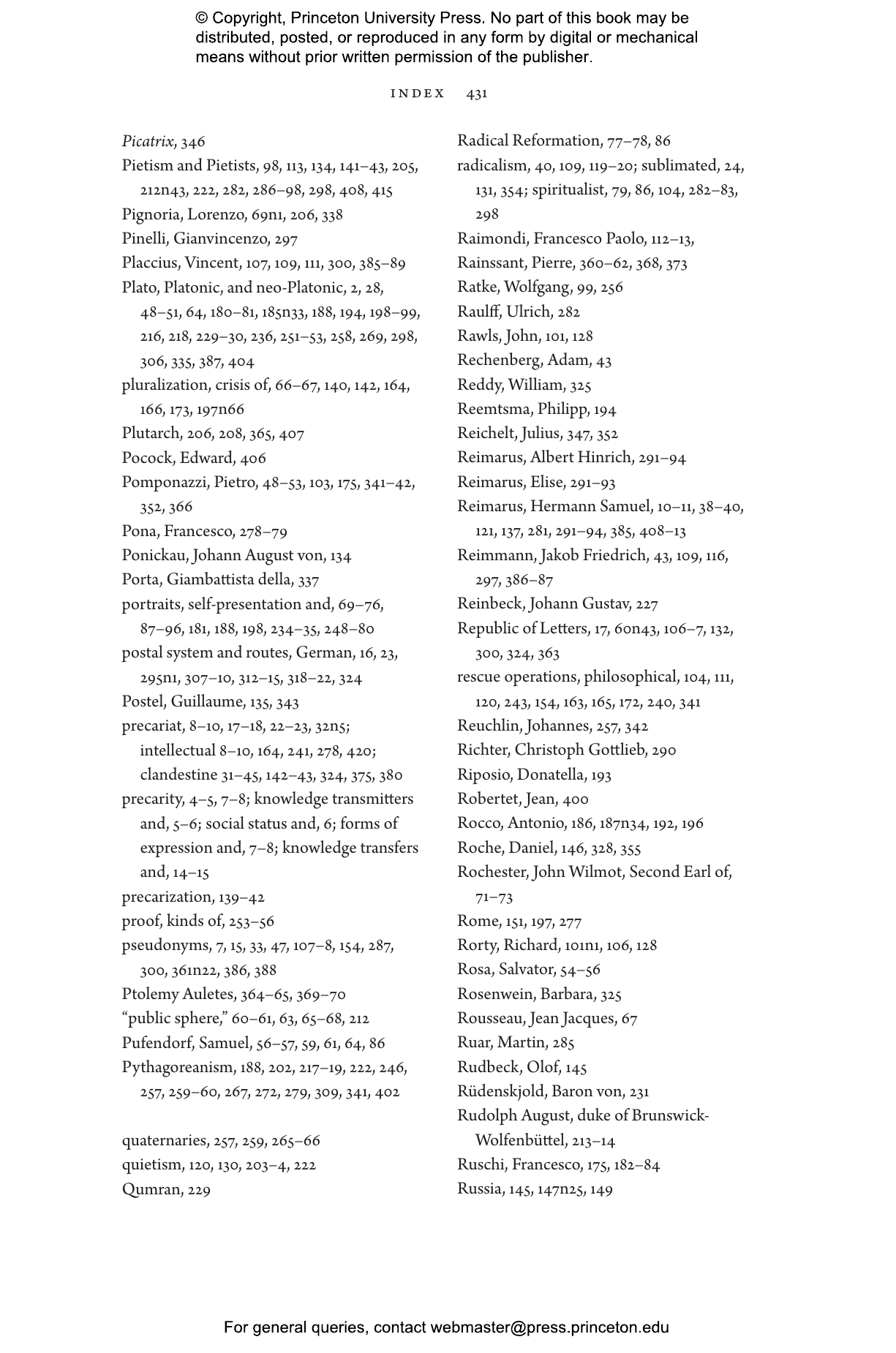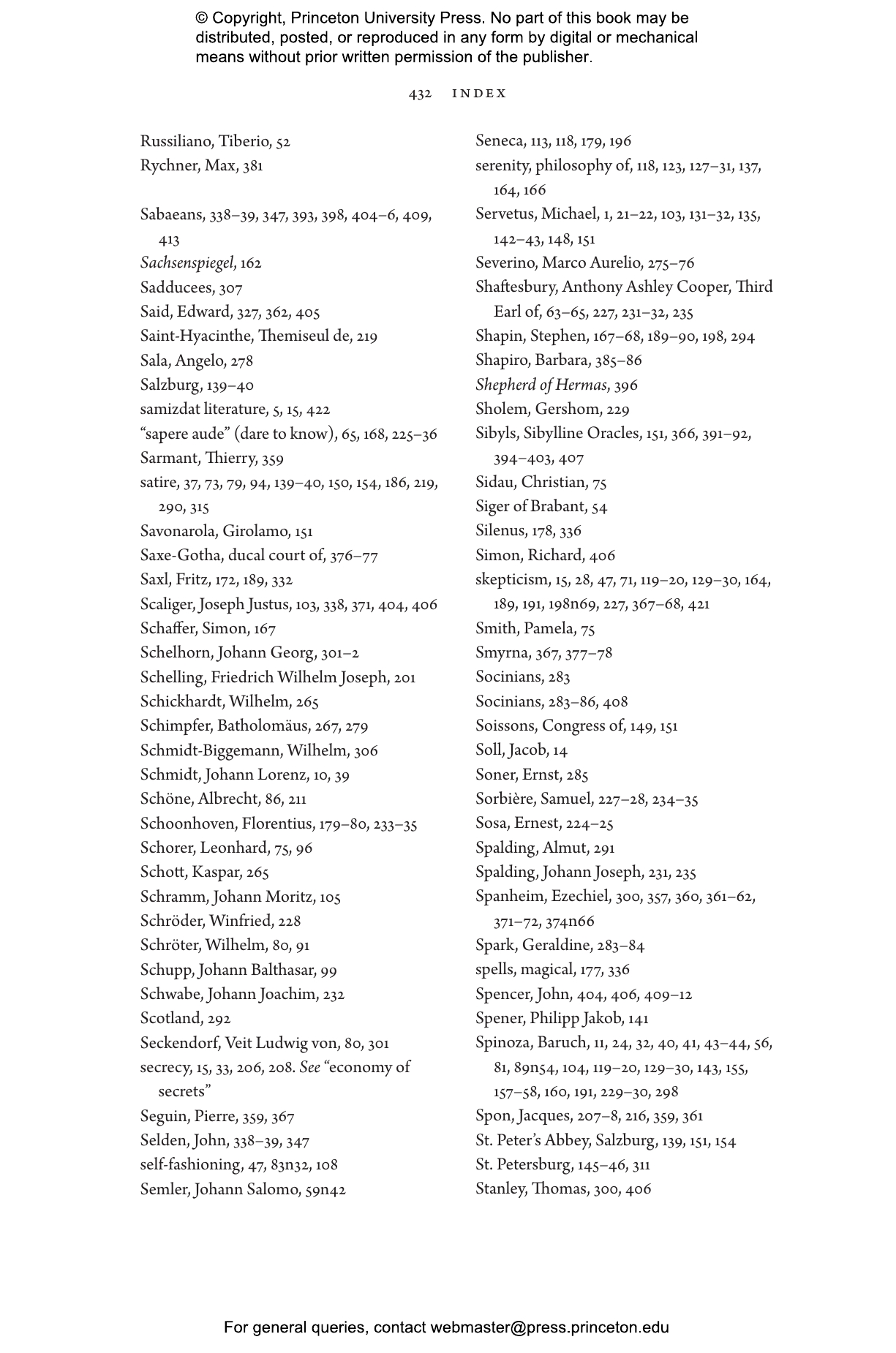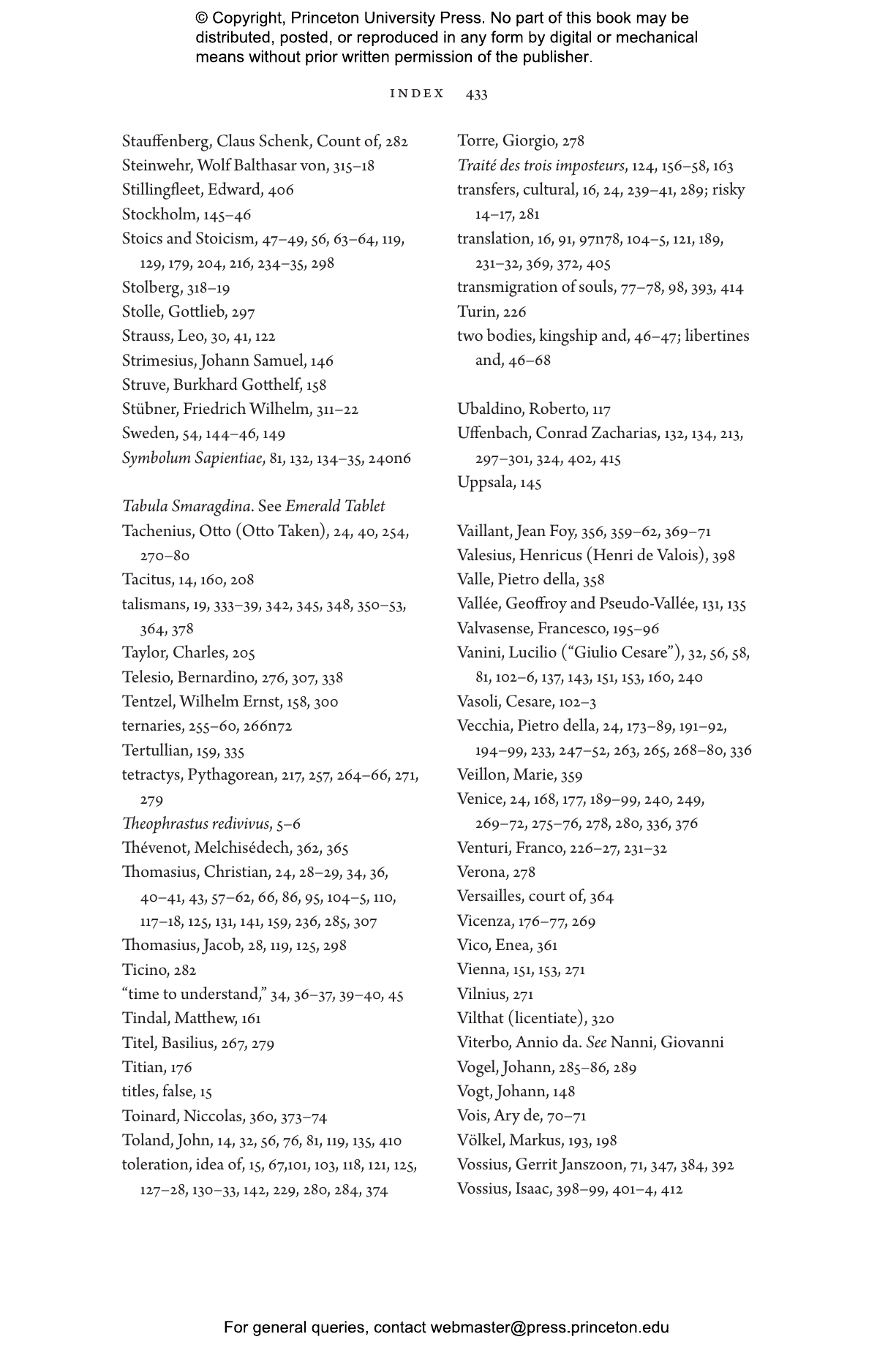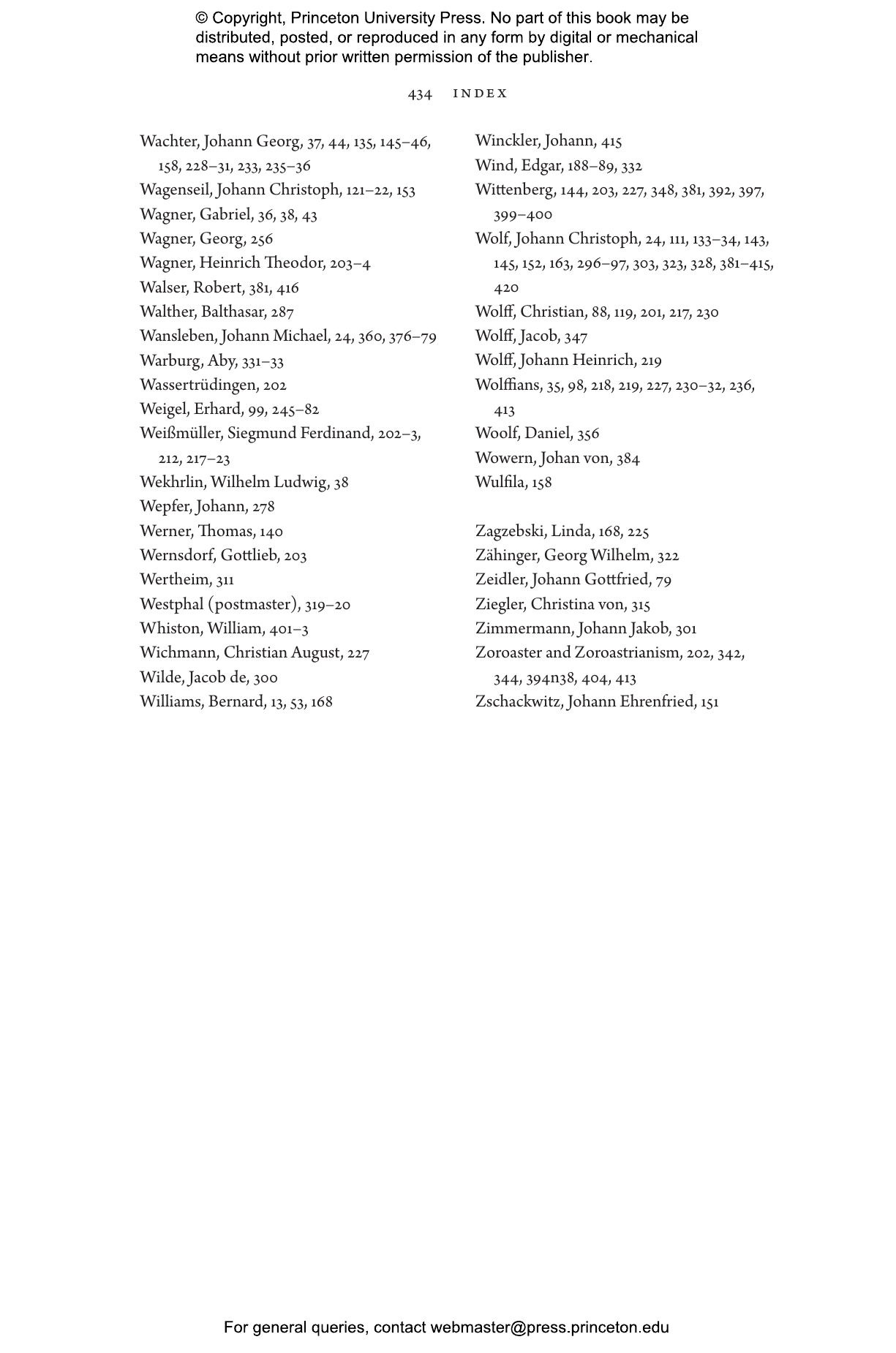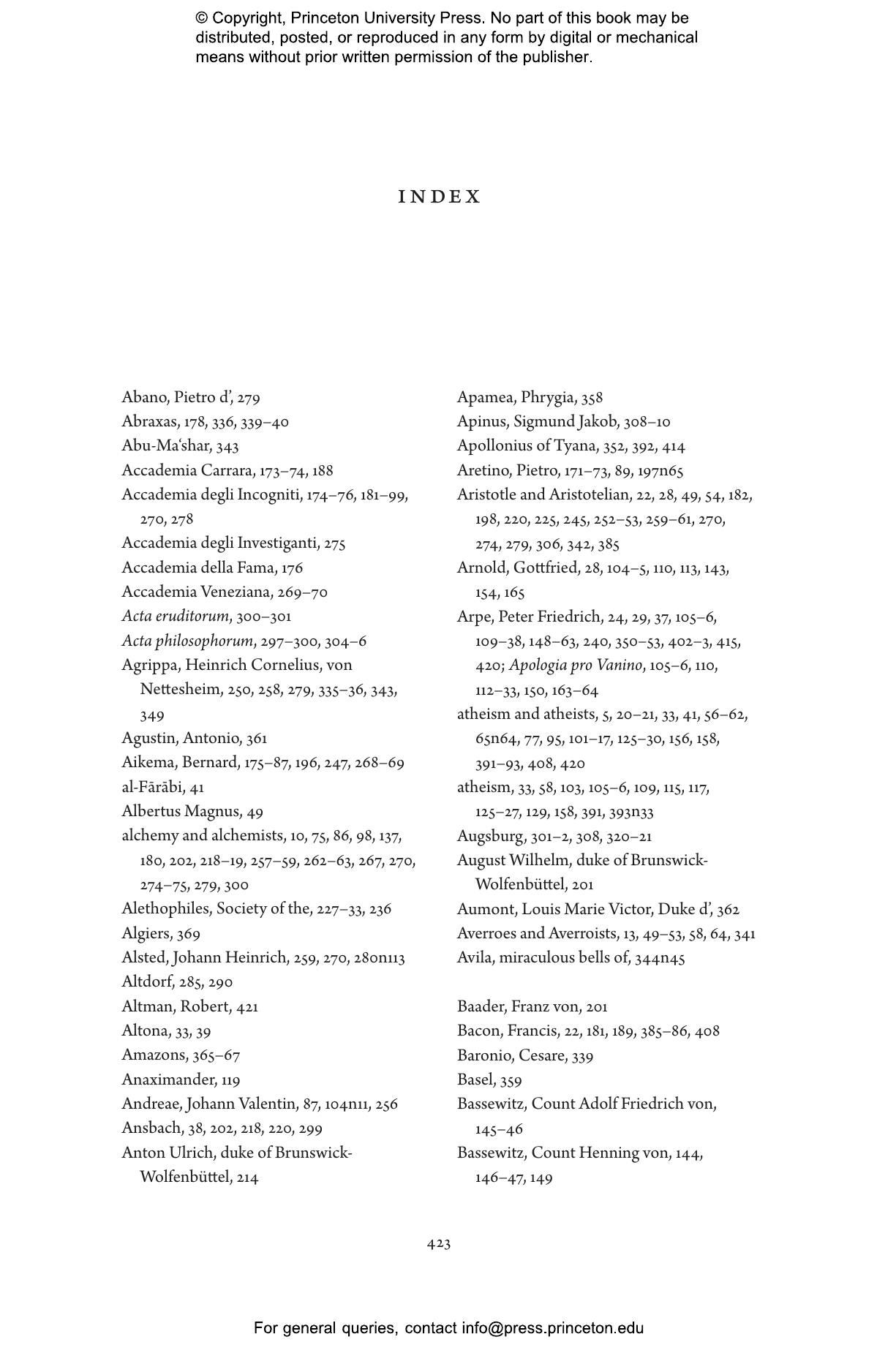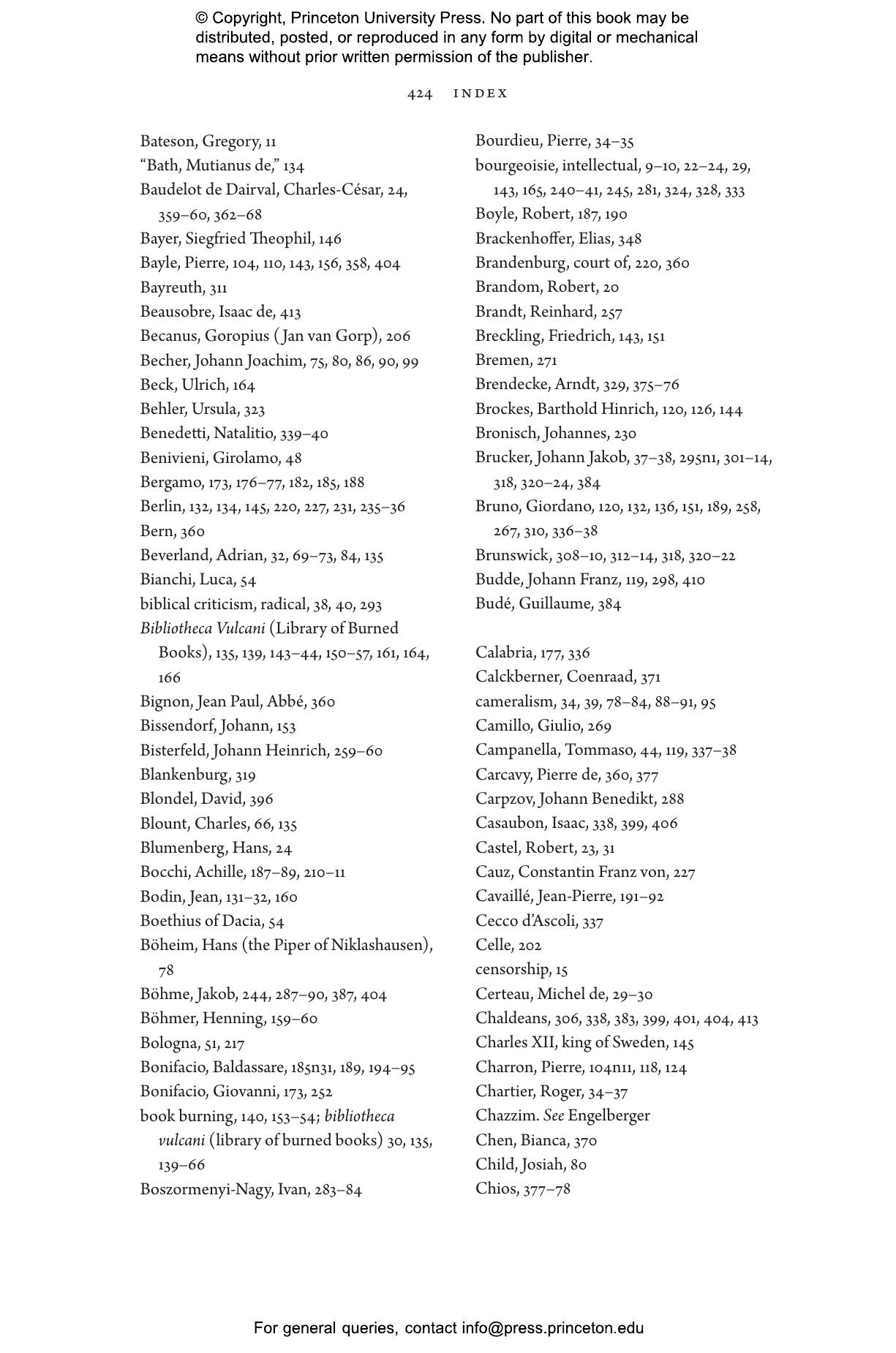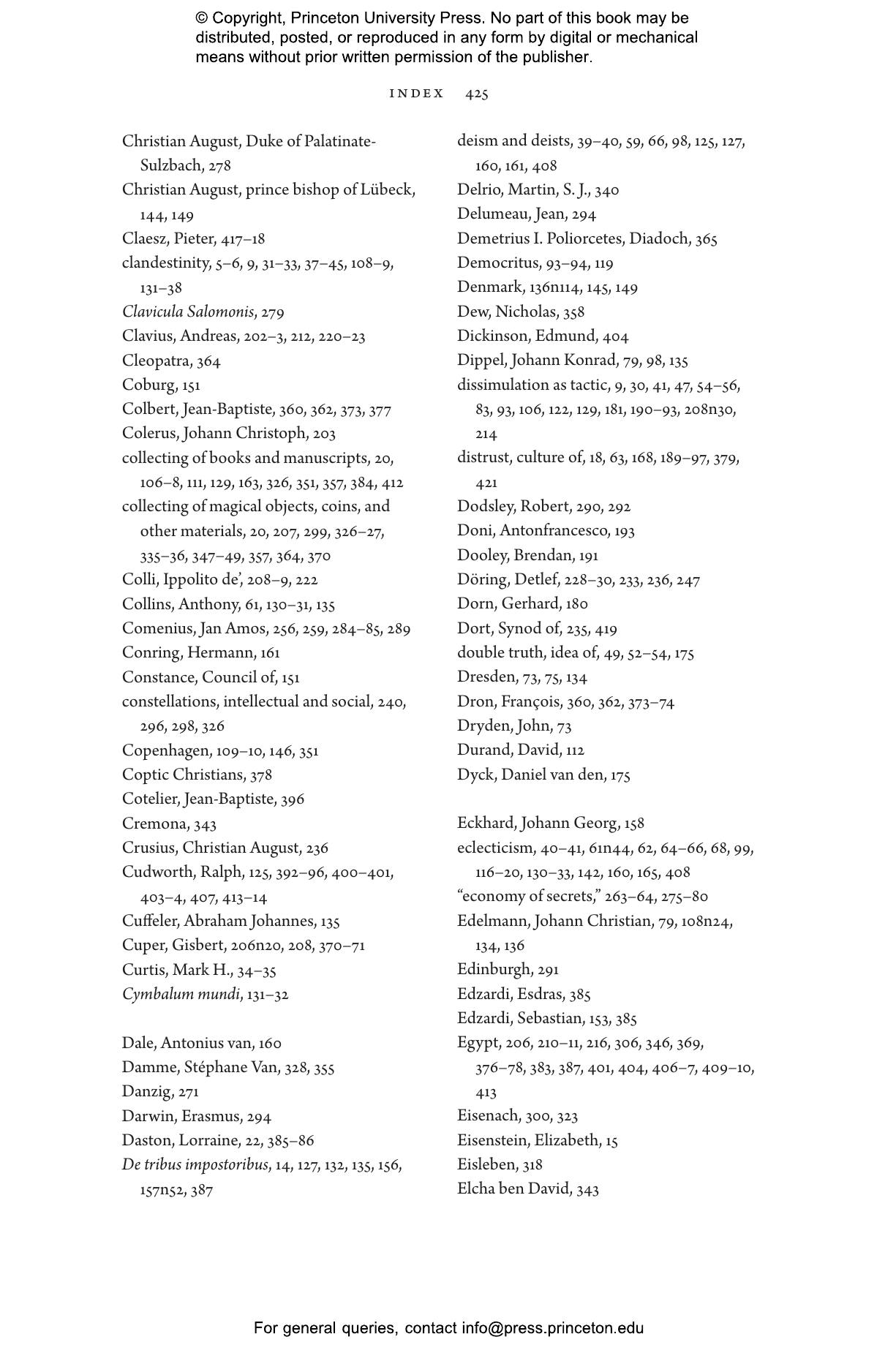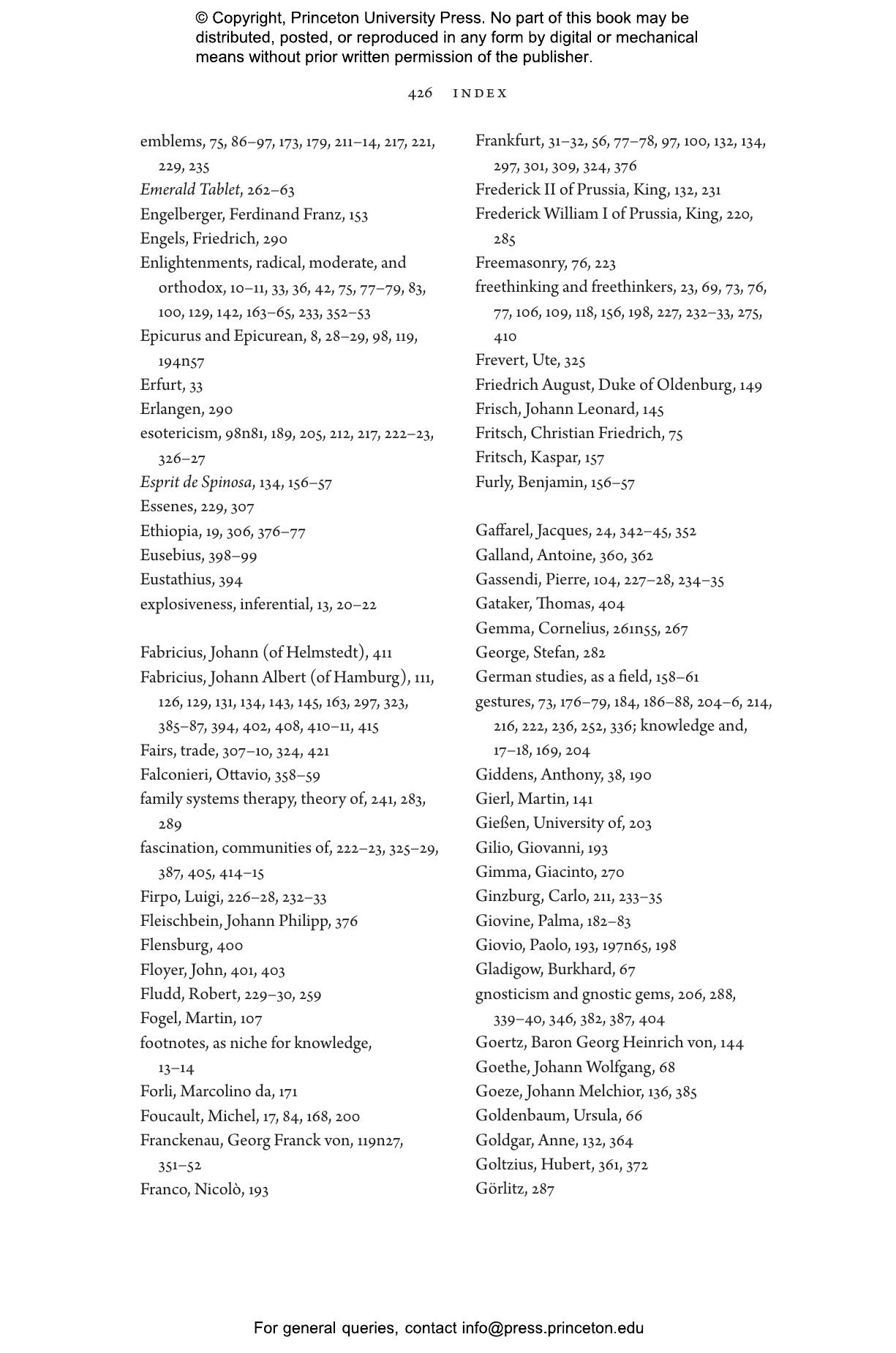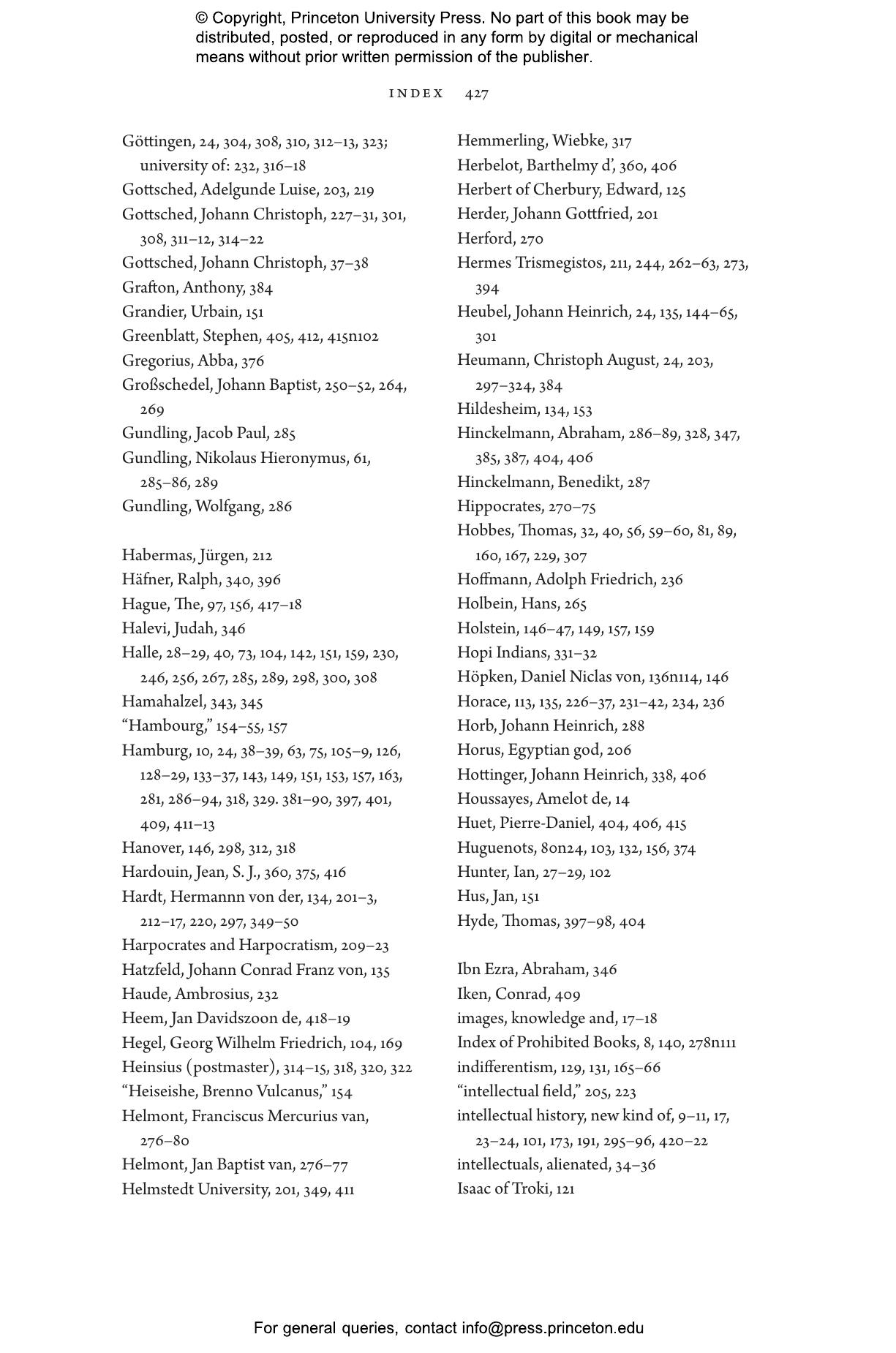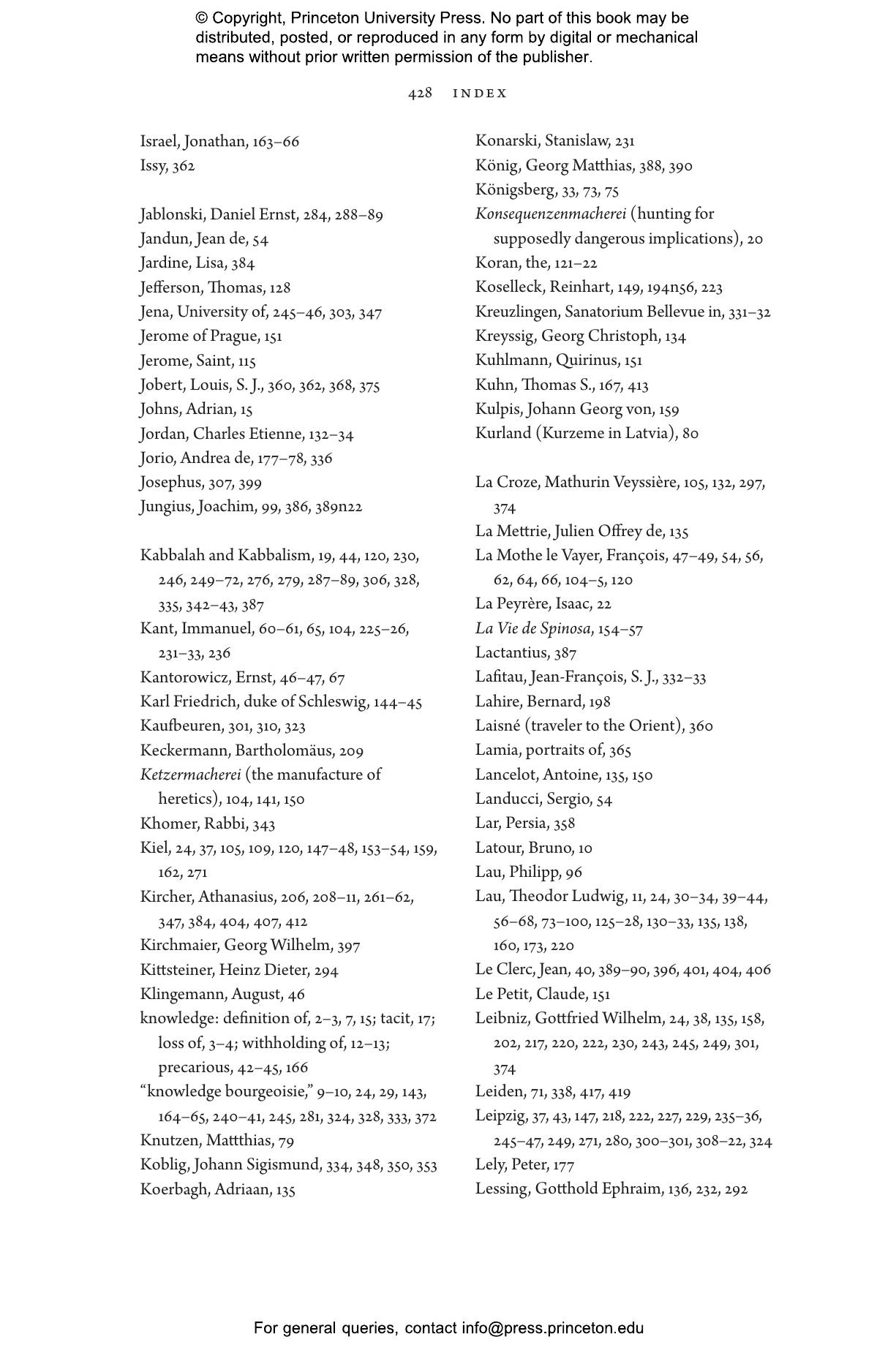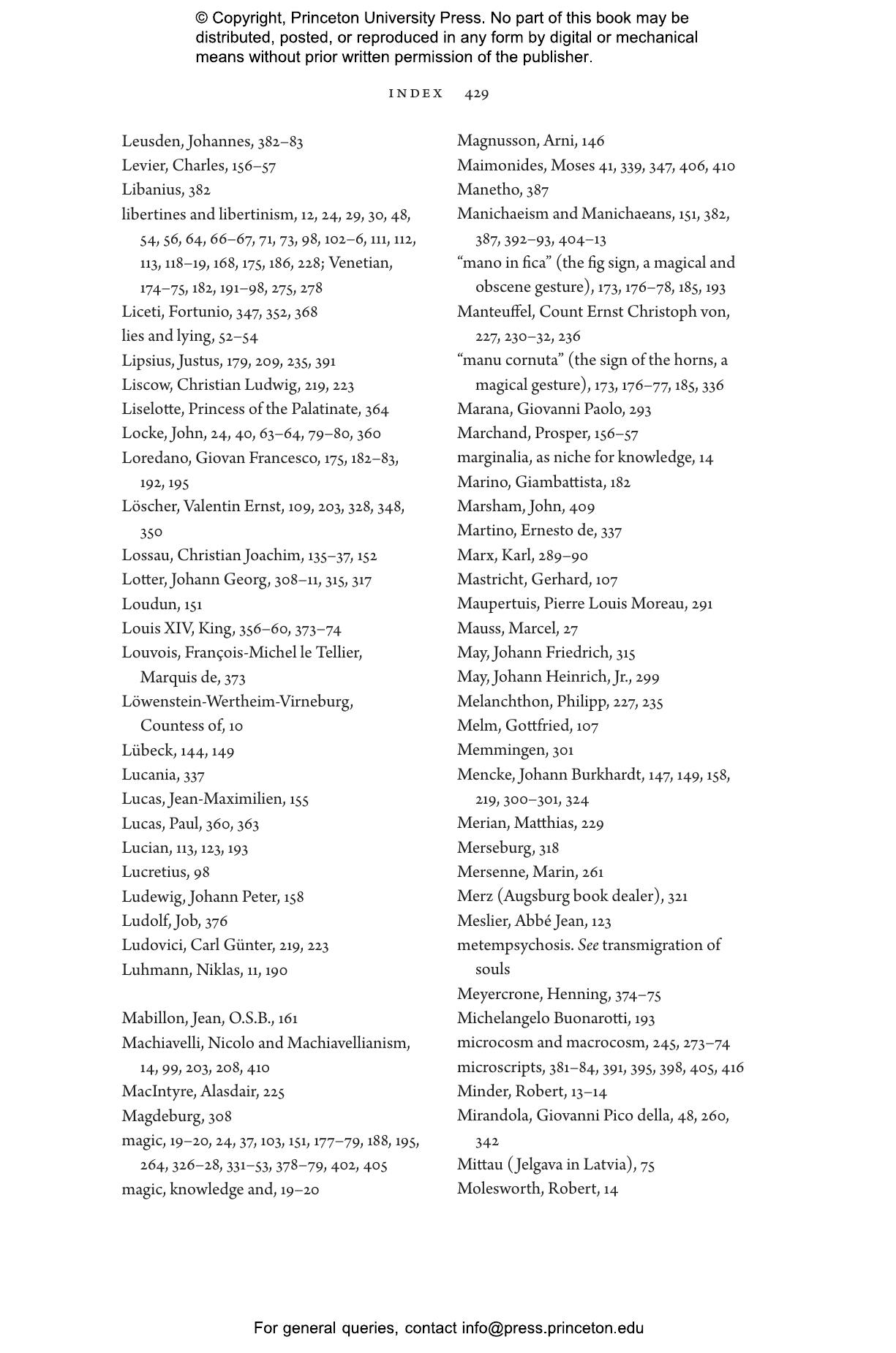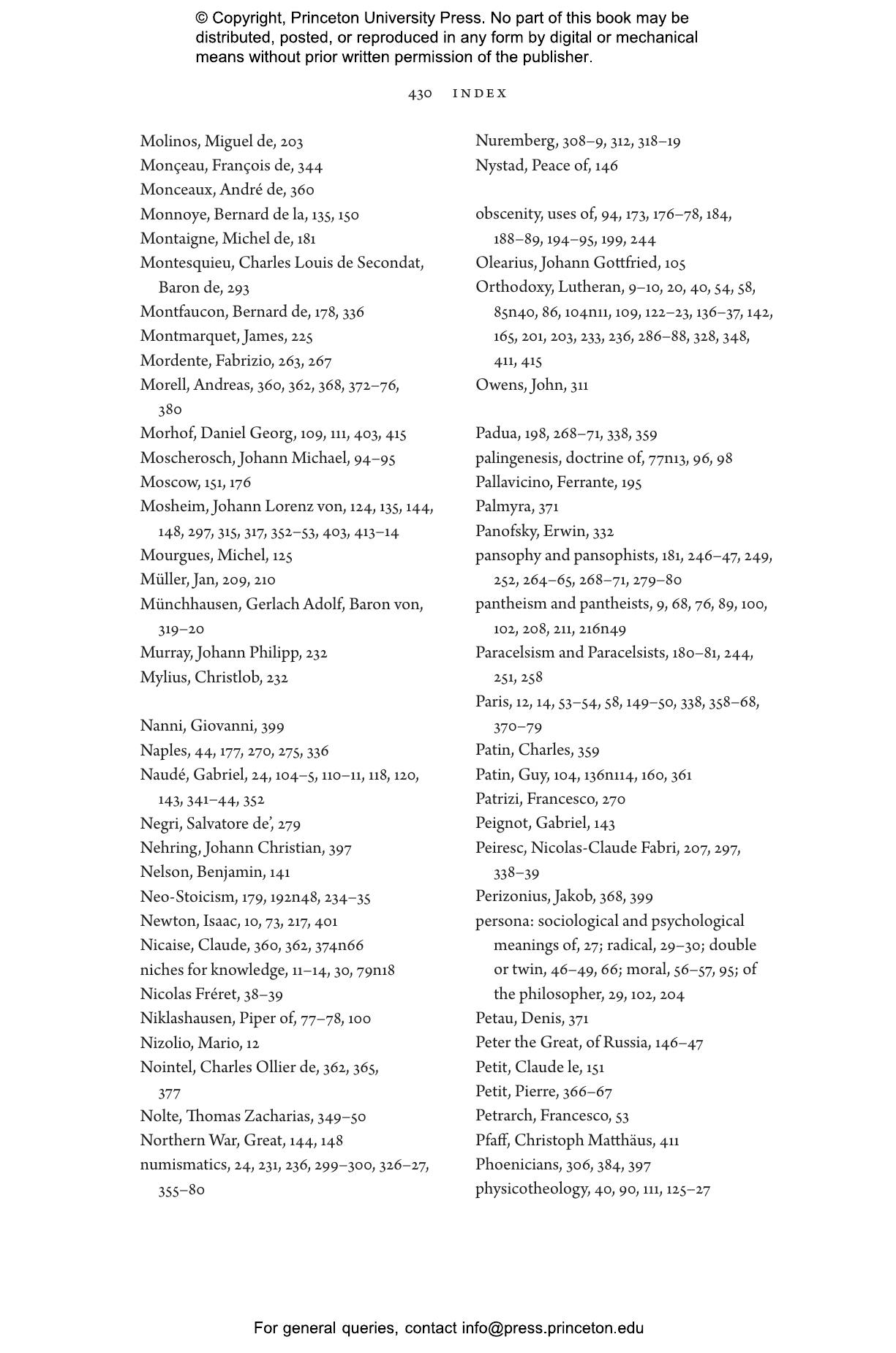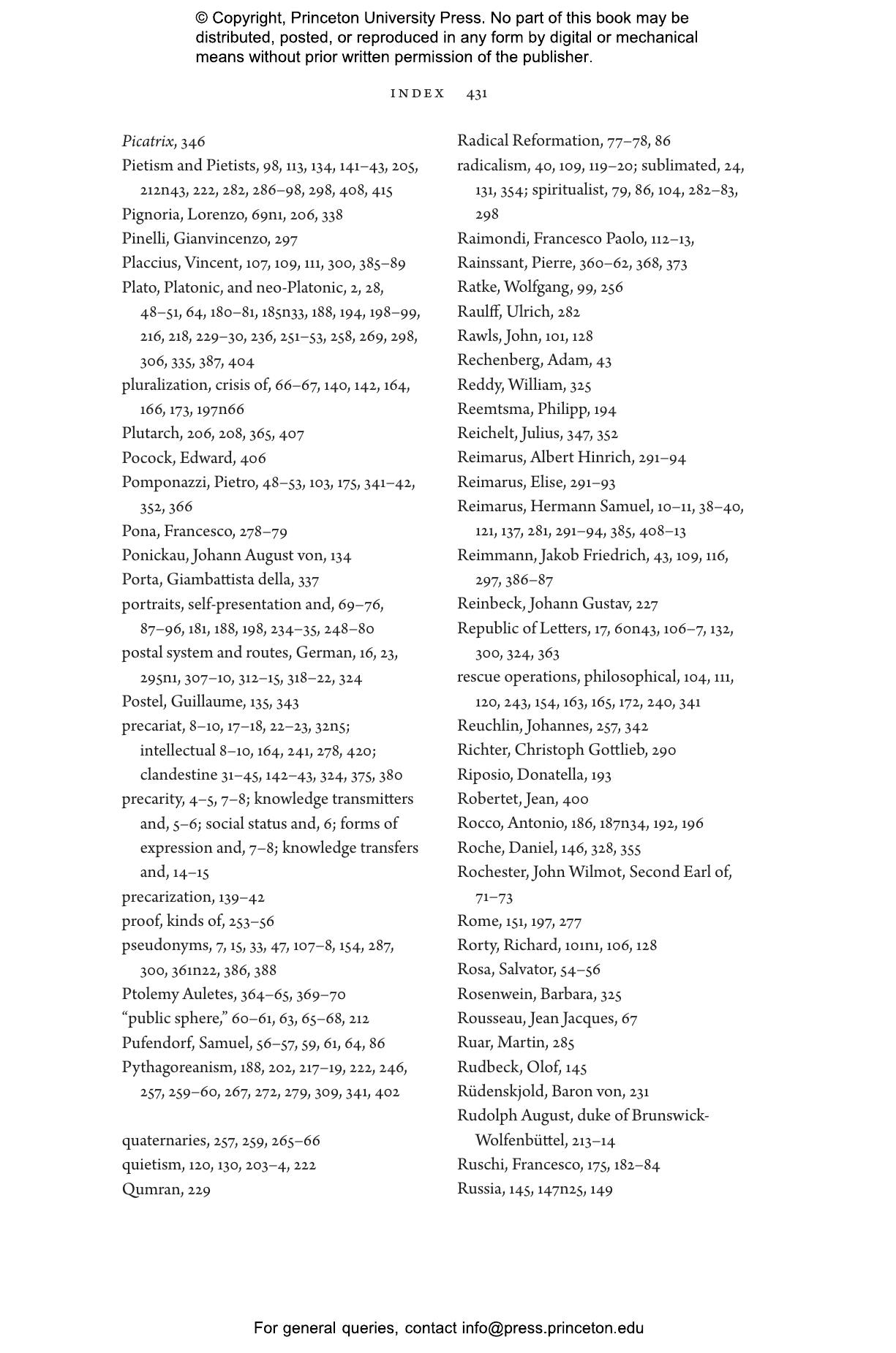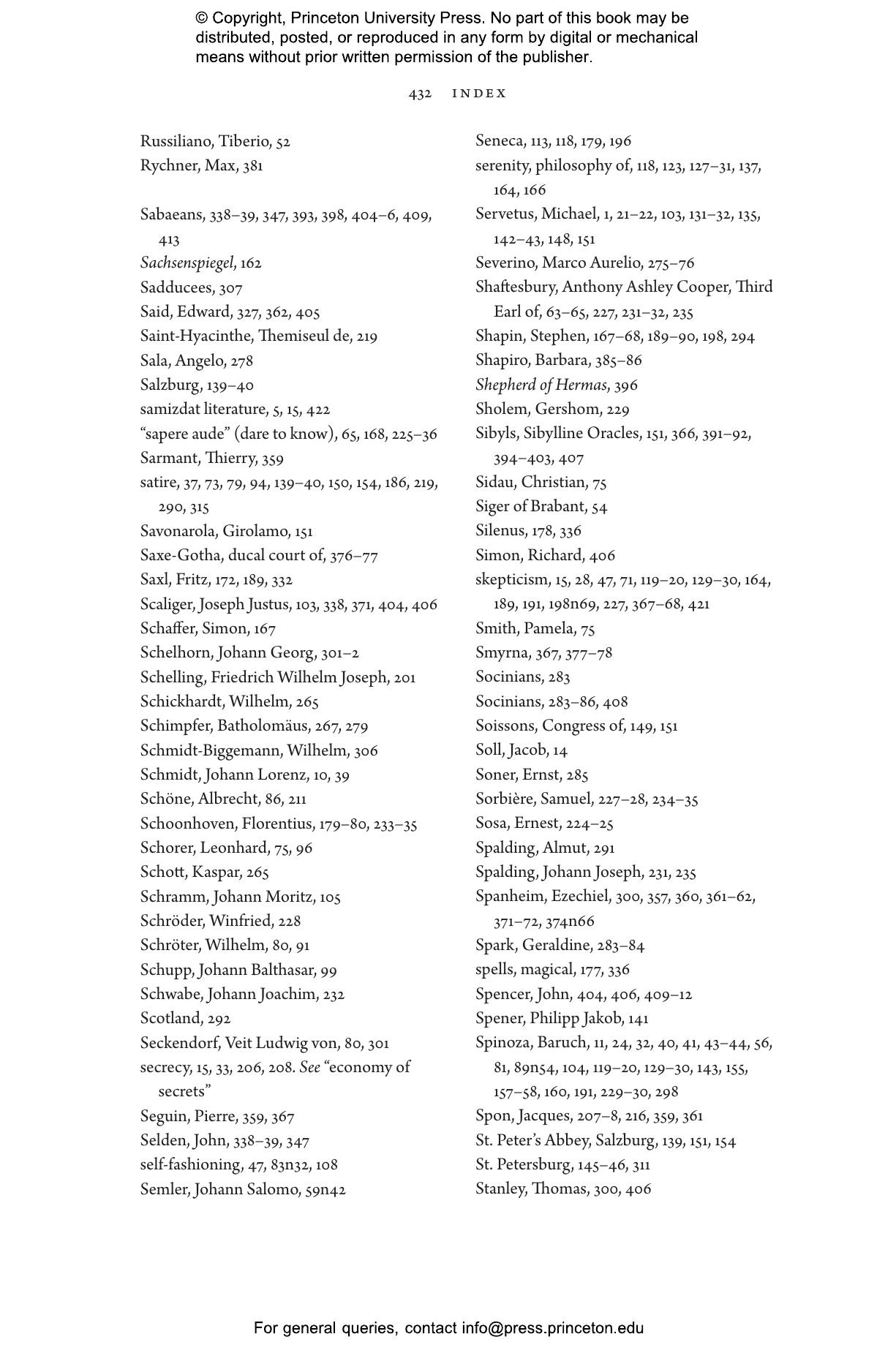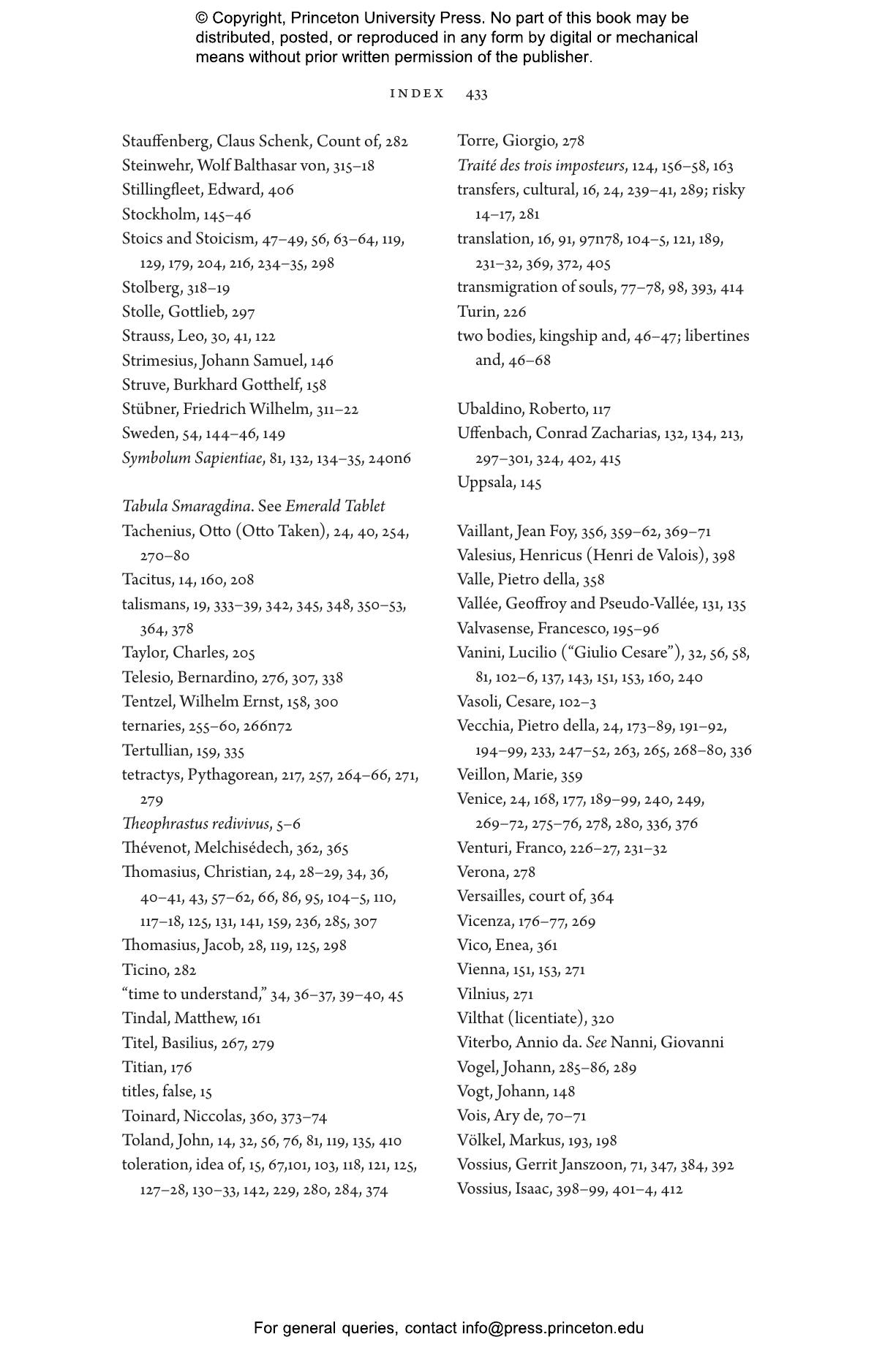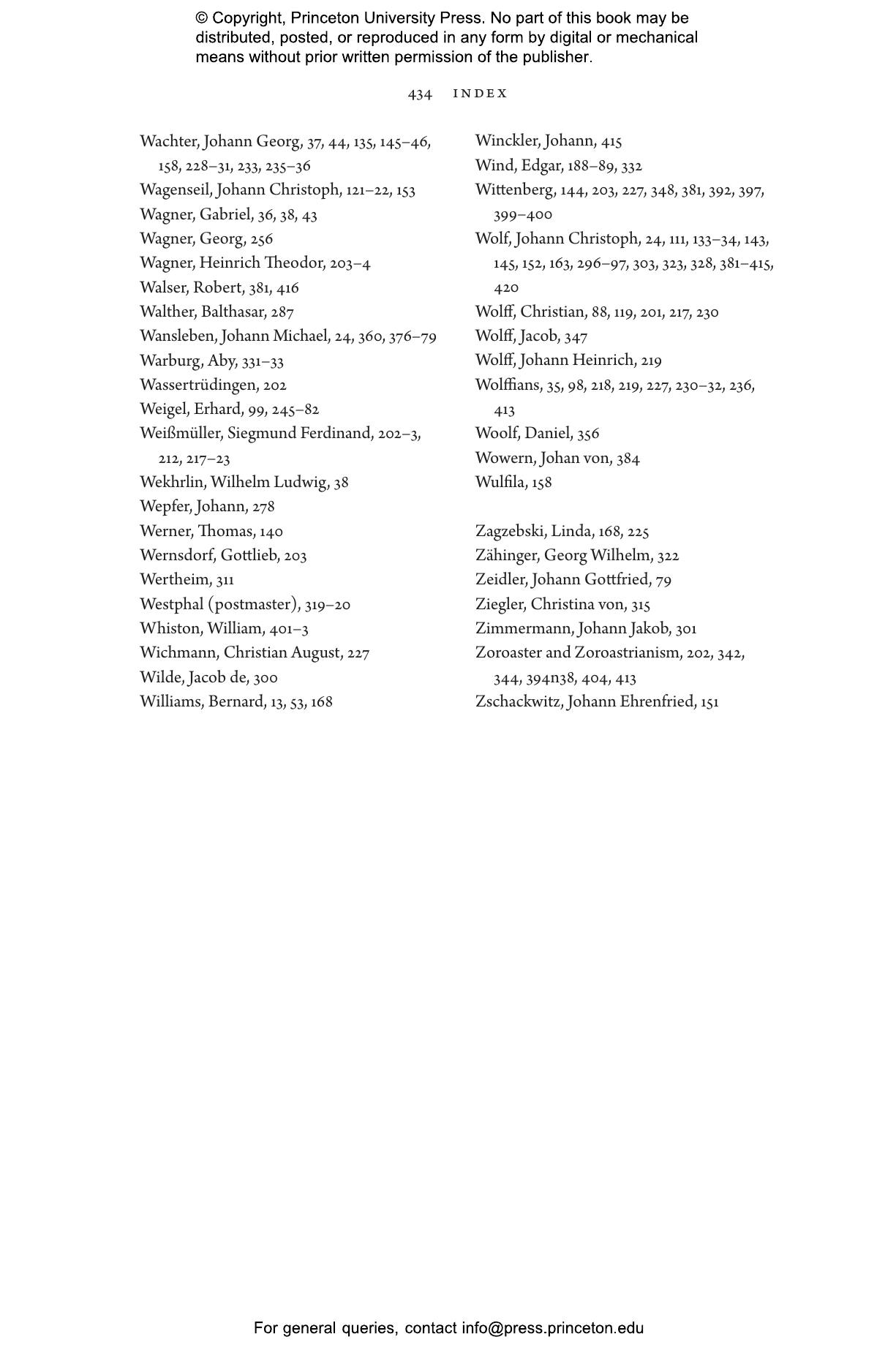Until now the history of knowledge has largely been about formal and documented accumulation, concentrating on systems, collections, academies, and institutions. The central narrative has been one of advancement, refinement, and expansion. Martin Mulsow tells a different story. Knowledge can be lost: manuscripts are burned, oral learning dies with its bearers, new ideas are suppressed by censors. Knowledge Lost is a history of efforts, from the Renaissance to the Enlightenment, to counter such loss. It describes how critics of ruling political and religious regimes developed tactics to preserve their views; how they buried their ideas in footnotes and allusions; how they circulated their tracts and treatises in handwritten copies; and how they commissioned younger scholars to spread their writings after death.
Filled with exciting stories, Knowledge Lost follows the trail of precarious knowledge through a series of richly detailed episodes. It deals not with the major themes of metaphysics and epistemology, but rather with interpretations of the Bible, Orientalism, and such marginal zones as magic. And it focuses not on the usual major thinkers, but rather on forgotten or half-forgotten members of the “knowledge underclass,” such as Pietro della Vecchia, a libertine painter and intellectual; Charles-César Baudelot, an antiquarian and numismatist; and Johann Christoph Wolf, a pastor, Hebrew scholar, and witness to the persecution of heretics.
Offering a fascinating new approach to the intellectual history of early modern Europe, Knowledge Lost is also an ambitious attempt to rethink the very concept of knowledge.
Martin Mulsow is professor of intellectual history at the University of Erfurt, where he directs the Gotha Research Center for Early Modern Studies. He is the author of Enlightenment Underground: Radical Germany, 1680–1720 and Accidental Radicals: The Hidden Origins of the German Enlightenment.
"Fascinating."—David Lorimer, Paradigm Explorer
"A book of great depth and insightfulness, Knowledge Lost is a must read for anyone interested in the Enlightenment."—Dr. Cliff Cunningham, Sun News Austin
“Knowledge Lost is an extraordinary book that brings to light a rich, fascinating, and largely unfamiliar world and offers scholars a new and fertile model for the study of intellectual history. Martin Mulsow works with equal precision and deftness at every level of scholarship, from the microscopic analysis of images and documents to the tracing of early modern postal networks. Several of the chapters have the fascination of detective stories, and the book as a whole is a thrilling read, eloquent and vivid.”—Anthony Grafton, 91��ɫ University
“An extraordinary journey, led by Martin Mulsow’s unfailing erudition and imagination, into the continent of early modern fragile, hidden, forbidden knowledge.”—Carlo Ginzburg, Scuola Normale Superiore Pisa
“Mulsow’s pioneering history of ideas presents a riveting account of thought rooted in affects, cultural practices, and strategies. It redefines the preoccupations of early modern thinkers through a richly researched and thoroughly original engagement with precarious types of knowledge-making. Mulsow brilliantly maps out a new cultural history of intellectual thought with bravura and nuance in equal measure.”—Ulinka Rublack, University of Cambridge
“Martin Mulsow’s history of unorthodox scholars is itself an unorthodox intellectual history of early modern Germany. It is also a major contribution to the growing field of the history of knowledge.”—Peter Burke, University of Cambridge
“This is a book of exceptional importance and one of the most fascinating accounts of the early Enlightenment in recent decades.”—Jonathan Israel, Institute of Advanced Study, 91��ɫ
This publication has been produced to meet accepted Accessibility standards and contains various accessibility features including concise image descriptions, a table of contents, a page list to navigate to pages corresponding to the print source version, and elements such as headings for structured navigation. Appearance of the text and page layout can be modified according to the capabilities of the reading system.
Accessibility Features
-
WCAG v2.2
-
WCAG level AA
-
Table of contents navigation
-
Single logical reading order
-
Short alternative textual descriptions
-
Print-equivalent page numbering
-
Landmark navigation
-
Index navigation
-
Epub Accessibility Specification 1.1
-
ARIA roles provided
-
All non-decorative content supports reading without sight
-
No known hazards or warnings


